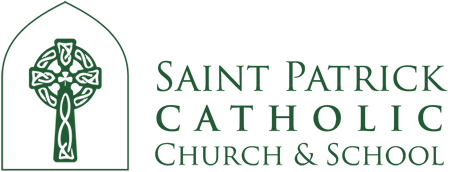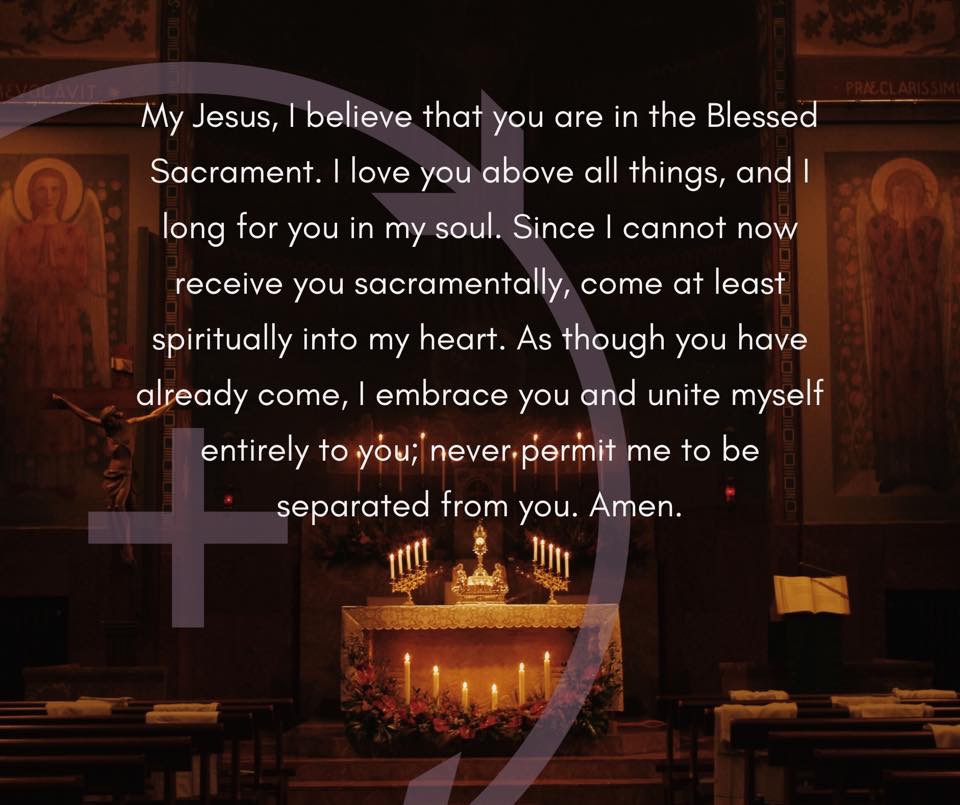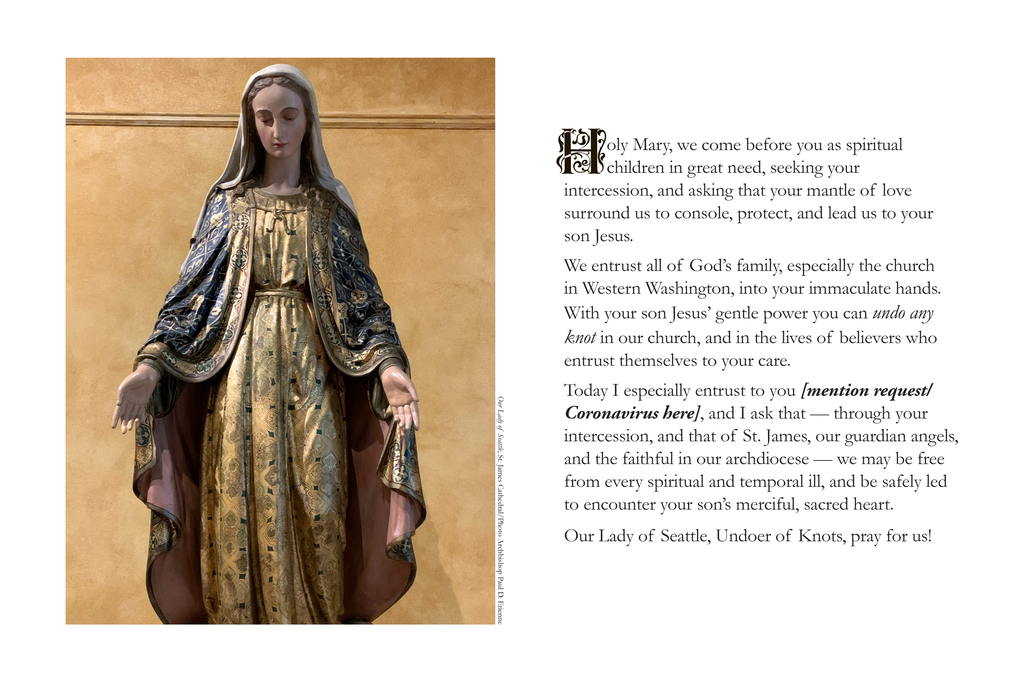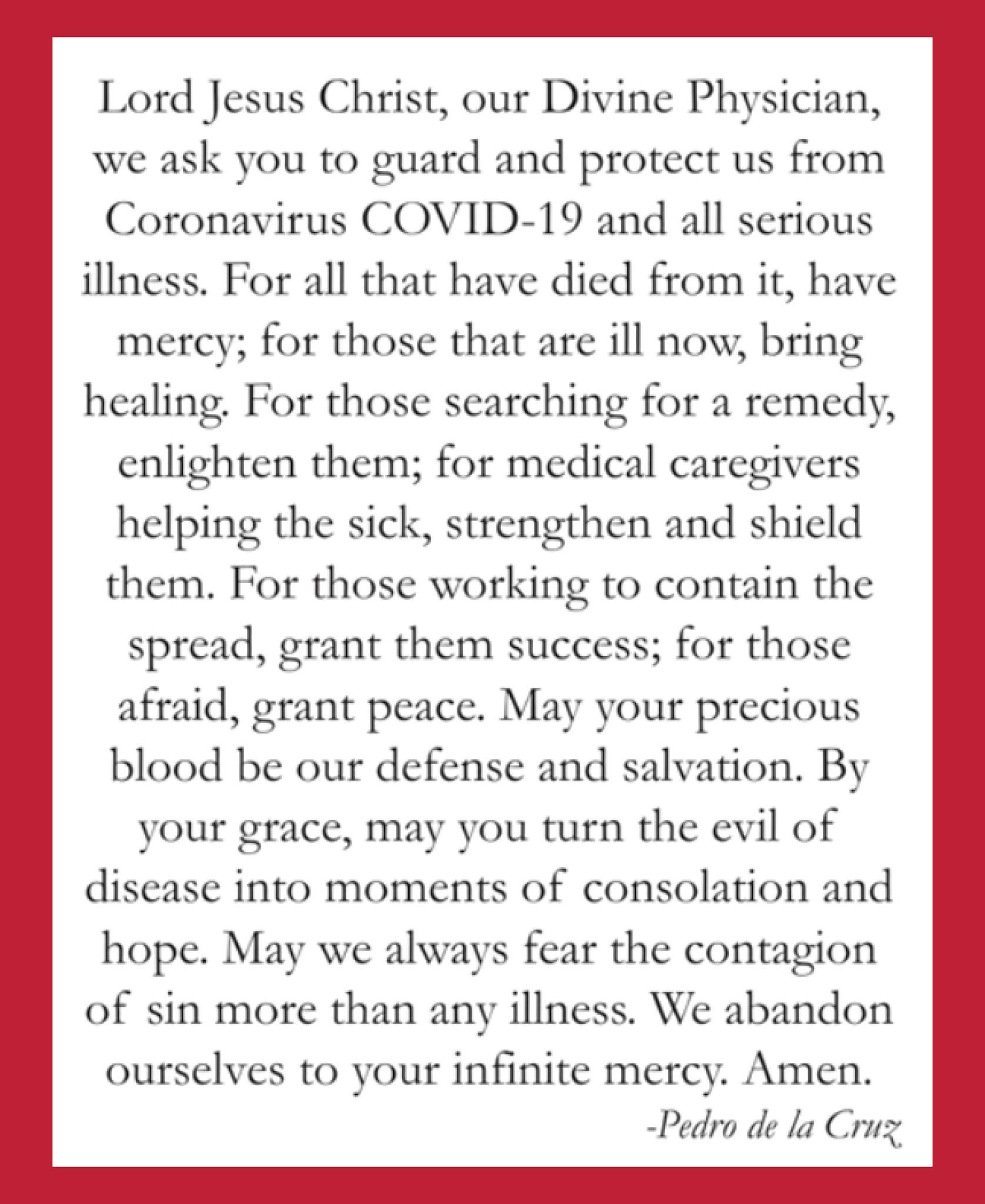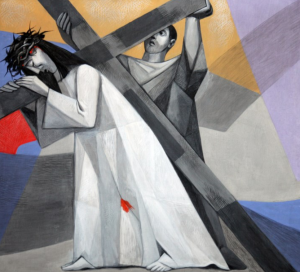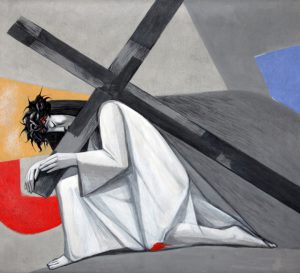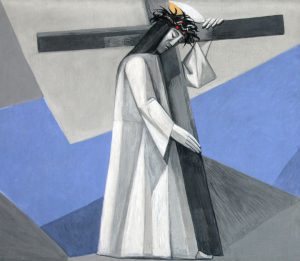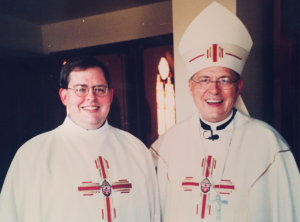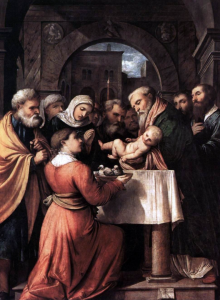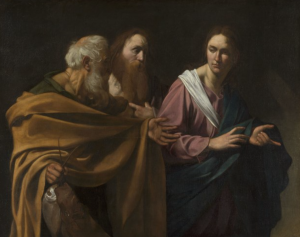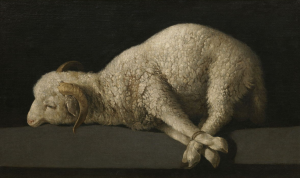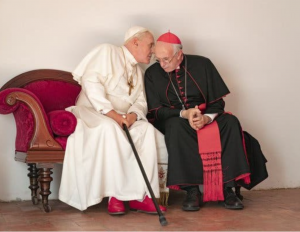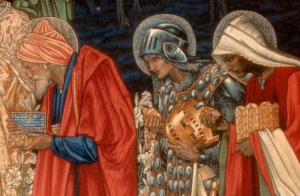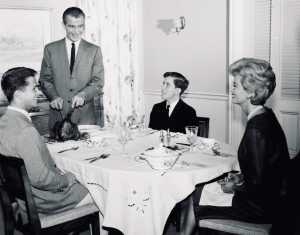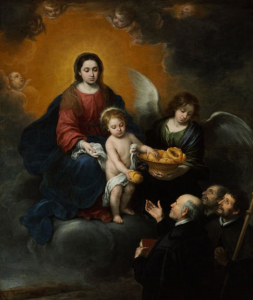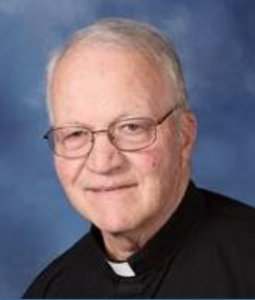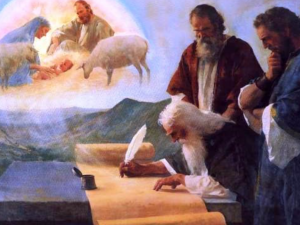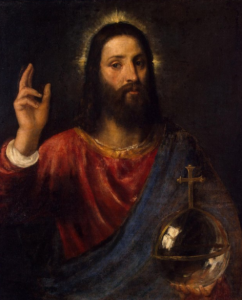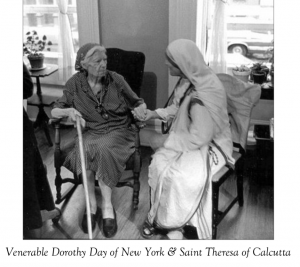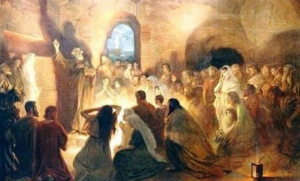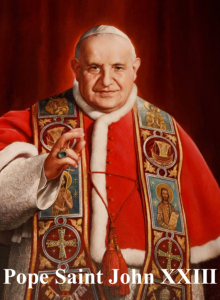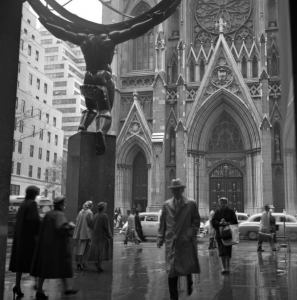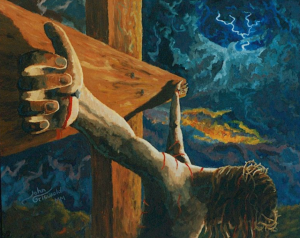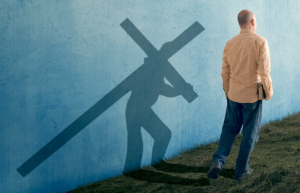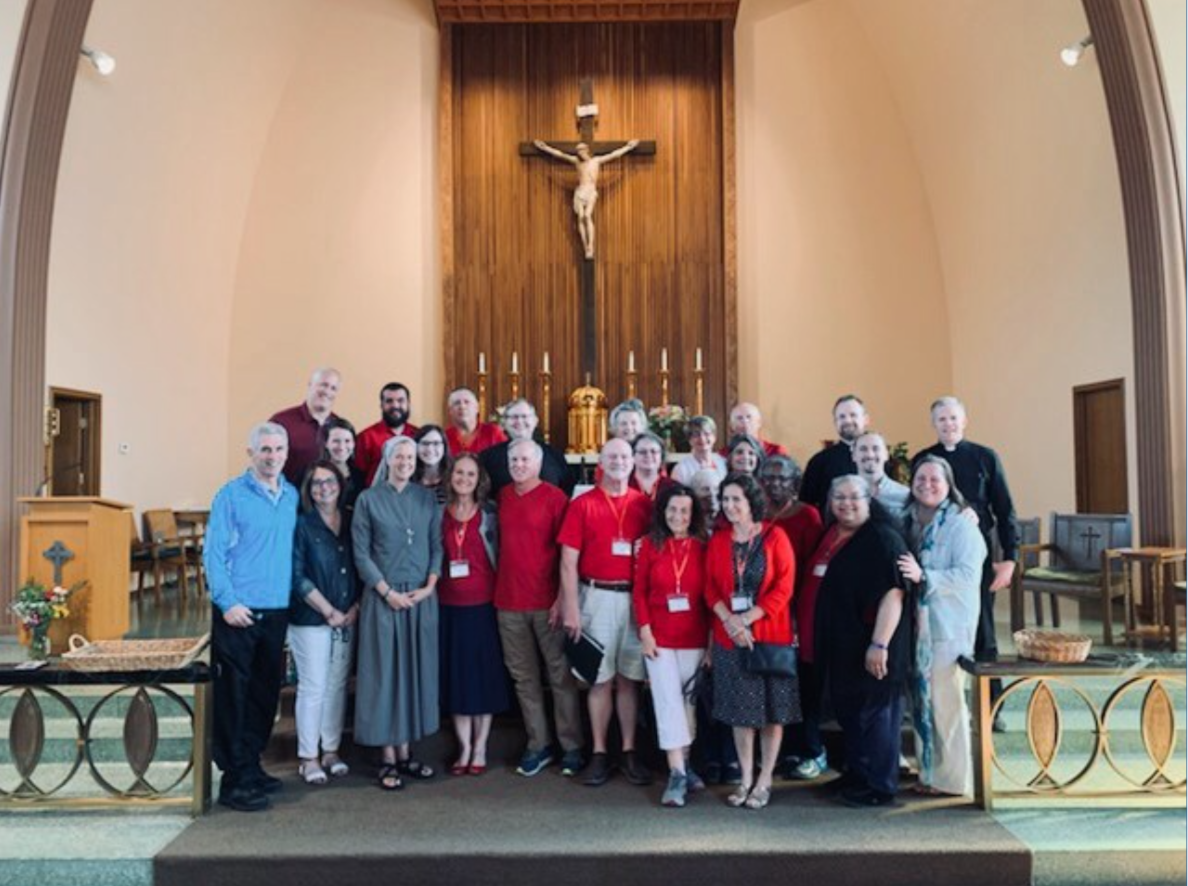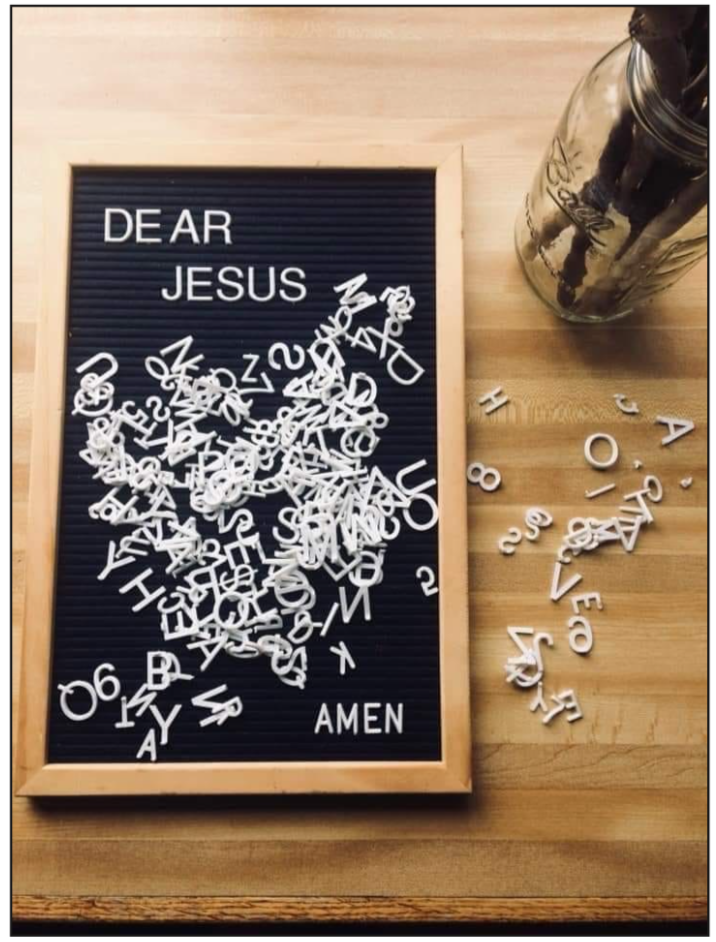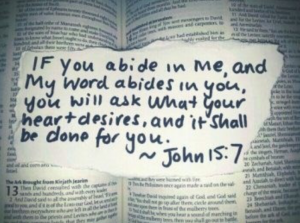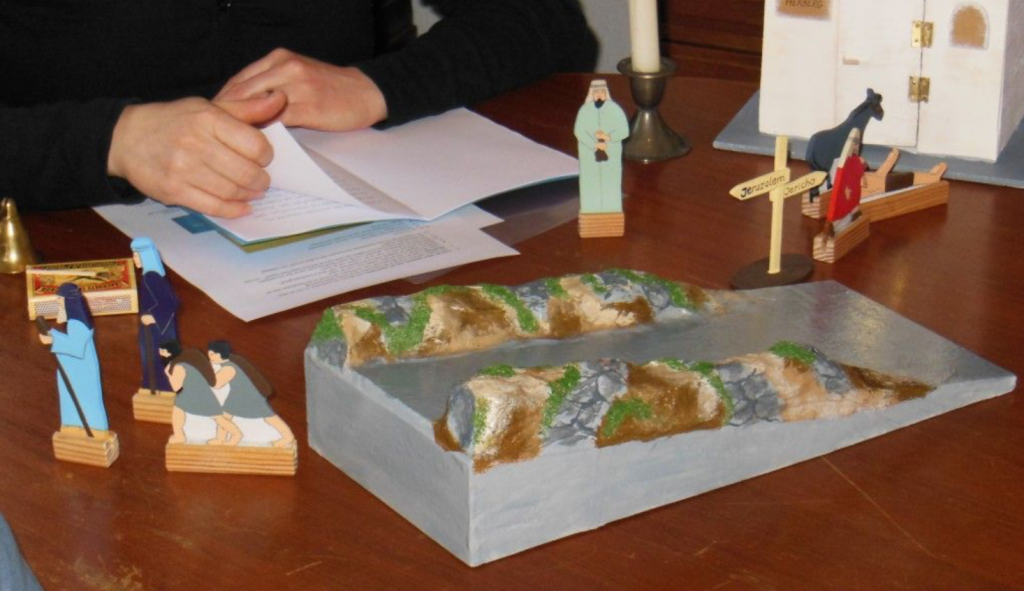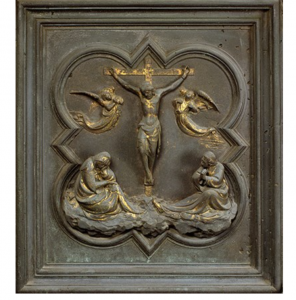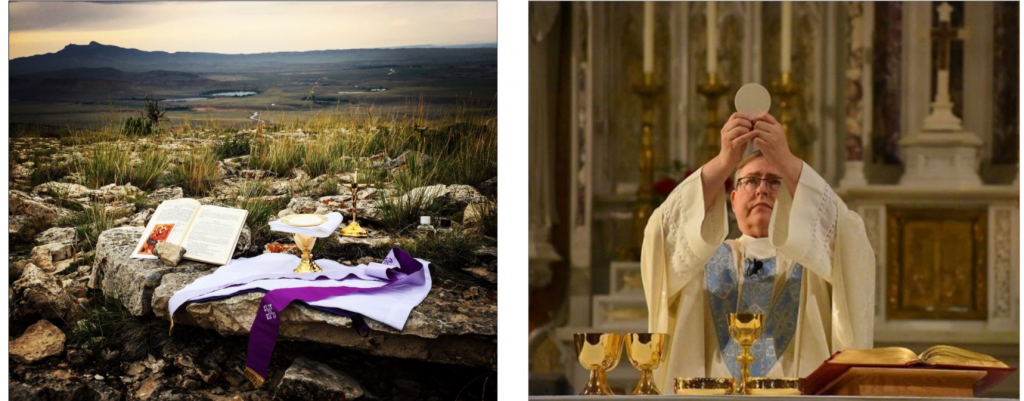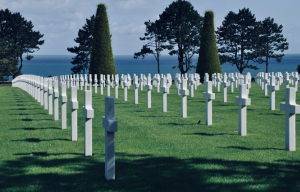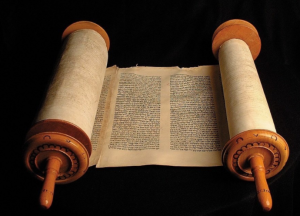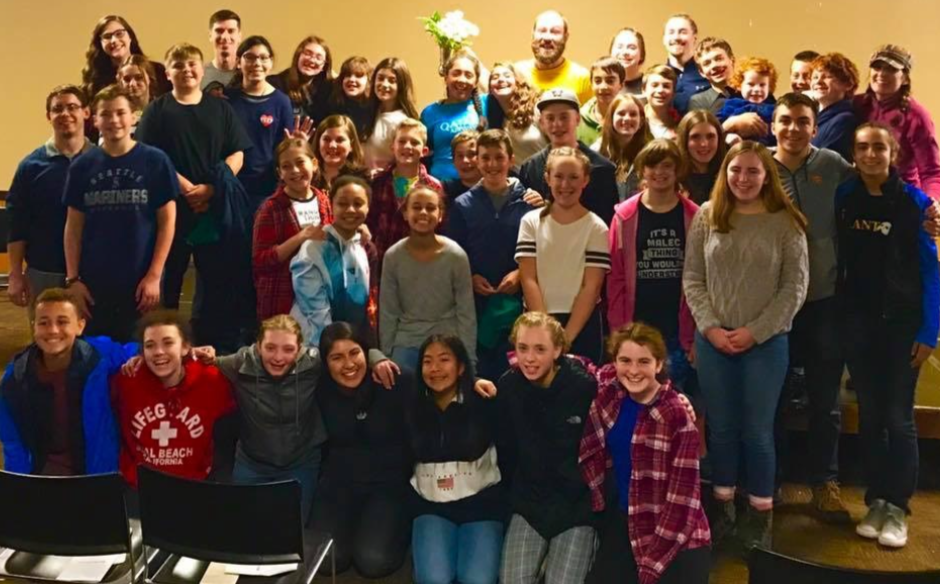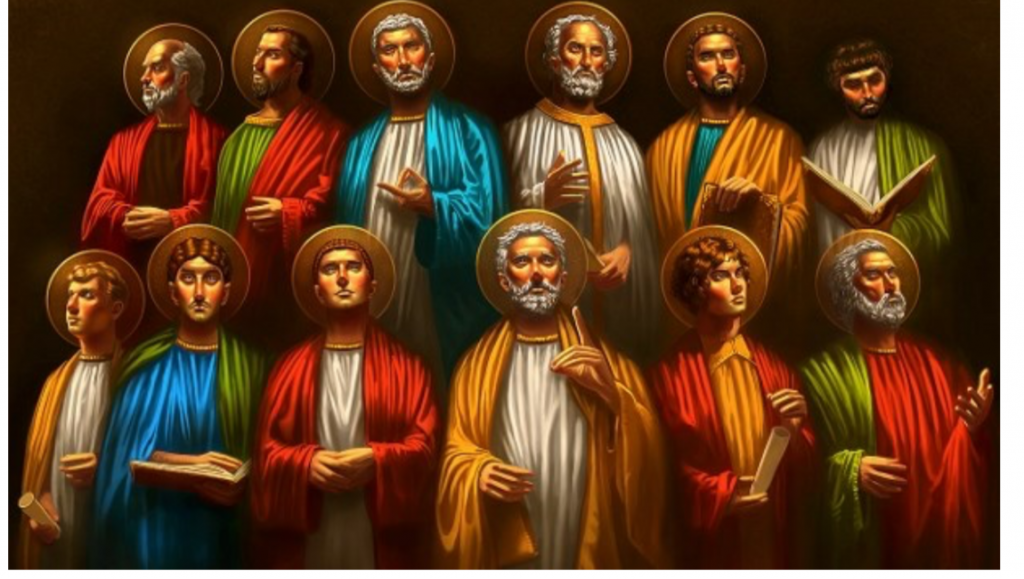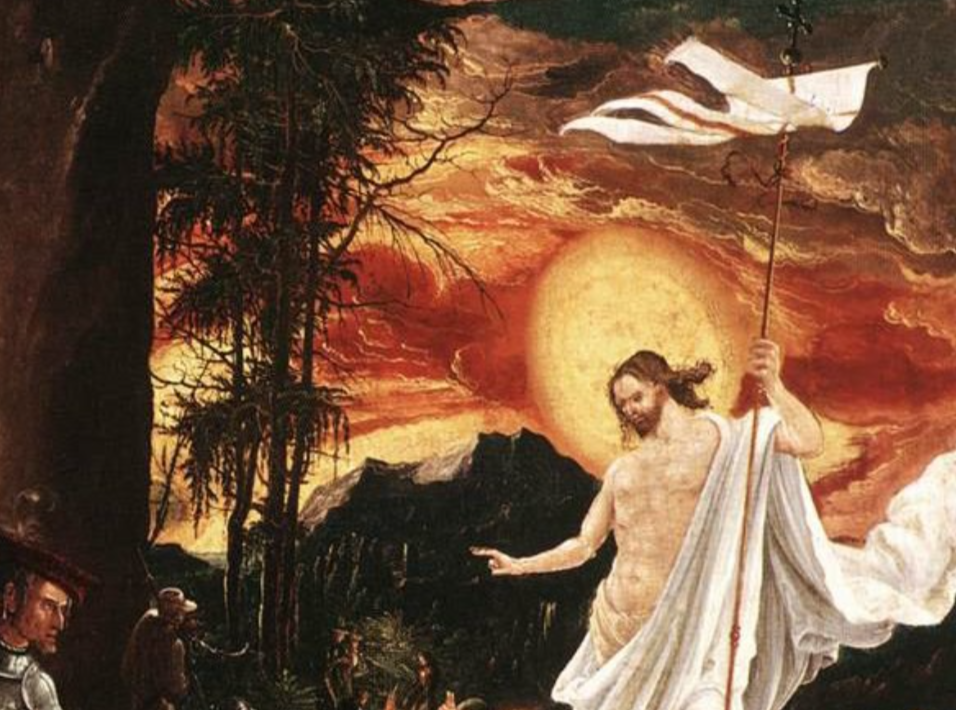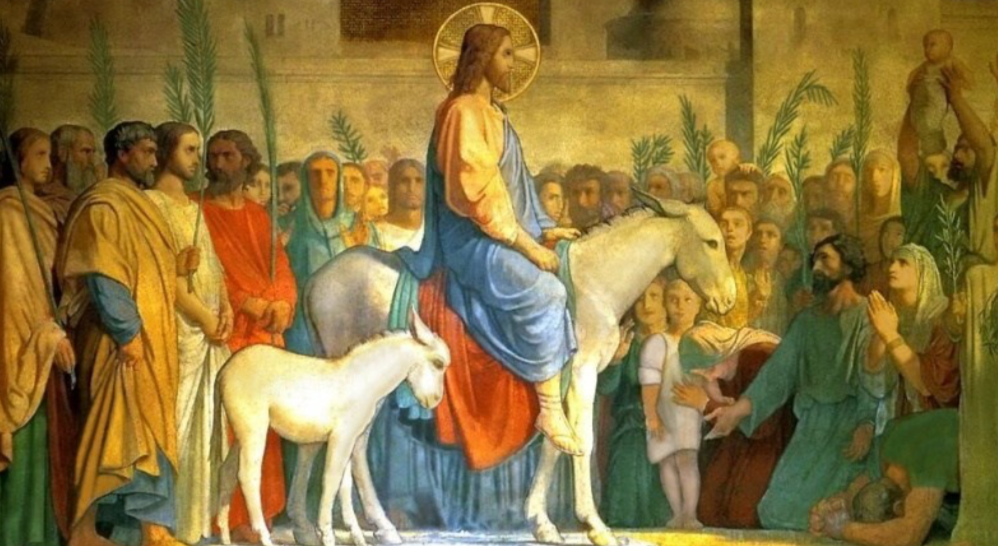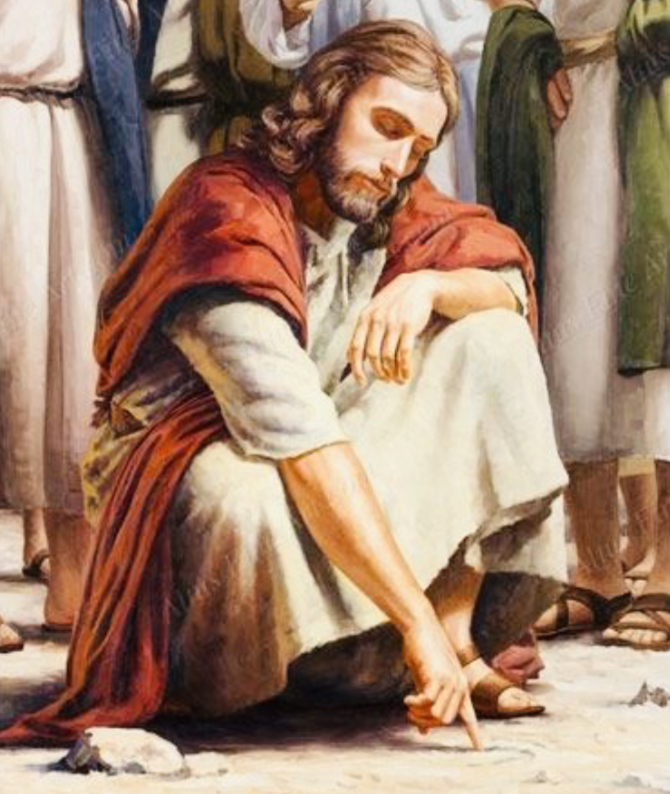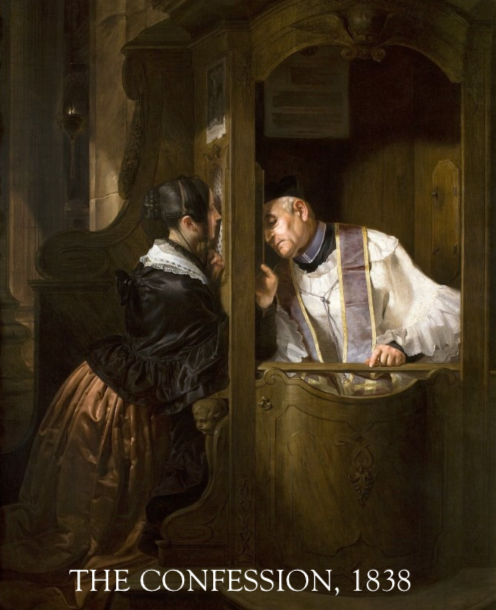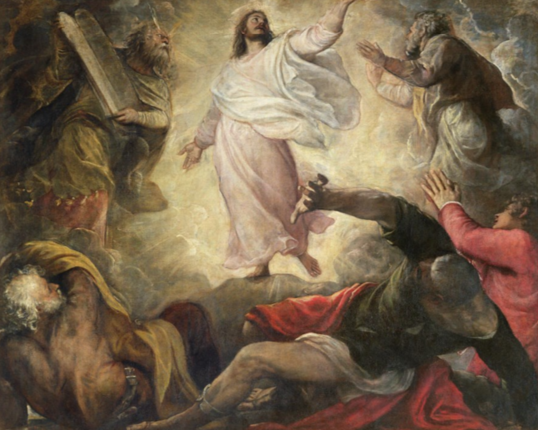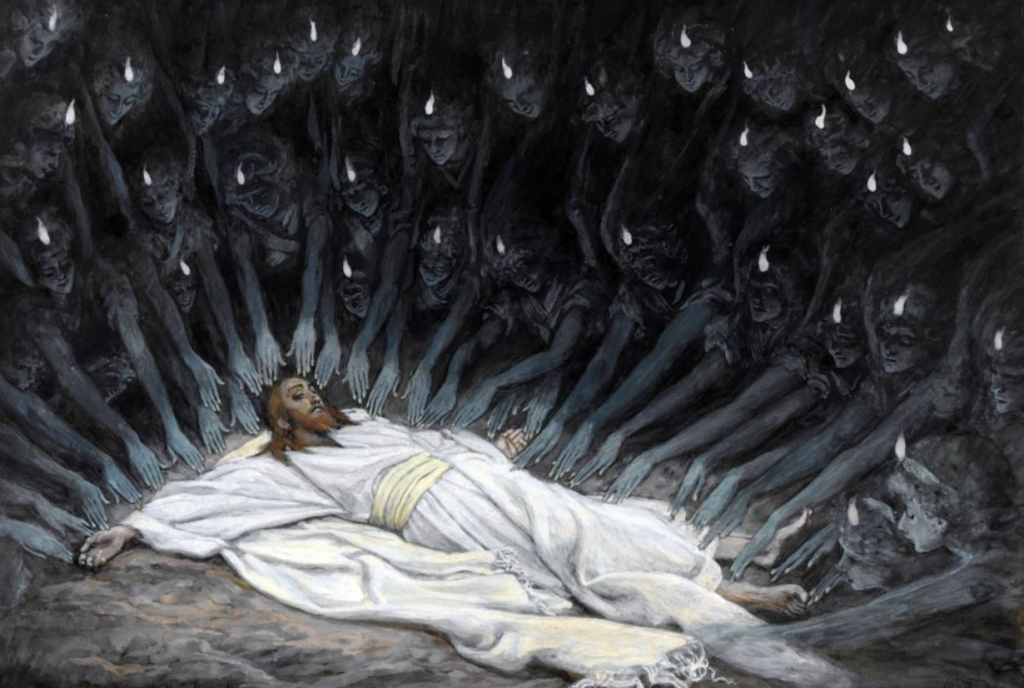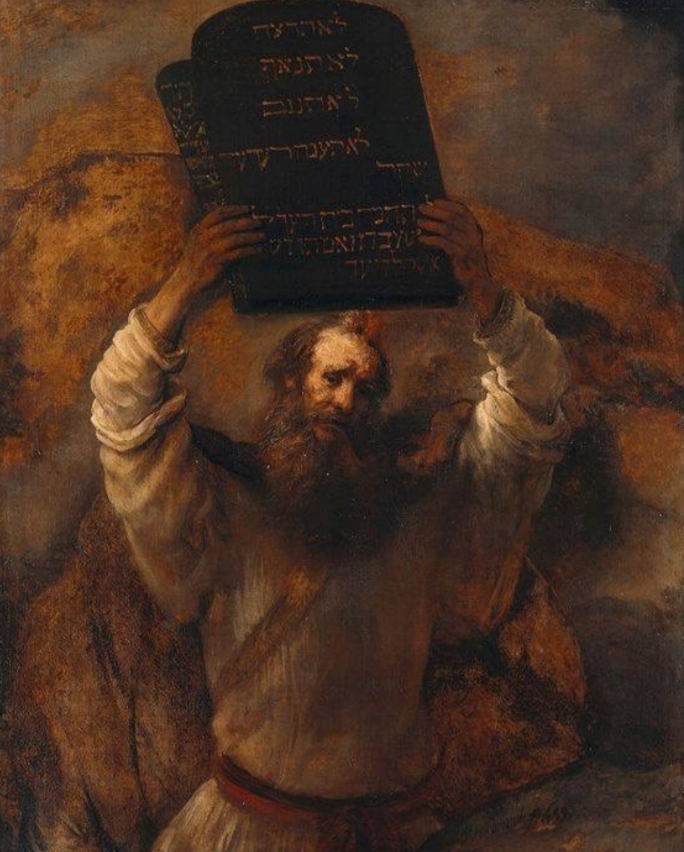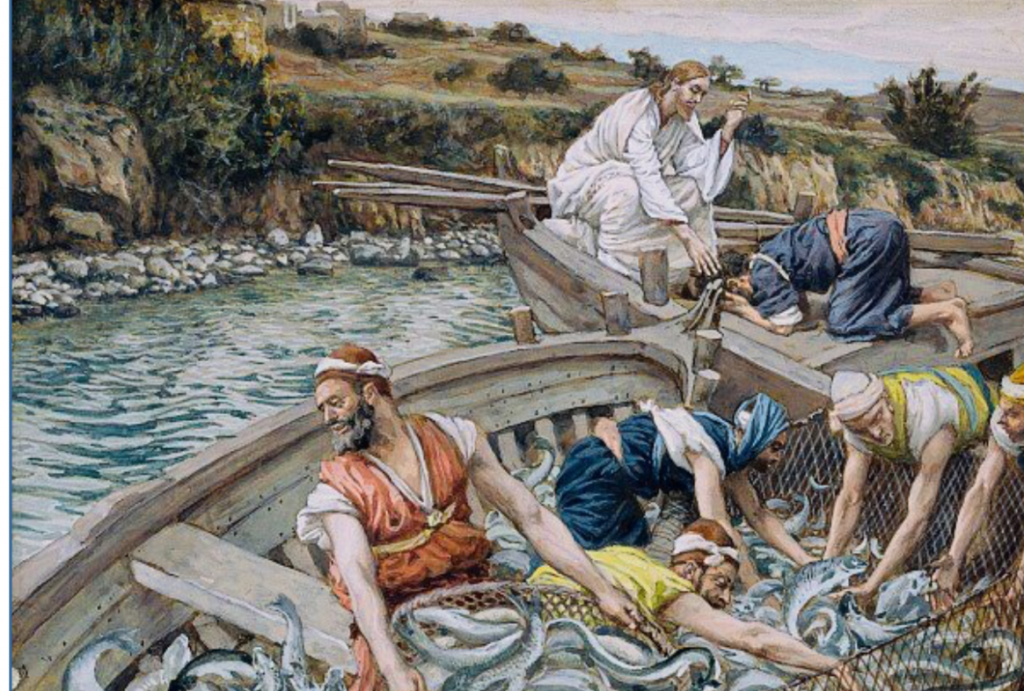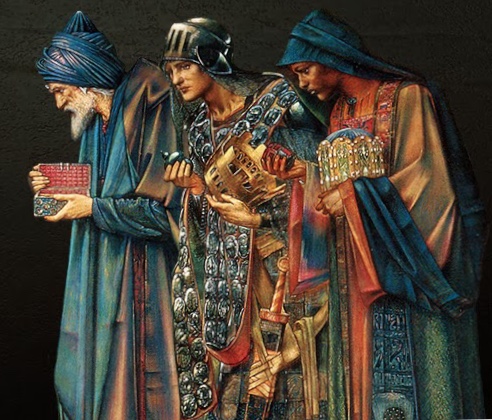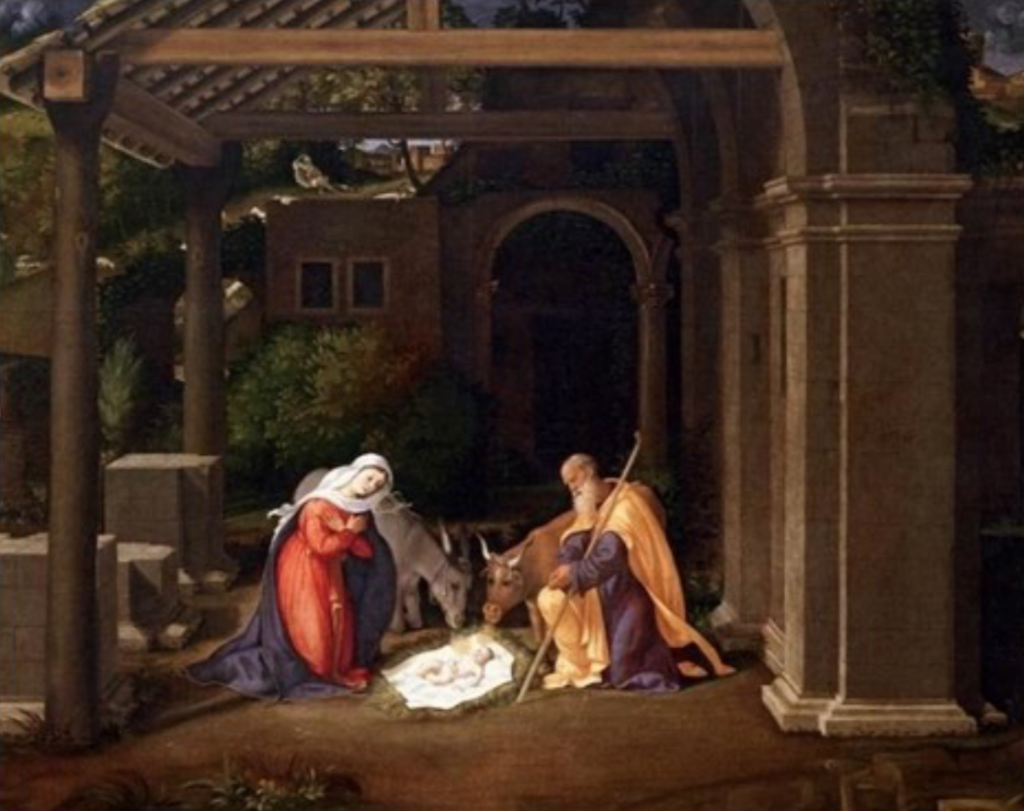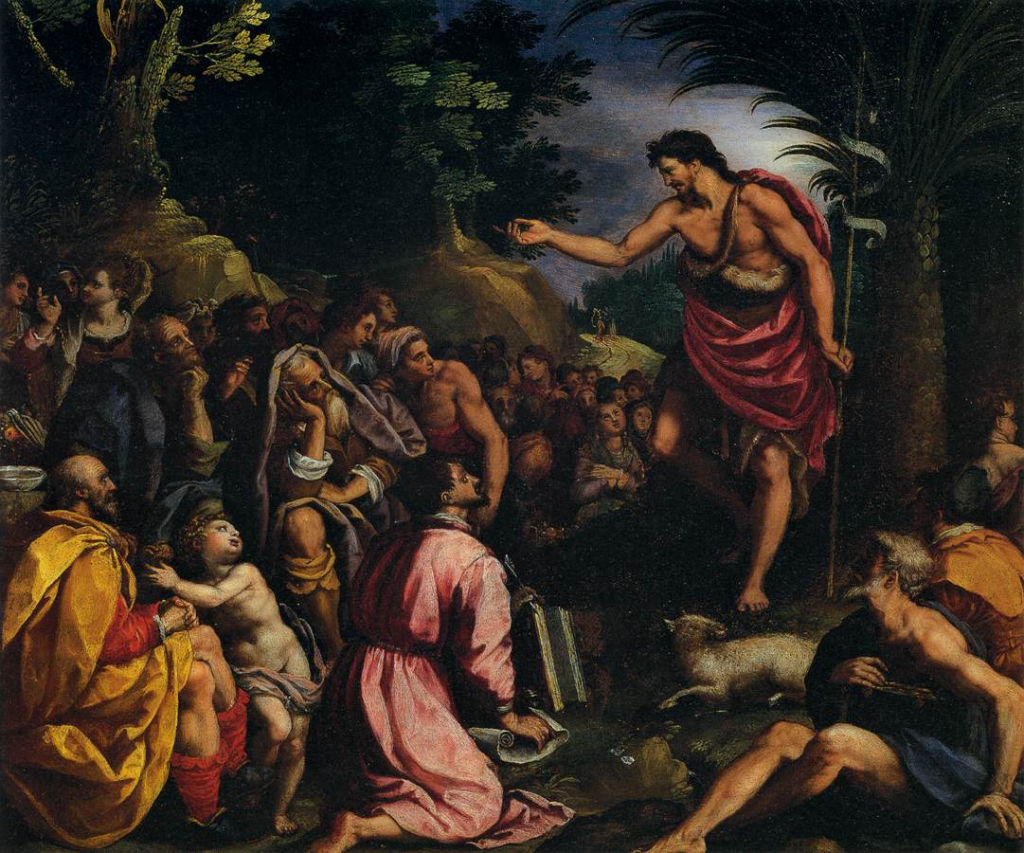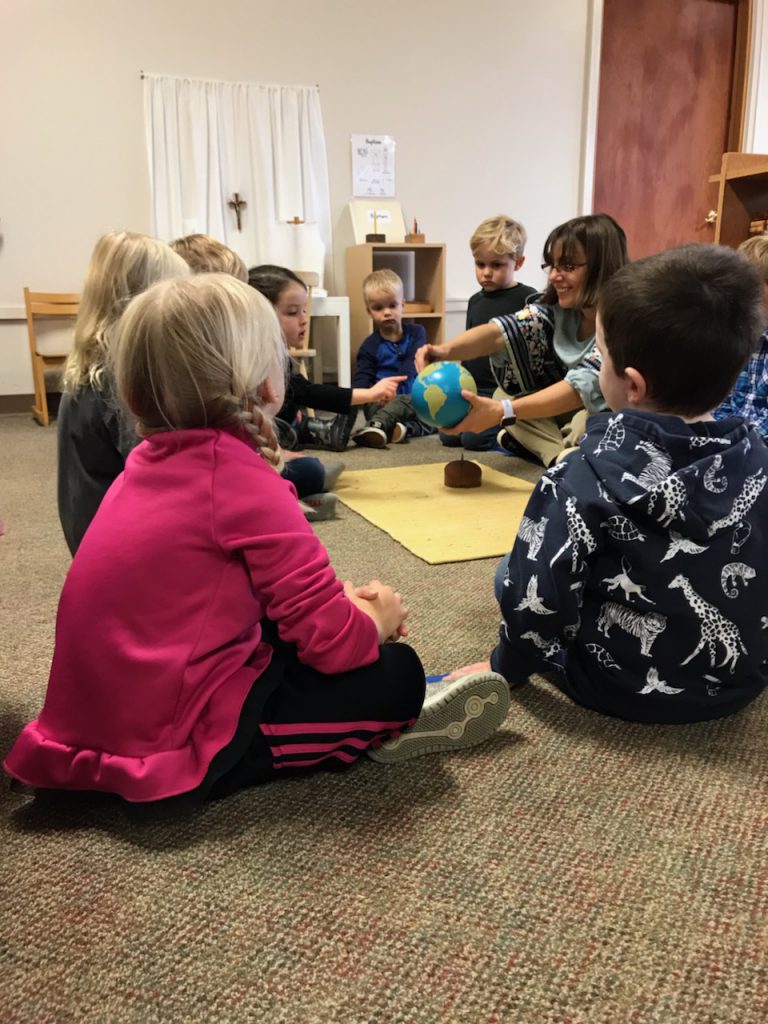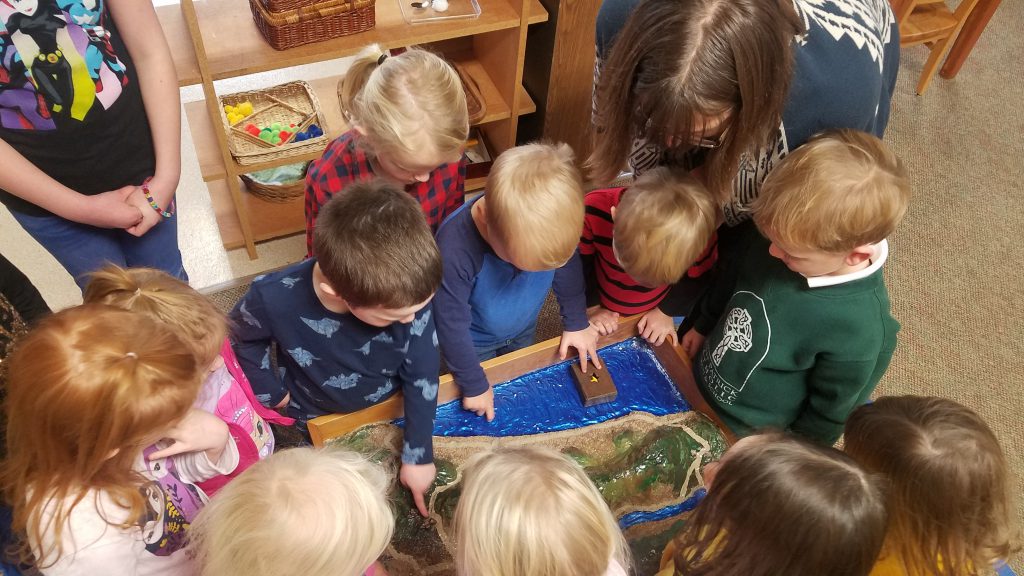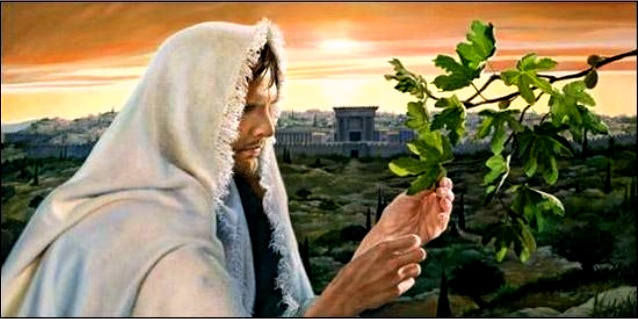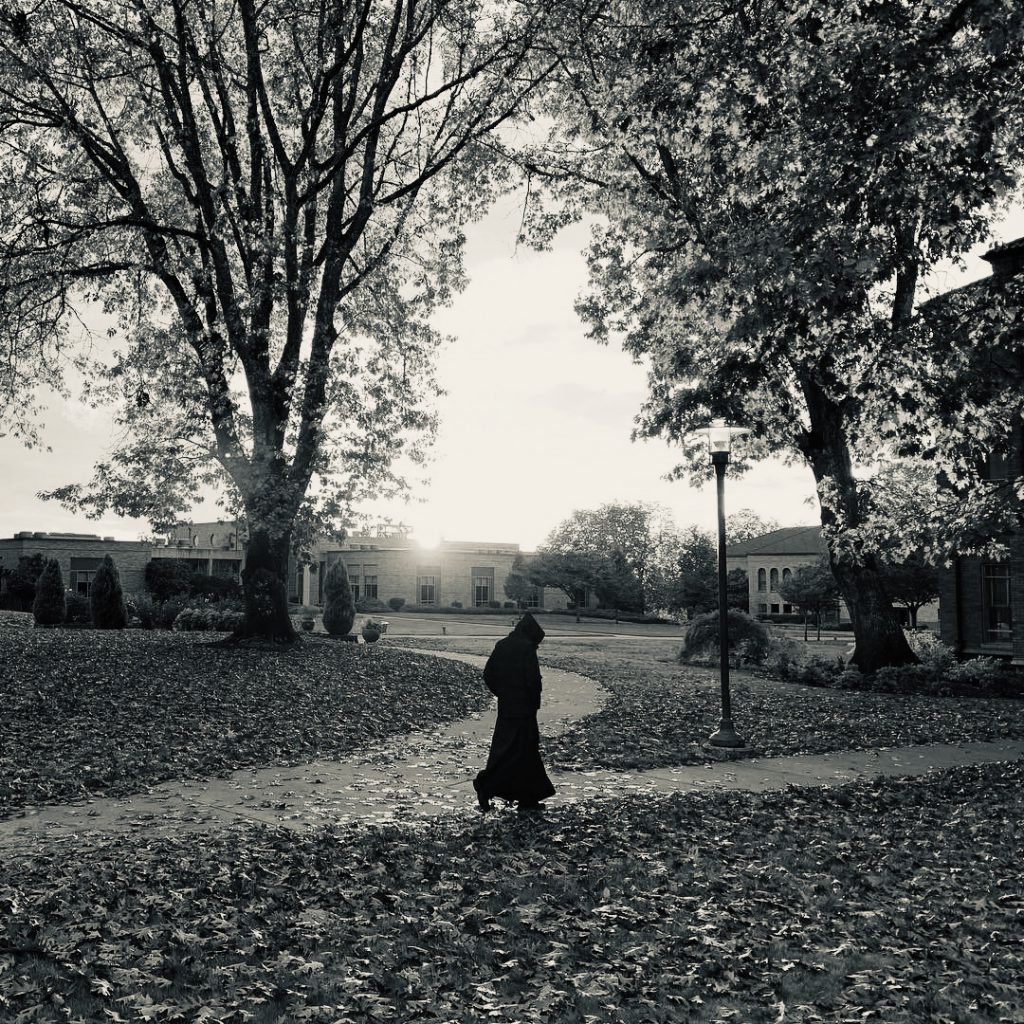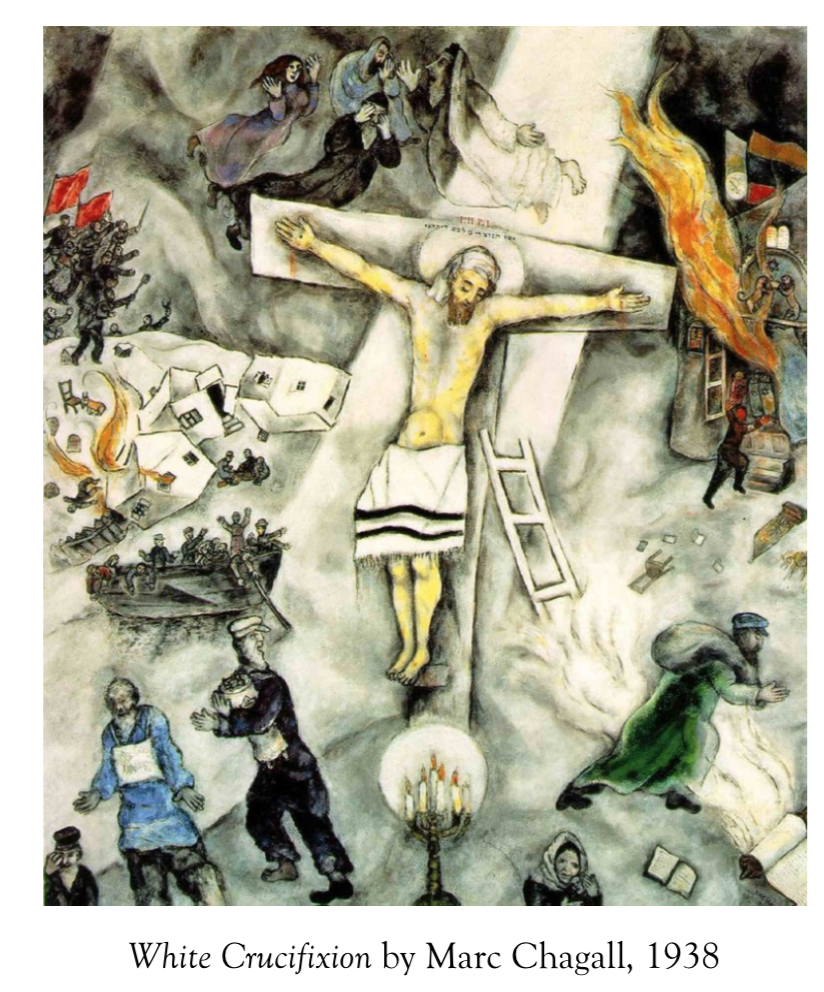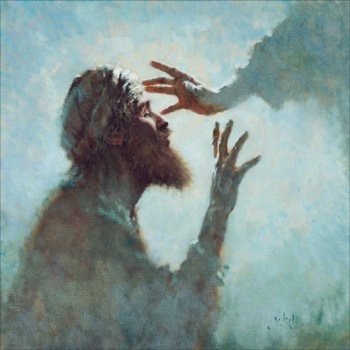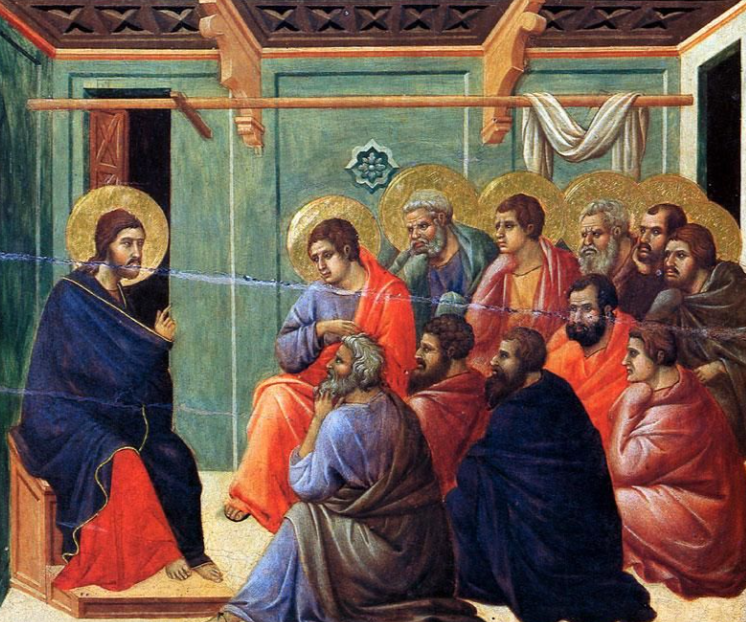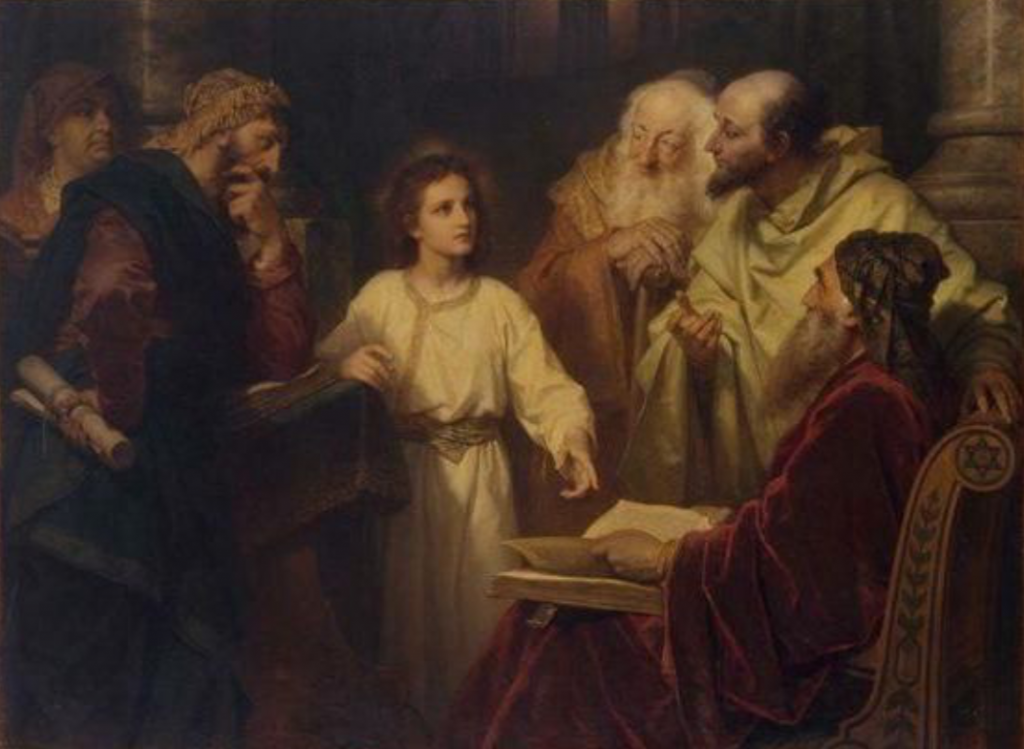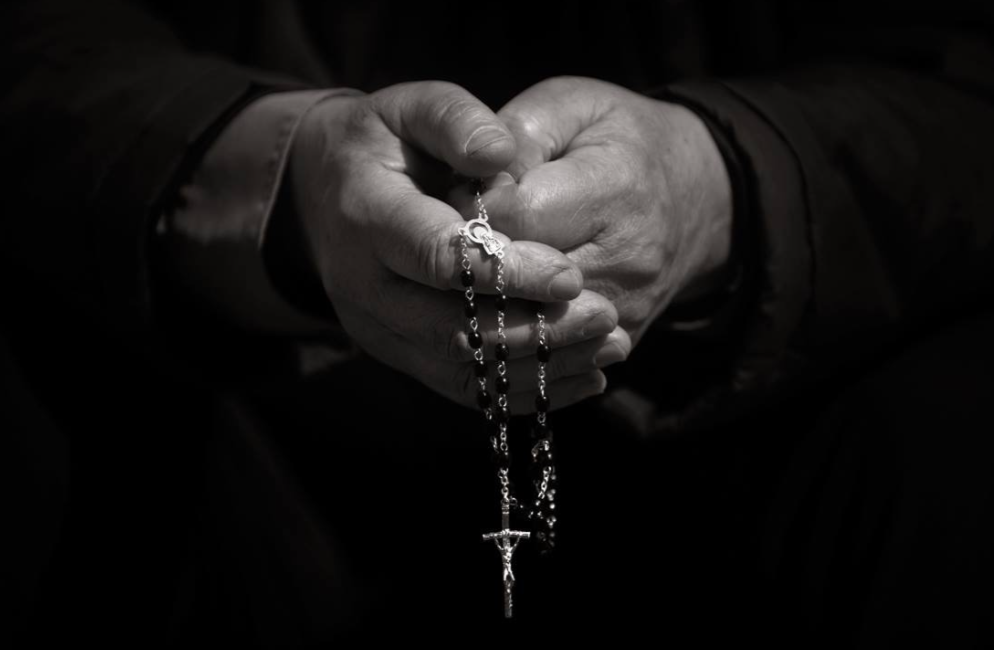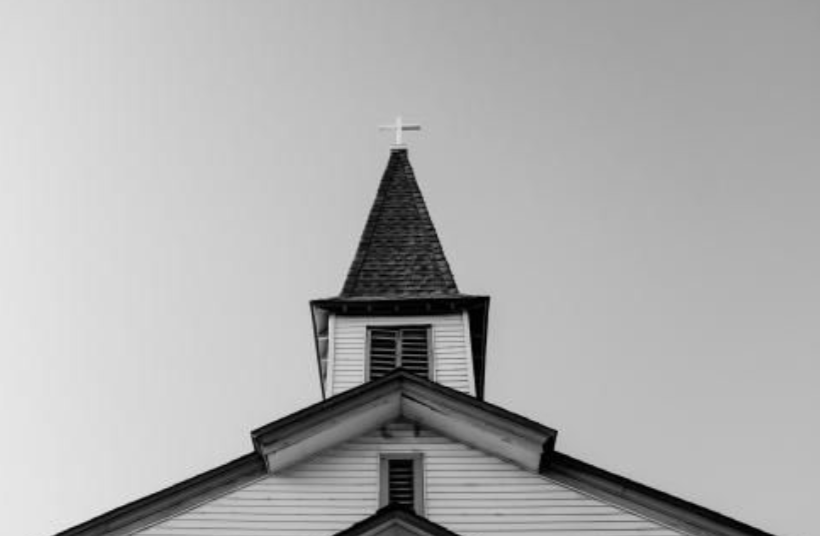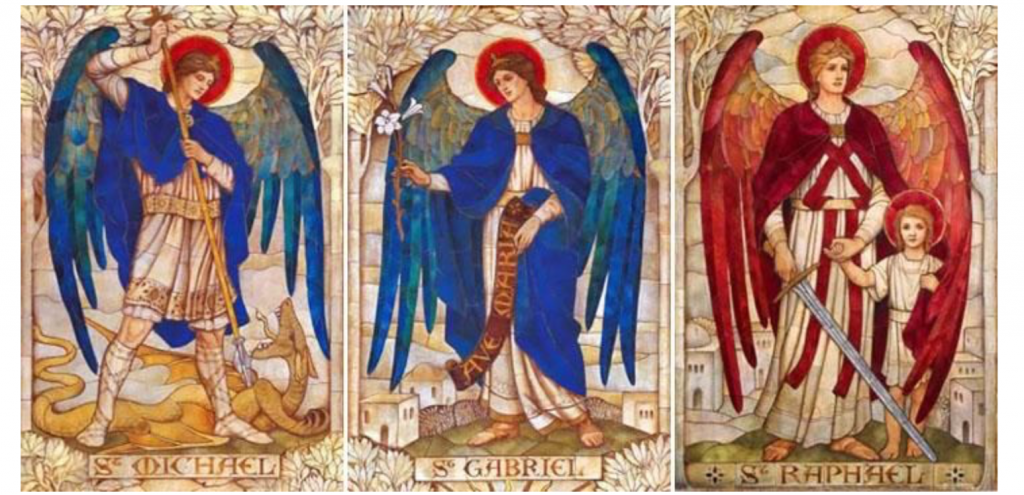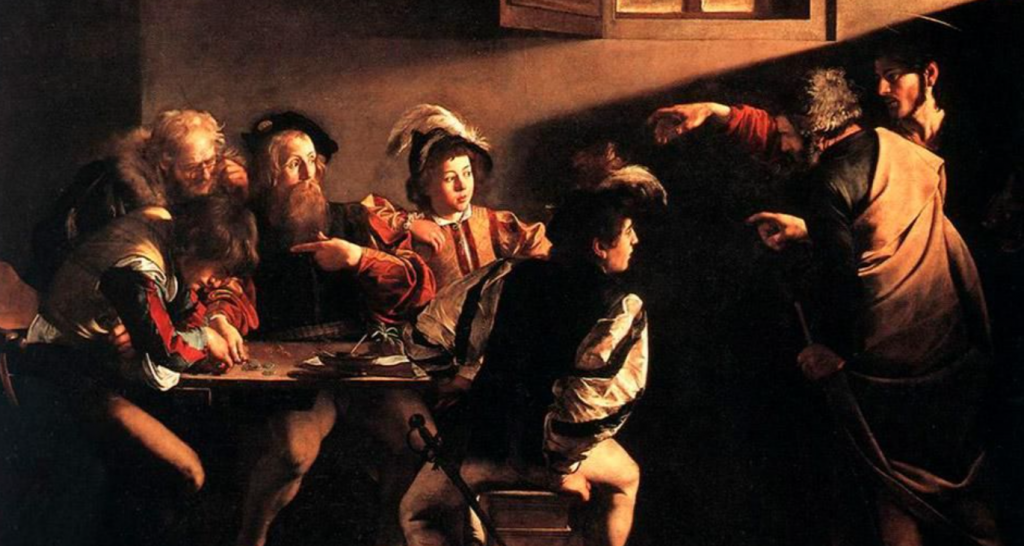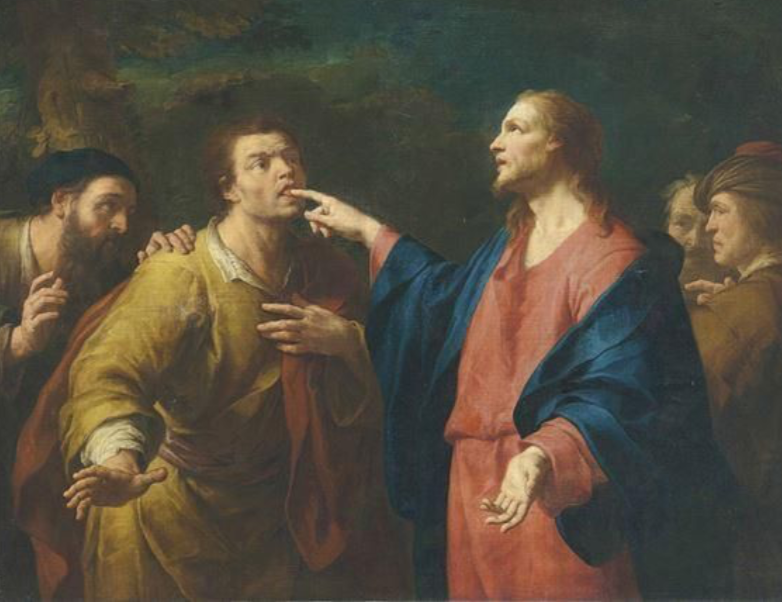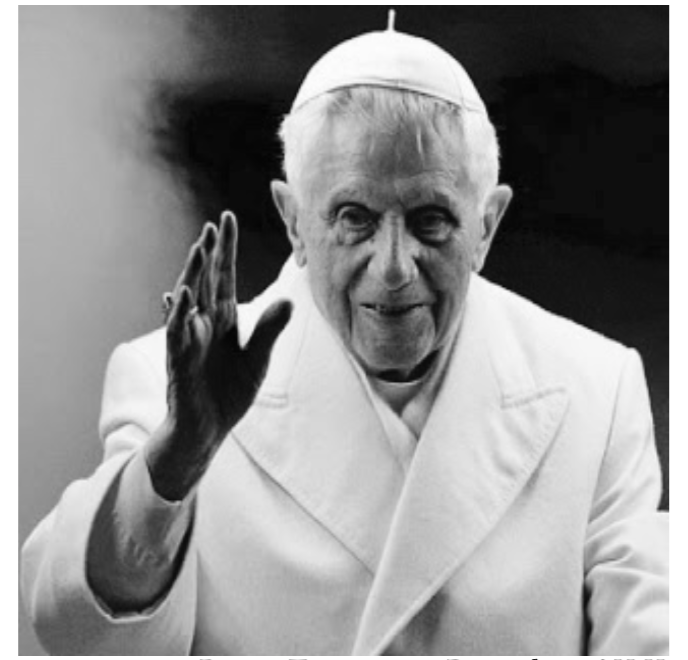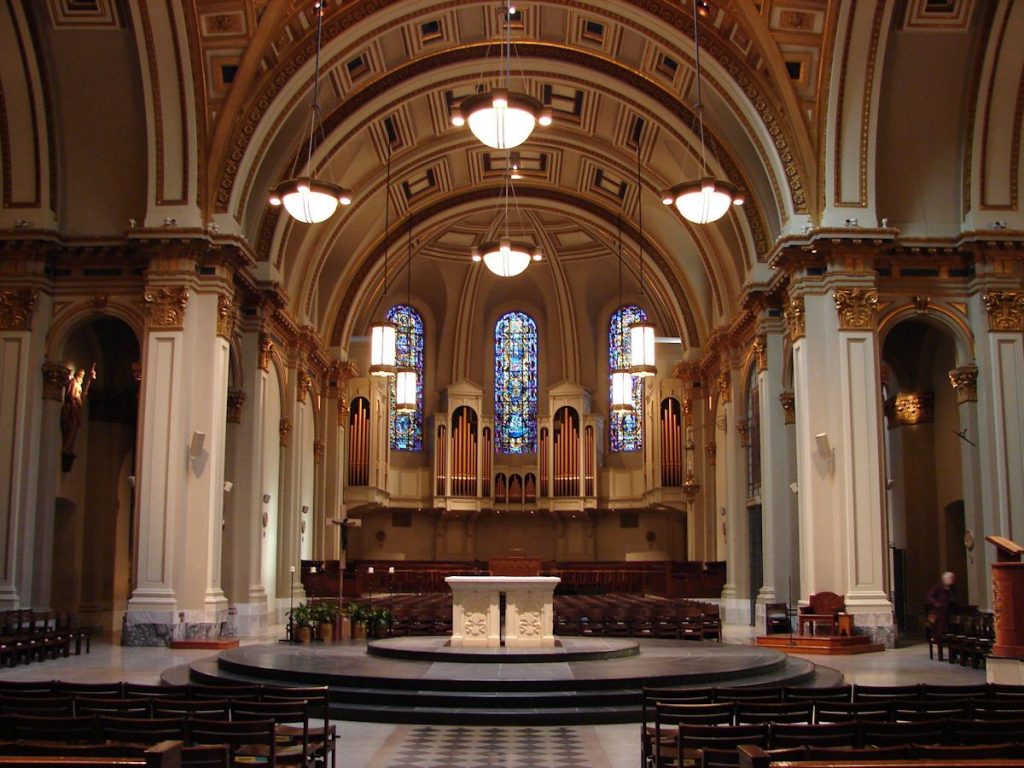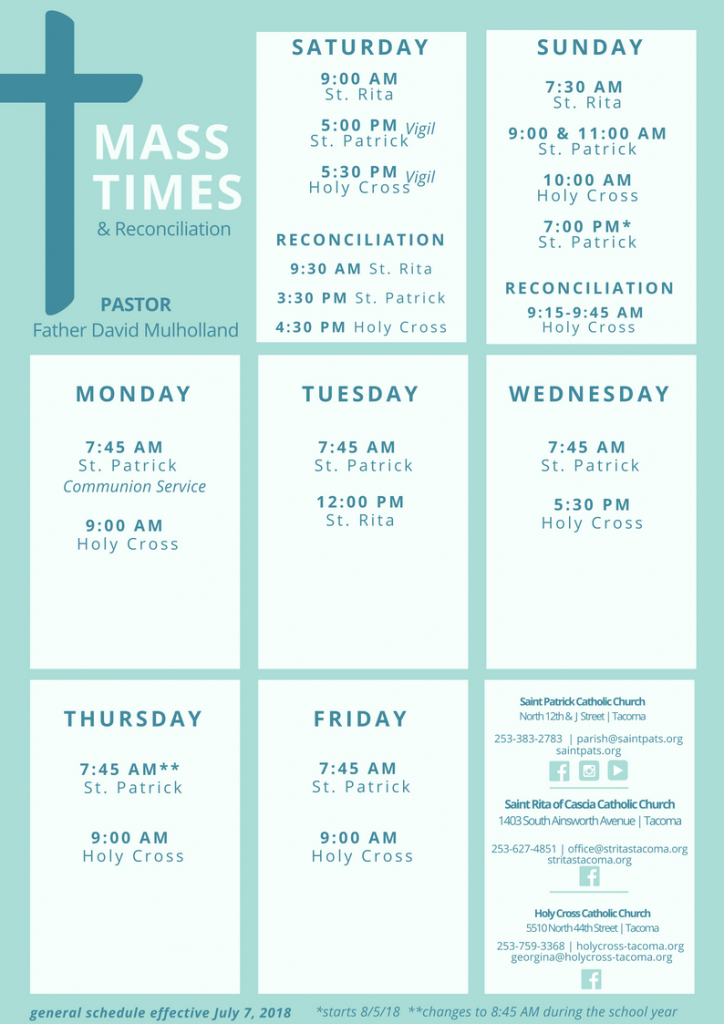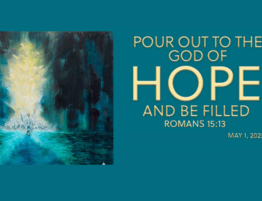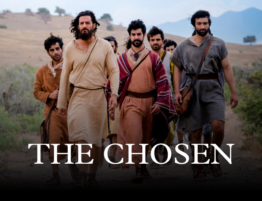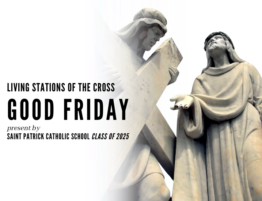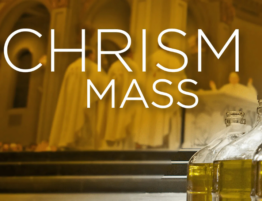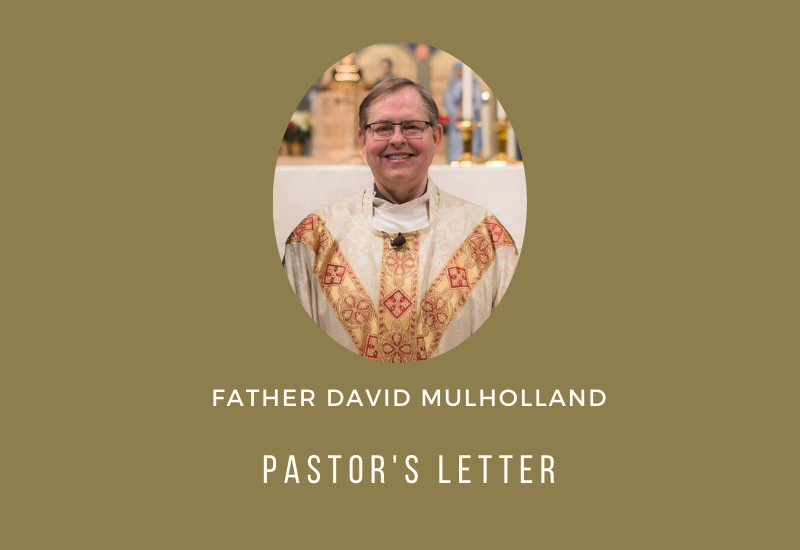
Fr. David Mulholland’s weekly pastor letters and parish news are listed below.
Pastor Letters & Parish News
2020
Christmas 2020
December 20, 2020
December 13, 2020
December 6, 2020
Thanksgiving 2020
November 29, 2020
Special Announcement | Pierce Deanery Parish Planning
November 22, 2020
November 15, 2020
November 8, 2020
Stewardship 2021 Appeal
November 1, 2020
October 25, 2020
October 18, 2020
October 11, 2020
October 4, 2020
September 27, 2020
September 20, 2020
September 13, 2020
September 6, 2020
August 30, 2020
August 23, 2020 | 21th Sunday in Ordinary Time
August 9, 2020 | 19th Sunday in Ordinary Time
August 2, 2020 | 18th Sunday in Ordinary Time
July 26, 2020 | 17th Sunday in Ordinary Time
July 19, 2020 | 16th Sunday in Ordinary Time
July 12, 2020 | 15th Sunday in Ordinary Time
July 5, 2020 | 14th Sunday in Ordinary Time
A Message from the Pastor | June 28, 2020 | 13th Sunday in Ordinary Time
A Message from the Pastor on Father’s Day
A Message from the Pastor | June 21, 2020 | 12th Sunday in Ordinary Time
A Message from the Pastor | Feast of Corpus Christi
A Message from the Pastor | Feast of The Most Holy Trinity
A Message from the Pastor | Pentecost Sunday
A Message from the Pastor | Memorial Day 2020
A Message from the Pastor | May 24, 2020
A Message from the Pastor | May 17, 2020
A Message from the Pastor on Mother’s Day
A Message from the Pastor | May 10, 2020
A Message from the Pastor | May 1, 2020
A Message from the Pastor | April 25, 2020
A Message from the Pastor | April 16, 2020
A Message from the Pastor | April 7, 2020
A Message from the Pastor | March 26, 2020
A Message from the Pastor | March 20, 2020
A Message from the Pastor | March 13, 2020
March 13, 2020
Dear Friends in Christ,
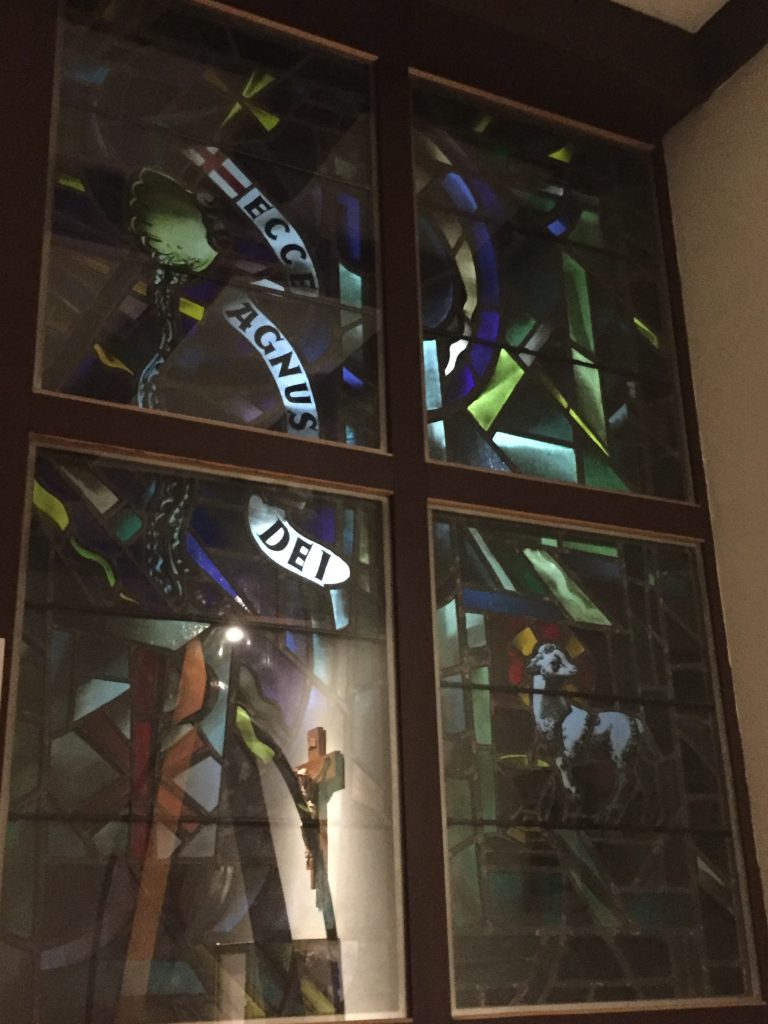 This morning, I had my early morning adoration hour at Holy Cross. When I knelt down, I noticed the street light shining through the window, illuminating the beautiful stained glass in the chapel. I noticed the words, Ecce Agnus Dei, Latin for “Behold, the Lamb of God.” And of course, there was the Lord Jesus right before me, present in the Blessed Sacrament of the Eucharist. He is always with us, no matter what our accessibility to Him might be! He never abandons us.
This morning, I had my early morning adoration hour at Holy Cross. When I knelt down, I noticed the street light shining through the window, illuminating the beautiful stained glass in the chapel. I noticed the words, Ecce Agnus Dei, Latin for “Behold, the Lamb of God.” And of course, there was the Lord Jesus right before me, present in the Blessed Sacrament of the Eucharist. He is always with us, no matter what our accessibility to Him might be! He never abandons us.
We are truly living a Lenten season like no other…. a time in the desert, just like Jesus experienced. We have no food….no Eucharistic banquet for a time. Over the past month, everything has been stripped away from us: Receiving the Precious Blood of Jesus, exchanging the sign of peace, holy water to bless ourselves, and now even the Mass itself and receiving the Lord in the Eucharist. All gone, for now, for our wellbeing.
Friends, all of this is done with our health and wellbeing in mind. We must avoid large crowds and coming into close contact with each other. These are the ways modern science and disease management tell us are the best ways to avoid getting and spreading the virus. To flaunt or minimize these measures is to flaunt the very gifts that God has given to us who live in the 21st century. There is no reason but our ignorance to ignore these measures, to ignore God himself, and even put Him to the test. Remember, when Jesus was tempted by Satan in the desert to jump off the parapet and have angels catch him? The Lord said “It is written, ‘You shall not put the Lord your God, to the test.’” (Matthew 4:6-7) Let’s not put the Lord to the test. He has given us the best of modern science, reason, intellect, and common sense to aid us. Let’s use it to our benefit and thank God for such gifts! Our health and that of our family and friends depend upon our cooperation.
For your spiritual wellbeing, I recommend that you do three things in the weeks ahead:
First, stay close to the Lord in prayer and scripture. We now have more time to pray individually and as a family. Use it well. Give Him all your cares and worries. He is always at our side! Please also take the time to reflect upon the daily and Sunday readings of Lent. They can be found on the US Bishops’ website, usccb.org
I also encourage you to watch the live stream video of Archbishop Etienne’s Sunday Mass from the Cathedral chapel, which begins at 10:00 A.M. on Sunday. It will be on our parish websites for later viewing. These times with our Archbishop give us the chance to be in unity with our chief shepherd and to be inspired by him to stay strong and faithful.
Second, since we cannot gather at Mass to receive Holy Communion, please make it a point to enter into a spiritual communion with the Lord. This is done with a specific prayer for those who cannot receive the Eucharist to unite themselves to Jesus in the Eucharist. So, after you watch the Mass, the following prayer can be said, slowly and prayerfully:
Third, please pray each day for an end to the virus. We need to pray intently and intentionally for God’s help to us all during these times. Archbishop Etienne recommended the beautiful Marian prayer through the intercession of Our Lady of Seattle, Undoer of Knots:
I have found the following prayer powerful and helpful as well:
I want you to know that I am united with you all in prayer each and every day. I offer my daily Mass for you and an end to this coronavirus. Please join me in prayer! We are all in this together, united with a profound love of God and neighbor. Although we are being stripped of many things this Lent, we are gaining a greater love and appreciation for what really counts: the Lord Jesus and each other in our communities of faith!
Blessings,
Fr. David Mulholland
Third Sunday of Lent
When the Lord Jesus encountered people in his ministry, their lives are changed forever. That is true for the Samaritan woman at the well in our Gospel for this Sunday. It’s true when Jesus encountered Matthew the tax collector (and all the apostles for that matter), the woman caught in adultery, Zacchaeus up in the tree, Mary Magdalen, Martha, and the list goes on. These people, with open hearts, were met by Jesus in their fallen human condition, and with his grace, they were never the same. The Lord Jesus met them with his unconditional love and mercy. And this authentic encounter enabled them to receive his grace and transformative power in their lives. The woman at the well changed her life and became an evangelist. Matthew wrote a gospel. Zacchaeus repented of his sin and engaged in good works. The woman caught in adultery hopefully “sinned no more” and lived a virtuous life, and so on. Jesus changes us.
The question is, do we want to change? Many people, Christians included, simply desire to be affirmed in their present condition. In doing so, they often create God in their own image and likeness. In their minds, they envision a Jesus who affirms and approves of their sins, addictions, pride, and narcissism; without a need to repent or seek the Lord’s healing. For them, God’s healing is for others and not them. In fact, they very much lack freedom; they are bound and closed off to the action of God in their life.
Well, I believe that is a grave error. I have not met one person who is without the need for the Lord’s mercy and healing. At my last parish, a homeless man would often ask for money as people left Mass. His name was Greg, and his appearance would tell you that his life was a wreck. But in speaking to him often, I learned that he had an amazing understanding of God’s love and care for him. He knew of God’s mercy, justice and healing. In fact, he had more of his life in order than many of the parishioners who by their appearances seemed to have it all in good order. Greg was an amazing witness to me that with an open heart, the Lord Jesus can transform our lives and give us true freedom in those areas of our lives that we are often bound. Yes, he was homeless. But he was truly at home in the love of Christ and he was not shy to share that.
During this journey of Lent, allow yourself to be found by Jesus. As you encounter him, allow him to meet you in your life right where you are and ask him to show you where the change is needed….and then ask for the grace that makes this change a reality.
Blessings,
Fr. David Mulholland
Second Sunday of Lent
Guest Writer | Fr. Dwight Longenecker
Dear Friends in Christ,
On the Second Sunday of Lent, we have the Gospel of the Transfiguration. The Lord Jesus is revealed in all his glory. It’s a side that has not been seen by the disciples, but it’s who he truly is. Often times, the Church can distort or hide the realities of our faith. This article by Fr. Dwight Longenecker helps us to see the real point of things….a good reflection on this Second Sunday of Lent. ~Fr. David Mulholland
RELIGION: WHAT’S THE POINT?
We ought to be honest. Catholicism is complicated. It has rules and regulations and rubrics. Not only that, it has an awful lot of stuff to believe. Doctrines and dogmas and devotions and canon law…At times the simple, down to earth, individual faith of the Evangelical Protestant looks attractive. The criticism of the Reformers, of course, was that Catholicism was nothing BUT rules and regulations. They criticized the 1500 year accumulation of traditions, devotions, regulations, and strictures mixed with a fair bit of superstition and intentional fraud, flummery and fakery.
I get their point. They wanted to get back to the basics, and that’s not necessarily a bad thing. The problem with any revolution, however, is that invariably the revolutionaries feel they must destroy the old order to create their brave new world. The real point of trying to get back to the basics ought to be an effort not to destroy the old order but to understand it better. An example: instead of destroying statues and icons and beautiful churches we should take the time to understand what they’re for, how they help us and what is good about them.
The same goes for all the rules and regulations of religion. It is wearisome at times to find how much some Catholics are attached to the externals of religion. What a fuss some people make over the intricate details of the liturgy, the moral regulations, and the devotional details. Don’t get me wrong. I’m not saying these things are unimportant. It does matter whether the liturgy is celebrated properly, and it does matter if we observe the moral teachings of the church or not. Canon law matters and so do the doctrines and dogmas and disciplines of the church.
However, while these things matter, there is something that matters more, and that is the endpoint, the goal and the whole purpose of the Christian religion to start with. Saint Paul wrote: “I have been crucified with Christ, and the life I live now is not my own; Christ is living in me. I still live my human life, but it is a life of faith in the Son of God, who loved me and gave himself for me.” This is the endpoint of our religion: to live in Christ and Christ alive in me. The endpoint is this astounding transformation–a kind of transubstantiation if you like in which I become a Christian — “a little Christ.” This is the work of a moment and the work of a lifetime.
Bit by bit the Holy Spirit chips away all that is not Christ in me, and all the religious stuff are the tools he uses. Why do we take care with the liturgy? Why do we try to pray every day? Why do we read the Sacred Scriptures and the lives of the saints? Why do we do the spiritual and corporal works of mercy? Why do we wear scapula’s, light candles, kneel to pray, seek chastity, work for the poor, study and read and pray? None of it is an end in itself. It is a means to an end.
In his rule, St. Benedict says that at the end of the monk’s life he does out of joy what, in the beginning, he did as a duty or out of obedience. Practice makes perfect, and this applies to spiritual life as much as any other pursuit. This is why I am so attracted to monastic spirituality. The simplicity of the monk’s life is one of balance between the rules of religion and the reason for the rules.
While I sometimes become a little bit impatient with the Catholic who is scrupulous and perhaps a bit obsessed with the rules and regulations of religion, I am also disappointed with those who are overly casual, indifferent and even dismissive of the rules and regulations of religion.
All of us should see the rules and regulations for what they are. They are the printed notes on the page, but they are not the music. They are the rules of engagement. They are not the war. They are the principles of painting. They are not the art. They are the ladder on which we climb, but they are not the heaven for which we long and which is our final home.
First Sunday of Lent
Dear Friends in Christ,
Lent is upon us! You will notice from the bulletin cover and the photo above, two scenes from the Stations of the Cross. I am not the biggest fan of contemporary /modern religious art. I find that the beauty of faith in God does not lend itself well to the abstract. But that’s just me. However, I feel that it works well in depicting the stations of the cross, particularly the idea of movement. The Stations of the Cross depict the Way of the Cross; the journey the Lord Jesus made from his arrest and trial to his placement in the tomb after his crucifixion. Each stop or station along the way has religious meaning and significance. I hope to draw upon some of that in my Lenten homilies this year.
As the Way of the Cross, Lent is itself a journey; a journey marking the time from Ash Wednesday to Holy Week, as well as a spiritual journey of faith, meaning, conversion, and hopefully personal growth. We begin with the powerful symbol of ashes on our foreheads, taking to heart the words, repent and believe in the gospel. On this First Sunday of Lent, the above art from the “Sinners Stations,” depicts Jesus beginning his journey by embracing the cross. For him, this began three years before, when after his baptism he was led by the Spirit into the desert to be tempted by Satan. Can we relate to that? Many of the crosses we bear are placed upon our shoulders by Satan himself. Others are of our own making. Still, others are heaped upon us by those around us. Lent is our journey in the desert, where we can, with the Lord’s help, see ourselves as we truly are, and with God’s insight and grace, move forward from the cross to the resurrection.
May this season of Lent be one that truly opens your eyes to the journey from sin to healing in Christ. May the crosses we bear give way to the grace of rest in the embrace of the Lord. Let us keep each other in prayer during our journey to the joy of Easter!
In Christ the Lord,
Fr. David Mulholland
February 23, 2020~guest writer Laura Dougherty
This week’s guest writer is Laura Dougherty, Pastoral Assistant for Liturgy, Funerals and Pastoral Care.
As you did it to one of these, the least of my brethren, you did it to me. Mt 25:40
You don’t have to look too far through scriptures and our Catholic social teaching to recognize the responsibility we have as Christians to care for the poor. In the scripture above, Matthew reminds us that each time we care for someone in need, we are directly caring for Jesus himself.
As Catholics, we are called to spread the Gospel not just through our words, but through our actions. Cross Catholic Outreach, an international non-profit, does this in the poorest nations’ intangible, life-altering ways, addressing the needs of the whole person. Through direct services such as clean water, food, and medical supplies along with services that empower people to help themselves out of poverty, they are fulfilling their mission to “mobilize the global Catholic Church to transform the poor and their communities materially and spiritually for the glory of Jesus Christ.”
This weekend, at all our parishes, we welcome two representatives from Cross Catholic Outreach. Reverend Monsignor Ted Bertagni and Father Bernard Olzjewski, JCD, will hear confessions, celebrate our liturgies and share a little about the important work being done to care for the poorest of the poor of our brothers and sisters.
To learn more about how you can help Cross Catholic Outreach in their mission check out their website. It is full of concrete examples of past and current projects as well as detailed reports on how they are funded and how donations are spent. Cross Catholic reports that over 95% of the money they spend directly impacts program services. Take a minute before or after Mass this weekend to say welcome Msgr. Bertagni and Father Olszewski!
February 16, 2020
A few weeks ago, many people enjoyed one of the best Super Bowl games ever, at least since the Hawks great victory against the Broncos. But many people did not enjoy the halftime show, that some described as a softcore porn striptease. The question many asked is: “Are there any morals anymore? Is any behavior obscene, especially in a family-oriented football game?” The focus on women’s empowerment seemed to morph into women’s degradation.
The next day, I was talking to a friend and I said something I’ve said before; that it seems we live in a culture that tolerates everything (every form of behavior, sexually and otherwise) but forgives nothing. So, softcore porn on a Sunday football halftime is ok, but if a person engages in offensive comments or actions the next day at work, they could lose everything: job, friends, family, etc., without hope of forgiveness and rehabilitation. My friend agreed and said it seems that we live in a nation of X-rated prudes. There’s some truth to that, I do believe.
What does all this tell us? It tells us that established, objective norms, morals, and ethics are apparently the thing of the past. It also tells us that their replacement, subjective relativism, is not a sustainable condition. Relativism, the philosophy that says anything goes if it’s good for me, and it’s for me to decide what is true and good for me, ultimately ends with others being hurt. We cannot live together in a world if only what “I” think and do carries the day. Relativism has replaced the natural law as our standard; with the natural law given by God for “our” good. In the Gospel this Sunday, Jesus reviews the commandments given by God and how he came not to abolish them but bring them to fulfillment. And their fulfillment is found not in our self-righteousness (the pride of “I” and “Me”) but in authentic righteousness, which is being in a loving, respectful relationship with God and others. As the Book of Sirach reminds us today, God sets before us life and death; good and evil. We cannot allow our subjective beliefs of what that means to outweigh the objective realities of our world and our human condition. So, when we tolerate behavior that is objectively immoral and degrading; when we fail to point out the consequence of sin; then we not only fail God but we fail each other. And, in turn, we fail to exercise true love and mercy when we are only governed by our own, (or someone else’s) subjective opinion of things.
God has given us the gift of free will. And he has also given us the way, the truth, and the life to guide our free will, the person of the Lord Jesus. May we follow him in all things for our good and the good of us all.
Blessings,
Fr. David Mulholland
February 9, 2020
This coming Wednesday, we say our final farewell to Archbishop Alex Brunett at his Funeral Mass, which will be at 11:00 A.M. at Saint James Cathedral. Please offer a prayer for the happy repose of his soul.
I first met Archbishop Brunett when I was a seminarian. I was assigned as his driver during his first days in Seattle, as he went from event to event during the days of his installation. In those days before Uber, the Archdiocese rented Lincoln Towne cars to shuttle the archbishops and bishops to and from the airport. Archbishop Brunett did not want to be riding around in that kind of luxury, so he was happy to sit in the front seat of my VW Passat as I took him around. It was a good opportunity to get to know him during those first days. He later ordained me deacon at Saint Patrick in 2001 (the photo above) and as a priest in 2002 at Saint James Cathedral. I am grateful for his various calls to ministry: serving at Saint Charles Borromeo during my first year as a priest, Sacred Heart and WWU in Bellingham, the Lewis County Parishes and then finally as his Vicar for Clergy. At the Chancery, those were a whirlwind six months as we prepared to welcome Archbishop Sartain after Archbishop Brunett’s retirement. I learned a lot from him. I am most grateful for his confidence in me as a priest and pastor. He often saw talents in me that I did not know I had, and he drew them out of me. Although somewhat reluctant to take on the clergy role, looking back it was a time of grace as it prepared me well to serve priests as a spiritual director and in the retreat ministry for priests that I engage in now. As I said in my homily at Saint Patrick and Saint Rita of Cascia last week, authentic obedience always leads to blessing. That certainly has been the case for me since I first promised to be obedient to Archbishop Brunett and his successors way back in 2001.
May God our merciful Father grant Archbishop Brunett eternal rest and peace! God bless you all,
Fr. David Mulholland
February 2, 2020 | Presentation of the Lord
It’s a rare occasion that we get to celebrate the Feast of the Presentation of the Lord on a Sunday. This feast commemorates the time when Joseph and Mary presented the child Jesus to the priest in the Jerusalem Temple. The offerings made, including the offering of their child, were in thanksgiving to God for his many blessings, including the blessing of new life. At this time, the child Jesus was also dedicated to God with the prayer that he would be blessed with the gift of faith in the Lord God.
In the Hispanic community today, a similar presentation has traditionally been made. When I was in Lewis County,
I loved to celebrate presentations at Spanish Mass. In a presentation, the parents bring their newborn baby to Mass, and at the end of Mass, they would hand their child to me and I would lift the baby above the altar and pray to thank God for the gift of new life and asking God the Father to bless the child and the parents; that they would be good and faithful parents….and that they would come soon for the Sacrament of Baptism! These are powerful moments of grace and joy!
Most of us were offered and dedicated to God at our Baptism. As we participate in the life of the Trinity, and as we were offered to God on the day of Baptism, so we also received the gift of his blessing, in the gift of the Holy Spirit. In our ongoing life of faith, this is a continuous exchange of gifts. We are called to daily offer the fullness of our lives as a gift to God, and he in return transforms our lives and blesses us. In a sense, not only is our Baptism renewed in this way daily
but so we are also “presented” anew to God our Father. May we constantly have before our eyes our offering to God and have open hearts to the reception of his many gifts in return.
Many blessings to you all in the week ahead.
Fr. David Mulholland
January 26, 2020
Dear Friends in Christ,
This Sunday’s Gospel contains the unique call of the apostles who are brothers; Simon Peter and his brother Andrew, along with John and James, the sons of Zebedee. They were ordinary fishermen, but Jesus certainly knew that they had the potential to be extraordinary individuals; amazing and inspiring apostles and witnesses of the Good News of salvation. The fact that Jesus called two sets of brothers tells us something too about the importance of families. Vocational calls don’t come out of thin air. The call arises and is cultivated primarily in and through relationships. The most important and impactful relationships are found among our families. The call to be married, or to be a priest, or religious brother or sister, mainly arises from the family. The fact is that we are shaped by the influence of those closest to us. Although nobody in my family ever said that I could or should be a priest, I was told that my great-grandmother Etta Mulholland, always prayed that one of her children or grandchildren would be a priest. Well, God answered her prayer sort of….it was her great-grandson that was ordained!
Being a priest is an amazing adventure! If you know a young man in your family that you think would make a good priest, make it a point to tell him that. Then spend some time praying that he will be open and respond to God’s vocational call, whatever that may be. The “vocational crisis” cuts across all vocations; marriage, priesthood, and religious life. The crisis (lack of vocations) is not that God has stopped calling, but that young men and women are not responding. Being open to God’s call in our lives and then doing something about it (i.e. responding), is critical. When that happens, more marriages, seminarians, and religious will be the fruit. Let’s always pray for a greater response to God’s call for vocations!
Blessings for the week ahead!
Fr. David Mulholland
January 19, 2020
Dear Brothers and Sisters in Christ,
“Behold, the Lamb of God, who takes away the sin of the world.” John 1:29.
Did you know that virtually every prayer and verse in the Roman Missal, containing the content of our celebration of Mass, is from the Holy Bible? Today’s gospel provides a good and meaningful example of this. The above words of Saint John the Baptist are spoken by the priest celebrant in what is called the fraction rite. When the priest holds up the broken host of the Body of the Lord, he says: “Behold the Lamb of God, behold him who takes away the sins of the world. Blessed are those called to the supper of the Lamb.” We respond by saying we are not worthy to receive him, but we call upon the Father “to only say the word, and we shall be healed.”
This is an important part of the Holy Mass because it is then that we join St. John the Baptist on the banks of the Jordan River as we too gaze upon the Lord Jesus in the host and acknowledge him as the Lamb of God; the ultimate sacrifice for the salvation of the world. We look upon Jesus as the living but slain lamb who freely takes on all the sin of all times and places; past, present, and future; ours and others, so that death is not the final word for us. Rather, the living sacrifice of Jesus heals us all and restores us to our original destiny: eternal life! The sacred scriptures and the Church give us many images to reflect upon as we contemplate the truths of our faith. The sacrificial lamb of the old testament; the blood of which was offered to God in the Jerusalem temple, pre-figured what was to come with Jesus; the one true Lamb, whose one sacrifice on the cross, once for all, completely saved us and restored us to life. The images of Jesus, the lamb, the good shepherd, the bridegroom, the priest, the king, the teacher, and the list goes on, all help us to understand more fully the salvation offered to us by God. I encourage you to pray with all these images and ask the Father to show and reveal to you the depths of the meaning contained in them. In doing so, you will understand more of our beautiful faith and will be drawn closer to the Father’s love for you.
Blessings,
Fr. David Mulholland
January 12, 2020
Many of you have watched the Netflix movie, The Two Popes, which depicts a relationship between Pope Benedict XVI and the then Cardinal Archbishop Jorge Bergoglio, who is now Pope Francis, at the time before and during the papal transition. I watched the movie last week, as I recovered from the flu. I love Anthony Hopkins, who played Pope Benedict, and who played him very well. The overall acting was great, the settings and scenes were over the top amazing. But for me, that’s about it. I found the actual substance of the movie to be completely lacking. The content of the movie about the relationship between the two popes themselves is entirely fiction….it did not happen; it’s not real. Instead, it’s the moviemaker’s wishful thinking about how things could have or should have been between these two influential Church leaders. It’s his “spin” on a loose collection of facts that leads us all down a path toward a narrative of these two men that’s simply not true. In addition, there were parts of the movie that really intrigued me, especially about Pope Francis’ time as the Jesuit superior in Argentina during a time of great political challenge and revolution. This time of upheaval and challenge in his life is, I believe, a key to understanding his formation as a leader and how he acts and thinks as pope. But because the moviemaker went so far off the facts in so much of the movie, I can’t really trust that these parts of the movie are true either. This is a fatal flaw.
I’m not the only one who holds this opinion. Bishop Robert Barron had this to say:
The new and much-ballyhooed Netflix film The Two Popes should, by rights, be called The One Pope, for it presents a fairly nuanced, textured, and sympathetic portrait of Jorge Mario Bergoglio
(Pope Francis) and a complete caricature of Joseph Ratzinger (Pope Benedict XVI). This imbalance fatally undermines the movie, whose purpose, it seems, is to show that old grumpy, legalistic Benedict finds his spiritual bearings through the ministrations of friendly, forward-looking Francis. But such a thematic trajectory ultimately does violence to both figures and turns what could have been a supremely interesting character study into a predictable and tedious apologia for the filmmaker’s preferred version of Catholicism.
Bishop Barron’s entire reflection can be found at www.wordonfire.org/resources/article/the-one-pope/26140/
Last weekend, I preached in my Epiphany homily about my new word/theme for the year, which is authenticity. Authenticity is being true to your values and principals. In the Christian sense, it means being true to our faith and our witness of the Lord Jesus. It also means being fair and factual toward yourself and others. You cannot be authentic and at the same time “spin” the facts to support your own particular narrative. Either the facts support your opinion/narrative, or they don’t. But our world today seems to think that anything is fair game to spin, even by creating relationships and scenarios that never happened to support a particular view, and then pass them off as historical fact. That is never a good approach. Personally, I want to know things as they are, not as some moviemakers would like them to be.
All of this tells us that now, more than ever, we need to be more discerning as to what’s really going on; and not simply fall hook, line, and sinker into believing what we see and read in popular culture. Now more than ever, we need to utilize our thinking skills; our faith and our reason need to be employed so we can fully decipher and receive the information that is true, good, and valuable for us. You know, there used to be a bumper sticker that said, “Question Authority!” In today’s world, I think a good one would be “Question Everything!”
Blessings for the week ahead,
Fr. David Mulholland
January 5, 2020
The focus on the Feast of the Epiphany is often on the mysterious Magi who offer unique and strange gifts to the child Jesus. But of great importance are the gifts themselves. The word Epiphany means manifestation. What is being manifested is the identity of who Jesus is: the Christ of God. The gifts brought to the child symbolize his identity. The offering of gold, a royal and precious metal, manifests Christ’s identity as king. The offering of frankincense, a symbol of prayer rising up to God, manifests Christ’s identity as High Priest and mediator between God and man. Finally, the offering of myrrh, a burial ointment, manifests Christ’s identity as savior, who freely dies for the salvation of the world.
These gifts brought by the Magi were offered in honor of the Christ Child. They were also offered with love and sacrifice. In this new year, I would encourage you to consider what precious and loving gifts you can offer to God and others.
I feel that more and more, we live in a society that “takes” rather than gives. At the root of many social ills is an entitlement mentality that usurps the age-old idea that “it is better to give than to receive.” Everybody, no matter their condition, has the ability to give, even if it’s just by their presence. Jesus also highlighted this when he said that he came to serve and not to be served. Everyone can serve in some way. Let’s all make a New Year’s resolution to be a more giving people; a people who actually serve others, not necessarily in their obvious need, but by giving what they need the most for their true betterment. That takes some discernment and prayer if it is to be done right. But when it is done right, it serves and honors the dignity of their person in the highest and truest way. And let’s also give God honor, love, and sacrifice in thanksgiving for his many gifts to us.
Blessings for the new year.
Fr. David Mulholland
2019
“Gee, Wally…..” I grew up hearing those words of Beaver Cleaver spoken often on the Leave it to Beaver show. Over the years, I’ve heard people say how they wish family life were as simple and innocent as was seen in the household of Ward and June Cleaver. But, my friends, life is not black and white; and it’s not a sitcom….from the 50’s or from today.
Family life is much more complex today. Still, life in a family has the possibility of truly being holy, and a place where each member of the family can grow in holiness. The family of Joseph, Mary, and Jesus was faced with challenge and peril from the get-go, just like many of our families today. Life has never been “easy” but still, if we look to the love and care we receive from our Father, we can grow as His beloved sons and daughters no matter what family we may have or the challenges that might be present.
I want to challenge each of our families in this coming new year to truly be present to each other. Whether you’re a couple; have one child or many or none at all, make it a point to dedicate quality time to your family life. Be present to each other. Put the phones and devices down. Look at each other in the eye and have real meaningful conversations; not conversations about the weather, but life, and faith, and things of substance. I feel that our kids today are less social and more socially awkward because they don’t have opportunities to have device-free conversations; person to person, especially with those who are closest to them in their families. When is the best time for this to happen? Well, God, our Father has given us the perfect time: Sunday, the Lord’s day! This is the day set aside so that we may give our Father praise and worship at Mass and grow in love for each other as family, both at the parish and home. This is precious time. Make good use of it and make a real new year resolution to become a holy and loving family!
Fr. David Mulholland
I love this painting of the Child Jesus handing out bread to pilgrims. It tells us something important about the Lord Jesus. It’s a great reminder that at Christmas, the child Jesus is not just a baby, but a savior! As an infant, a small boy, and a grown man, Christ always is a savior. And this little painting reminds us that Christ came to serve and not be served.
On Christmas and during the coming Christmas season, we pause to reflect on the great gift the Father has given to us . . . a savior in His Son and our Lord, Jesus Christ. We give thanks for the gift of Jesus and the gift of salvation; we thank the Father for a savior. And friends, we need a savior! As we look at our world and our own individual lives, we certainly need the transformation and healing that only the Lord Jesus can give. Jesus is the answer to our joys and sorrows; our challenges and our blessings. So let’s be prepared to receive all that the Father desires to give us this Christmas in the person of his Son . . . our savior!
On behalf of our parishes of Holy Cross, Saint Patrick, Saint Rita and our school community at Saint Patrick, I want to especially welcome family and friends who are visiting at Christmas! We are happy to have you join us as we worship and praise God for His great gifts at the celebration of our Christmas Masses! You are always welcome in our communities.
May God bless you this Christmas and in the coming New Year! May His peace and love reign in your hearts, now and forever!
God bless,
Fr. David Mulholland
The readings for the first two Sundays in Advent speak about being prepared for the coming of the Lord; both at the end of time and the end of our time. In addition, we look forward with hopeful anticipation for the coming of the Lord as a child at Christmas.
With this in mind, I pay tribute to our former pastor at Holy Cross, and my brother priest, Fr. John Renggli. Last week we had his Vigil Service and Funeral Mass at Holy Cross, with Archbishop Etienne presiding. The attendance of so many was reflective of who Fr. John was and how much he was loved by so many!
I first met Fr. John when I was a seminarian at Saint Thomas More Parish in Lynnwood. Fr. John had left the parish the summer before but would often come by after the Saturday Vigil Mass to have dinner with Fr. Jim Dalton (the new pastor), Fr. Bill Lane and myself. It was then that I learned what an amazing priest Fr. John was. He had a knack for storytelling and shared so many wonderful stories of the people and places that made up his life. He was so filled with wonder and delight at so many things. Later, I served in his hometown of Chehalis, and he would again stop by for visits and we would go to Mary McCrank’s restaurant where more stories of the priesthood, people and places would flow from Fr. John! What I and so many learned is that Fr. John was an amazing, holy and faithful priest. He loved being a priest. He loved serving the people of his parishes; the people were always first in his mind. What an example he was to me and to so many!
Now, we look forward to Christmas with the same wonder and delight that made Fr. John Renggli such a faithful disciple and son of the Church. May he now rest in the peace of the Lord Jesus, who he loved as savior and friend!
Blessings,
Fr. David Mulholland
Thank the Lord for the season of Advent! The days ahead leading to Christmas, with its celebrations with family and friends, can be a busy and stressful time. But the Church gives us a few weeks of silence, peace, and reflection on the real reason for the season: the coming of the Lord Jesus, in the flesh.
On this first Sunday of Advent, we light the first candle on the Advent wreath. The first candle is called the prophetic candle and the virtue we contemplate is hope. The words of the Prophet Isaiah in our first reading are meant to give the people of Israel hope in the coming of the Savior. “For from Zion shall go forth instruction and the word of the Lord from Jerusalem. He shall judge between nations….” This instruction, this word, of course, is the Lord Jesus. Next Sunday, the Church gives us another prophet, that of Saint John the Baptist, to show us how Jesus is the fulfillment of the hopeful words of the ancient prophets.
Friends, the daily and Sunday Mass readings in Advent give us the hopeful words of the prophets to contemplate as we prepare for Christmas. I would encourage you to make time to come to daily Mass during Advent and celebrate these great events of our faith. And get out your missals and your bibles to dive more deeply into the words of scripture that tell us of the coming of the Christ. The Book of Isaiah would be a great start.
May these Advent days bring you peace and comfort; may they lead you to the joy of the coming of Christ! Blessings,
Fr. David Mulholland
When we think of Christ the King, our first thoughts might be somewhat troubling. We know from human history that kings and queens aren’t the noblest of people. Their rule is often one of oppression and suffering, while they grow rich. So, with Jesus, how is his “kingship” different?
Christ’s kingship is different in that he calls us to share in his rule; in his dominion over the world. When we are baptized, we become partakers in his identity as priest, prophet, and king. For children, this happens right after their baptism in the form of the anointing with the sacred chrism oil. As his disciples, we are called to exercise our common priesthood by offering the sacrifice of our lives; we are called to proclaim the good news of His salvation to all we encounter, and we are called to exercise his dominion by loving God and our neighbor. Pope Benedict VI wrote beautifully about Christ’s kingship, based on love and truth, in a 2006 Angelus Address:
“The whole of his life reveals that God is love: so this is the truth to which he witnessed to the full with the sacrifice of his own life on Calvary. The Cross is the “throne” where he manifested his sublime kingship as God Love: by offering himself in expiation for the sin of the world, he defeated the “ruler of this world” (Jn 12: 31) and established the Kingdom of God once and for all. It is a Kingdom that will be fully revealed at the end of time, after the destruction of every enemy and last of all, death (cf. I Cor 15: 25-26). The Son will then deliver the Kingdom to the Father and God will finally be “everything to everyone” (I Cor 15: 28).
The way to reach this goal is long and admits of no short cuts: indeed, every person must freely accept the truth of God’s love. He is Love and Truth, and neither Love nor Truth are ever imposed: they come knocking at the doors of the heart and the mind and where they can enter they bring peace and joy. This is how God reigns; this is his project of salvation, a “mystery” in the biblical sense of the word: a plan that is gradually revealed in history.”
Friends, the “mystery” of Christ’s universal kingdom is constantly being revealed in the story of our lives. We truly have an important part to play as the fruit of our lives bears witness to his love…a love that makes his kingship one of beauty, grace, compassion, and care. Truly, otherworldly!
Blessings,
Fr. David Mulholland
Dear Friends in Christ,
As most of you know, I lived in Alaska, practicing law, for three years in the early 1990s. It was a great adventure, in so many ways. But I was happy to return home as well. In 1992, I had the opportunity (or more like an obligation!) to travel north to Barrow, Alaska in the dead of winter to take the testimony of an oil worker who was a witness in a very serious injury case that I was working on. It wasn’t an easy trip. It was cold; it was windy; it was dark; it was not pleasant at all. As the above picture notes, this coming Monday begins Barrow’s descent into total darkness for 67 days. And the time before and after is pretty dark as well. My experience of the cold and dark in the day and a half I spent there, can best be described as oppressive and almost alien.
Reflecting on my Barrow trip years later, it reminded me that we truly are a people of light. Jesus said that he is the light of the world. In our reading from the Prophet Malachi this Sunday, despite the prediction of darkness and calamity at the end of the days, “But for you who fear my name, [says the Lord] there will arise the sun of justice with its healing rays.”
Even amid the darkness of winter, the promise of future light remains. Amid every trial and turmoil, is the promise of a new day. During that dark time in Barrow, after our long and contentious deposition was over, I, along with the opposing counsel, the witness, the clients, and the court reporter; we all feasted on a delicious salmon dinner together. Native Alaskans came and performed a beautiful dance for us. All differences and legal arguments were put aside for a moment, and I would say that the light of Christ shined on us in the dead of the Barrow winter for a wonderful evening. We saw each other in a “new light” as we all had such a good time in the dark and cold of Barrow. Many years later, it reminded me that true fellowship was always possible regardless of the situation. I believe those “healing rays” that night helped us all to resolve that difficult case in a good way. It was an unforgettable trip, and very necessary in many ways. And it’s a good lesson that sometimes we must appreciate the darkness before we can receive and appreciate the blessing of the light!
God bless,
Fr. David Mulholland
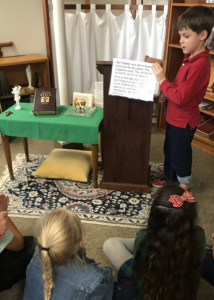 The Atrium
The Atrium
A Place of Peace for All
Every fall since 1997, children and a few adults have gathered weekly in prayer and worship. We have prayed, sung, learned about scripture and liturgy, and have grown as small faith communities. We have listened to the words of the Prophets, prayed with the Psalms, and have drawn especially close to the words of Jesus. Together, we are being formed into intentional discipleship. I am writing, of course, about the experience in the atrium, a sacred space for children ages 3-12, and adults who commit to journey alongside them. In this place, the values of contemplation and enjoyment of God’s great love predominate. This ‘program’ or process is called the Catechesis of the Good Shepherd. For children, contemplation and enjoyment are woven into the fabric of their DNA. We, the adults, are privileged to learn from their innate ability to dive deeply into the metaphysical world of faith.
This past week, a group of 6-9 year-old children were leading prayer. The children come from all types of schooling and all academic and physical ability levels. We are continually delighted to discover that the environment is uniquely qualified to serve children with special needs. Indeed, the experience of encounter with the sacred is not limited to ‘typically developing children’. All are welcome. This week’s prayer with this particular group was beautiful, as it always is. This session has a child with Autism spectrum disorder. The catechists and children take special care to make sure he feels included and can find a portal into the scriptures that speak to him. He is content in this space. The community embraces him for being the beautiful child of God that he is. We learn and grow from each other.
Since the Catechesis of the Good Shepherd has been at St. Patrick Catholic Church for 22 years, we have seen countless children grow up in the faith. We are honored to keep in touch with some of these children and delighted to see how the 9-year journey through parables, liturgical celebrations, study, and personal prayer has borne fruit. Recently, I learned what some of our ‘ex Bambini’ (as they are called) are up to. Here is but a small example: Going on retreat at the Newman Center at his college, assisting in the leadership in Youth Ministry, choosing marriage vocations, pursuing public service and medical professions, working in ministry, becoming teachers… and the list goes on.
How hopeful it is to consider that the formation of the atrium aided these young people to bring Christ to our wounded world, and to live in the fullness of Jesus’ Light with hope and joy, knowing that the Good Shepherd calls them by name for a unique purpose in the Kingdom of God.
We welcome visitors! To set up a tour or observation or for registration information, contact Kim Ward at [email protected] or 253-383-2783 ext. 4108.
In our Good Shepherd,
Kim Ward
Pastoral Associate for Faith Formation
Additional Resources
Dear Brothers and Sisters in Christ,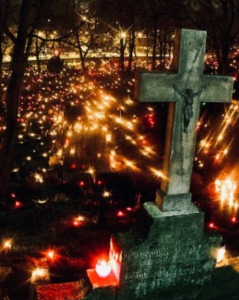
The Feast of All Saints on Friday, November 1st, is a celebration of all the Holy men and women of all time who are saints in Heaven with God our Father (which is the goal of us all!) and who are interceding on our behalf. The joy of that celebration gives way on November 2nd to the somber Commemoration of All Souls; the holy men and women who have died, undergoing purification to be made ready for sainthood in Heaven! In fact, the whole month of November, as fall begins to give way to winter, is dedicated to praying for our deceased loved ones. It’s a powerful reminder of our lives together, both here and in the life to come. But we might be saying just who are these “holy souls” and what’s happening to them . . . certainly all my loved ones are in Heaven, right?
Pope Saint John Paul II gave us a wonderful explanation of the purification after death that we call purgatory:
“Jesus, as the great intercessor who atones for us, will
fully reveal himself at the end of our life when he will
express himself with the offer of mercy, but also with
the inevitable judgment for those who refuse the Father’s love and forgiveness. This offer of mercy does not exclude the duty to present ourselves to God, pure and whole, rich in that love which Paul calls a ‘[bond] of perfect harmony’ (Col 3:14).Moreover, we are invited to ‘cleanse ourselves from every defilement of body and spirit because the encounter with God [in Heaven] requires absolute purity. Every trace of attachment to evil must be eliminated, every imperfection of the soul corrected. Purification must be complete, and indeed this is precisely what is meant by the Church’s teaching on purgatory. The term does not indicate a place, but a condition of existence. Those who, after death, exist in a state of purification, are already in the love of Christ who removes from them the remnants of imperfection.” – General Audience, August 2, 1999
Saint Theresa of Calcutta once said that the goal of our lives is to be made ready for Heaven. If we aren’t there yet at the time we meet the Lord in death, he will give us the opportunity to be purified of all that keeps us from a loving communion with God and each other in Heaven. Our prayers for family and friends who have died can aid them in that process. Since our prayers made now and in the future are of an eternal nature, they have literally already greeted our deceased loved ones at their death; and they are delighted to be met with the prayerful aid of all who love them. Our prayers help them to be open to the perfect love of God that makes all things new! Since purgatory is not a place but a condition of purification, we should always pray for those who have died. We should never presume the things of “time” in “eternity.” My spiritual director once said that we should pray for and to our deceased family and friends for intercession, at the same time. We do both for their good and for ours, as well. So, always remember your family in prayer.
Blessings for these November days of prayer and remembrance!
Fr. David Mulholland
Guest Writer | Allison Verhofstadt, Youth Minister
Look mama, that’s Jesus’ house!”
Every time we enter the church, my 3-year-old daughter, excitedly whispers this to me as she points to the tabernacle, that tiny little golden box at the front of our church. Her exclamation always makes me smile at how beautiful her childlike faith is. That’s simply because I told her that Jesus lives in the tabernacle, she believes and trusts that it is truly His house. I am continually humbled, both in motherhood as well as in youth ministry here, when I realize that these “kids” I am given to teach often times end up teaching me as well. 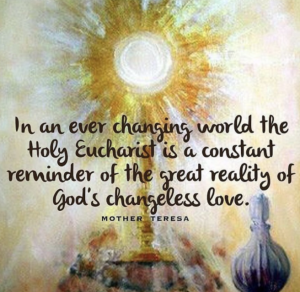
Several weeks ago, Fr. David wrote about a recent Pew Research Center survey citing that approximately 69% of Catholics respond that they do not believe in the Real Presence of Jesus in the Eucharist. While my heart breaks at this reality of our Church today, I cannot say that I am too surprised. Many priests I know humbly took ownership of this outcome, saying that they needed to better catechize their congregations on the
Eucharist. While this might be true, I believe that we as the laity have an obligation to participate actively as co-workers in the vineyard with our pastoral fathers. We need to take ownership of how we as the faithful can and should give witness to the Real Presence.
Even though I have a deep faith in and reverence for Jesus in the Most Holy Eucharist, I am still able to recall one too many times that I have raced against the clock, rushed into Mass, quickly genuflected, and plopped into my pew sweaty and frazzled for the first five minutes of the liturgy. In those moments I become more concerned about catching my breath than about saying a proper hello to Jesus. I know how easy it is to become distracted by the shoes of the person in front of you in the communion line or the words to the communion hymn, rather than keeping your eyes and attention fixed on the Person of Jesus you are about to receive in the Eucharist. But would I ever enter the house of my truest friend in such a hurried way? Of course not! I would greet and hug the host, thanking that true friend for inviting me into his house to feast at his table. I think for many of us, especially as cradle Catholics, it is very easy to become too familiar with sacred things. So familiar, that we really begin to act as though they are not sacred at all. The very word “sacred” means to “set apart” something from ordinary things–and yet, if a non-Catholic were to walk into our church’s doors this Sunday and observe how we entered this sacred space and received Holy Communion, would that person see or notice what is sacred by the way we act? Are we entering with reverence and joy, or are we shuffling in and scrolling through our devices? How many times have we heard Fr. David say the words, “this is My Body” as he holds that sacred bread in his hands, and yet how many times have we actually acted and responded as though we believed him?
Sister Miriam James Heidland, a SOLT sister, said recently on her podcast: “If what Jesus said is true, if He is really and truly present on the altar in the Eucharist, then that changes everything.” We as Catholics know that Jesus wasn’t lying when He said He would “never leave or forsake us” because He is with us constantly in the tabernacles and on the altars of our church. That little flickering red candle that indicates the Presence of Jesus is like the warm spark and rhythm of His heartbeat, calling our attention to the fact that a living Person is waiting here for us every time we enter these church doors. And that should change everything for us, the way we live, act, and speak. We the laity must serve as witnesses to this Truth, so that anyone who watches us in this church, in front of the Eucharist, may recognize Who it is that we are here to see. We must act in a way that changes lives and transforms and transfigures those who watch us, for we are entering into the house of the One who transforms and transfigures us. May we never lose the child-like wonder and excitement at the reality that this is Jesus’ house and He is physically here to greet us as the perfect Host, lovingly inviting us to His table.
Allison Verhofstadt
This past Friday and Saturday, Tacoma once again hosted the Cornerstone Catholic Conference. It’s a regional gathering of people who are committed to the teachings of the Gospel of Life and the social doctrine of the Church. In short, it brings people engaged in the pro-life and the social justice movements together in one place to pray and be inspired in the call of Christ in these important areas. At the heart of it all is the call of the Lord Jesus to be His witnesses to a world that is all too indifferent to the most vulnerable in our society. The vulnerable are the ones who are often forgotten and left by the wayside as society marches on. Right now the unborn are at high risk for abortion in today’s modern culture. The homeless and hungry are seen as a problem to be moved somewhere else. In each of these scenarios, the person, born or unborn, is often seen as a problem to be dealt with rather than a person to be served. The Lord Jesus calls us to serve people; to love our neighbor. We are not called to “deal” with problems or just “help” out.
Our role in all this as disciples of the Lord is to pray and become engaged in living our faith in tangible ways. What to do first requires reflection; then discernment and then action.
Venerable Dorothy Day gives us some inspiration for this process:
“People say, what is the sense of our small effort? They cannot see that we must lay one brick at a time, take one step at a time. A pebble cast into a pond causes ripples that spread in all directions. Each one of our thoughts, words, and deeds is like that. No one has a right to sit down and feel hopeless. There is too much work to do.”
And Saint Theresa of Calcutta reminds us that there is no time like now to get going:
“Yesterday is gone. Tomorrow has not yet come. We have only today. Let us begin.”
The Cornerstone Catholic Conference is a great reminder that we are in this together. There is strength in numbers but behind it, all is the individual commitment to become engaged and to begin to serve those who are most vulnerable in our society.
Blessings,
Fr. David Mulholland
In the Sunday Gospel, ten lepers are healed but only one returns to the Lord Jesus to give thanks. Thanksgiving really is a key to living a joy-filled Christian life. Our celebration of the Mass on Sunday, the Lord’s Day, and the first day of the week is the way in which we can begin our week of giving thanks to God for all our blessings. In the past weeks during my homilies, I referenced a letter by Saint Justin the Martyr in the year 155 A.D. It’s a letter to the Roman emperor, Antoninus Pius, to explain what it is that Christians do on Sunday. I think you will find it familiar!
On the day we call the day of the sun, all who dwell in the city or country gather in the same place. The memoirs of the apostles and the writings of the prophets are read, as much as time permits. When the reader has finished, he who presides over those gathered admonishes and challenges them to imitate these beautiful things. Then we all rise together and offer prayers for ourselves and for all others, wherever they may be, so that we may be found righteous by our life and actions, and faithful to the commandments, so as to obtain eternal salvation. When the prayers are concluded we exchange the kiss. Then someone brings bread and a cup of water and wine mixed together to him who presides over the brethren. He takes them and offers praise and glory to the Father of the universe, through the name of the Son and of the Holy Spirit and for a considerable time he gives thanks (in Greek: eucharistian) that we have been judged worthy of these gifts. When he has concluded the prayers and thanksgivings, all present give voice to an acclamation by saying: ‘Amen.’ When he who presides has given thanks and the people have responded, those whom we call deacons give to those present the “eucharisted” bread, wine and water and take them to those who are absent.
As you can see, thanksgiving is at the heart of the celebration of the Mass. Eucharist is the Greek word for thanksgiving. May we take to heart that thanksgiving is a beautiful way to live our lives as Catholics in a world that is too often negative and kinda down in the dumps. By calling to mind our blessings and giving thanks to God our Father, especially at Mass, gratitude wins the day!
Many blessings,
Fr David Mulholland
This coming Friday, October 11th, we celebrate the memorial of a modern-day saint: Pope Saint John XXIII. While he was pope, when I was born and in my earliest years, I really have no recollection of him. The first pope I was really aware of was Pope John Paul I….for just a brief 33 days.
Pope John XXIII had a huge and profound impact on the Church and the people of God. Most Catholics thought he would be a “caretaker” pope but instead, he opened the Second Vatican Council, which continues to shape the Church to this day. He was seen as the “good pope” by many, given his friendly nature. I recall my dad having a copy of his “Journal of a Soul” at his bedside. He loved reading about the spiritual formation of this good pope. An inspiring quote from that journal says:
“Consult not your fears but your hopes and your dreams. Think not about your frustrations, but about your unfulfilled potential. Concern yourself not with what you tried and failed in, but with what it is still possible for you to do.”
The quote attributed to Pope John that I like to use, and apply in my own life, is more of a quip….. “Lord, it’s your Church, I am going to bed.” Whether he actually said that I’m not sure. But it’s a good sentiment to have; placing all trust at the end of the day in the Lord our God!
What follows is a beautiful prayer from Pope John XXIII. It’s very appropriate as we enter into this month of October, dedicated to the Holy Rosary:
“O Jesus in the Blessed Sacrament, I would like to be filled with love for You; keep me closely united with You, may my heart be near to Yours. I want to be to You like the apostle John. O Mary of the Rosary, keep me recollected when I say these prayers of yours; bind me forever, with your rosary, to Jesus of the Blessed Sacrament. Blessed be Jesus, my love. Amen!”
May God bless you all!
Fr David Mulholland
Dear Friends in Christ,
This Sunday’s Gospel of the parable of the Rich Man and the Poor Man Lazarus illustrates a great tension. Jesus actually says that there is a great chasm between the rich man in torment and Lazarus basking in his reward with Abraham. The tension, for us, lies between the things and riches of the world and the things of faith and God in the world to come. I feel that the above photo from 1940s New York shows this dramatically. On the left is the statue of Atlas, with the world on his shoulders, which is located in Rockefeller Plaza. Across the street is Saint Patrick’s Cathedral. I think the juxtaposition of these two dramatic places illustrates this tension. John D. Rockefeller purposely designed the plaza to show the power of man (reason, intellect, etc.) over the power of God and faith. Yet, the beauty and symmetry of the facade of Saint Patrick’s towers over the statue of Atlas. In between the two places is the street scene where we live, especially in the modern-day; the tension between faith and reason. Yet faith and reason were never intended to live in this tension; this juxtaposition against the other. Saint John Paul II said:
“Faith and reason are like two wings on which the human spirit rises to the contemplation of truth; and God hasplaced in the human heart a desire to know the truth- in a word, to know himself- so that, by knowing and lovingGod, men and women may also come to the fullness of truth about themselves.” –
John Paul II’s Encyclical Fides Et Ratio
Archbishop Etienne’s motto for his episcopal ministry is “truth in love.” The modern-day tension between the glory of man and the glory of God; reason and faith, gives way when these tensions give way. And tension yielding to harmony happens when love wins out. In the Gospel, what is greatly lacking in the rich man is love, for Lazarus and ultimately for himself. The commandment to love God and neighbor illustrates how the place of tension in our daily lives can give way when love is seen as a necessary component in all our relationships.
Blessings,
Fr David Mulholland
It’s no secret that I am a fan of the Washington State Cougars. Go Cougs! is part of my vocabulary, to the coreof my being. Most people who go to WSU have a good experience of the place. Many of us return as alumni for games and other functions; mainly to re-live our youth to some extent! School pride is also a way in which community is formed. But it can be tricky too. A few weeks ago, a fourth grader in Tennessee, a big fan of the University of Tennessee Volunteers, wanted to show school pride, even at a young age. So he made a“home-made” UT design and taped it to an orange T-shirt and wore it to school. He was roundly teased and bullied for what he wore. But the university thought his love for UT needed to be rewarded. So they took thelittle boy’s design and made it into a real T-shirt……50,000 shirts later the university also awarded him a full ridescholarship for the year 2028, should the boy successfully apply for admission!
What I find interesting about the story is that the little boy authentically loved UT and wanted to show it in hisown way. He designed an objectively awkward shirt but did so with love and dedication…more so than anydesign company could do. Is any of this related to our life of faith? Well, I think it can be. How often do we awkwardly show our love for the Lord Jesus and his Church in our daily lives? Simply celebrating Mass onSunday is a counter cultural thing to do these days….and some people are roundly mocked for doing so.
People tell me this all the time. Some succumb and give in and stay away. Others ignore it and happily come to Mass. Church teachings are roundly mocked and Catholicism is made fun of as an outdated set of rules and morals that no longer apply. Yet many of us stay true to the faith that has been handed onto us, through thick and thin, so that we may show the love of Jesus in a world that is all too indifferent. What awaits us for all this? Well, not a full ride scholarship to Tennessee, but something much greater! The reward is living life to the fullest, authentically as disciples of the Lord, who loves us so that we can reflect his love to those around us. That is what ultimately will change our world for the better and lead us all to eternal life. Today, that takes boldness and courage. Just like that of a little boy in Tennessee.
God bless,
Fr David Mulholland
Dear Brothers and Sisters in Christ,
While Saint Patrick and Saint Rita parishes will hear the beautiful Parable of the Prodigal Son from Saint Luke’s Gospel this Sunday, Holy Cross Parish will be celebrating their feast day… the Exaltation of the Holy Cross. This feast is celebrated on September 14th but can be transferred to the nearest Sunday for a parish feast day. Yet, in many ways, the lessons of the prodigal son and the cross of Christ are the same.
“Behold the wood of the cross, on which hung the savior of the world” is the chant of the priest or deacon as the cross is brought into the church at the Good Friday Service during Holy Week. It is chanted three times. The response of the people follows three times: “Thanks be to God!” Truly, thanks be to God who gave us the Lord Jesus as a savior! Our loving Father gave us his son Jesus, to become one with us in all things but sin; who then suffered for us and freely took upon all the sin of all time, to nail it to the cross, so that death would be defeated and eternal life would once again become our destiny. This, in essence, is the “kerygma,” a Greek word meaning “proclamation.” What is being proclaimed? The good news of Jesus Christ is being proclaimed. His gift of salvation; his defeat of sin and death; his victory that promises us transformation and healing.
If you want to go a little deeper to understand the kerygma and its relation to your life, then I would encourage you to sign up and attend the Alpha sessions beginning on Tuesday, September 17th at Holy Cross Parish. Alpha, which means beginning, is literally the beginning of the story of salvation offered to us by God our Father. I hope to see you there.
And what about the Parable of the Prodigal Son? Well, where the cross of Christ is a visual representation of the gift of salvation, the story of the prodigal son is a narrative of that salvation; a wayward son, prone to sin and death, is embraced by the merciful love of his father, and restored to his rightful place as a beloved son. The cross, in turn, upon which hung the very Son of God, was the place of the most loving and merciful “embrace” of the Lord Jesus….for us and our salvation. We, my friends, are prodigal sons and daughters of the Father, saved by Jesus’ embrace on the cross!
Blessings to all for the week ahead!
Fr David Mulholland
Dear Friends in Christ,
In this Sunday’s Gospel, Jesus uses some shock and awe on us! He tells us we can’t be his disciple unless we hate, yes hate, our father and mother and wife and children. We can’t be his disciple unless we carry our cross and follow him. What does he mean? He speaks this way to capture our attention. It’s not so much that we are called to “hate” as we are to renounce all that is not of him. We need to focus on him, at all times and in all relationships, even when we have a cross or crosses to bear.
This past week saw a big transition for us in the Church in Western Washington. Archbishop Etienne took over from Archbishop Sartain. In my homily this week, I will speak a bit about our new Archbishop’s vision. But as we consider this Sunday’s Gospel from St. Luke, I feel Archbishop Sartain’s parting words to us are good for us to ponder:
“Catholics in Western Washington have a responsibility to do our part to ensure that as our state grows wealthier, it does not forget its soul. You and I have something valuable — something beyond price — to offer, and we must offer it with courage and joy. We have the Lord Jesus. Or better said, the Lord Jesus has us as disciples and missionaries.
If ever we find ourselves bemoaning the secularity of our world or its often-impersonal character, it is time to remember that we are where we are precisely because the Lord Jesus has sent us here. The Lord Jesus will use us here. The Lord Jesus will work through us here.
What have we to offer Western Washington? The Lord Jesus, Son of God and Savior of the World, his redeeming word, his living presence in the Church and her sacraments. Everything — everything — we do flows from him, and him alone.
In an archdiocese the size of ours — with so many blessings and talents in a congregation almost a million strong — it is important to remember that everything comes from the Lord Jesus and everything should be offered back through him to the Father. Ironically, as Pope St. Paul VI once wrote, it is easy to be so wrapped up in the work of the Lord that we forget the Lord of the work!
My farewell prayer is that amid all the distractions that beset daily life and the Church herself, we will focus more intentionally, more lovingly and more prayerfully every day on the Lord Jesus. The Church is, after all, his Body. The refrain of an African- American spiritual helps me keep the ultimate perspective:
Give me Jesus, give me Jesus,
You may have all the world,
but give me Jesus.”
Amen!
Fr. David Mulholland
Dear Friends in Christ,
I was really happy a couple of weeks ago on the Feast of Saint Dominic. I had the opportunity to attend the Dominican Rite Mass, a very ancient form of the Latin Mass, celebrated by the Dominican priests at their parish, Blessed Sacrament, in Seattle. It was a beautiful and reverent celebration. It was attended by about 150 people, with the average age being about 28! I was definitely the “old” priest there. But despite the fact we celebrated in the parish named after the very Body and Blood of the Lord, the “Blessed Sacrament,” that morning I was very disheartened to read the results of a recent Pew Research Center survey that found “that most self-described Catholics don’t believe [the] core teaching” that the Eucharist is the very Body and Blood of Jesus. The survey found “nearly seven-in-ten Catholics (69%) say they personally believe that during Catholic Mass, the bread and wine used in Communion ‘are symbols of the body and blood of Jesus Christ.’ Just one-third of U.S. Catholics (31%) say they believe that ‘during Catholic Mass, the bread and wine actually become the body and blood of Jesus.’”
How can this be? How can people come to Mass, listen to the words of sacred scripture, the prayers of the missal, and not believe this core teaching? What do you believe? Friends, I did not give my life over to be a priest for a “symbol” of the Lord Jesus! I gave my life over to Him who is really present in the Holy Eucharist. My testimony to you is that it is Him and not a symbol. I’m with the great southern writer, Flannery O’Connor, who once attended a dinner party where some Protestants were saying that it is more open-minded to think that the Blessed Sacrament of the Altar is a great, wonderful, powerful symbol. Her response was, “If it’s only a symbol, to hell with it.” Well, I agree with Flannery! She knew no “symbol” could sustain her in her life, only the Lord himself could do that!
In the coming weeks, we will be focusing on the renewal of our true Eucharistic belief. In the meantime, here are some texts from the Catechism of the Catholic Church to become more familiar with and to take to heart:
1324 The Eucharist is “the source and summit of the Christian life.” The other sacraments, and indeed all ecclesiastical ministries and works of the apostolate, are bound up with the Eucharist and are oriented toward it. For in the blessed Eucharist is contained the whole spiritual good of the Church, namely Christ himself…”
1333 At the heart of the Eucharistic celebration are the bread and wine that, by the words of Christ and the invocation of the Holy Spirit, become Christ’s Body and Blood. Faithful to the Lord’s command the Church continues to do, in his memory and until his glorious return, what he did on the eve of his Passion: “He took bread. . . .” “He took the cup filled with wine. . . .” The signs of bread and wine become, in a way surpassing understanding, the Body and Blood of Christ.
1336 The first announcement of the Eucharist divided the disciples, just as the announcement of the Passion scandalized them: “This is a hard saying; who can listen to it?” The Eucharist and the Cross are stumbling blocks. It is the same mystery and it never ceases to be an occasion of division. Will you also go away?” The Lord’s question echoes through the ages, as a loving invitation to discover that only he has “the words of eternal life” and that to receive in faith the gift of his Eucharist is to receive the Lord himself.
God Bless,
Fr. David Mulholland
Dear Brothers and Sisters in Christ,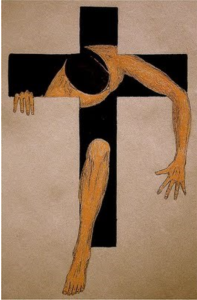
Just what is the narrow gate that the Lord speaks of? Is it something we find at the culmination of our lives as we enter into eternal life? Or is it a constant gate that we are called to approach and enter at any number of times on a daily basis? It’s probably both, but I would like to focus on the second image; that of the gate we may see any number of times on a daily basis.
The above painting uniquely depicts this verse of the Gospel. It sees the “narrow gate” as the cross itself, with a person literally climbing through the “opening” of the cross. Saint Paul famously said that he came to preach Christ crucified and risen. He did so knowing that the cross was the only way to the new life of resurrection. The cross of Christ, which Jesus said we too must take up daily and follow Him, is a key to striving toward the narrow gate in our own lives. Living daily with all our crosses recognizes that our pains and burdens can have a purpose beyond ourselves. And when our crosses are offered to the Lord, especially for something or someone worse off than us, they begin to have a redemptive effect. Which in turn is what transforms our pains and burdens into happiness and joy. It may seem that accepting and “living” our crosses in this way is truly a narrow and even an archaic way to think. But we are called to think differently than the world. Jesus promises us that the“narrow” way and its gate leads to an infinite horizon of the fulfillment of all our desires. As Psalm 117 tells us in the responsorial, “For steadfast is his kindness toward us, and the fidelity of the Lord endures forever.”
May we place our trust in the Lord! Blessings,
Fr. David Mulholland
The Audacity of Holiness
Dear Friends in Christ,
As I have said many times, prayer is meant to be very simple; essentially an open conversation between us and the Father. Fr. Ian VanHeusen, a priest of the Diocese of Raleigh, North Carolina, has some bold words on the implications of such a relationship we call prayer:
“Through Jesus Christ, the Christian has the audacity to talk with God on familiar terms. In Christ, we have access to the Father as coheirs with the Son, and thus through grace, we are given a certain equality with God. Such a radical claim does not mean that we cease to be humans, but rather that our humanity is brought into a whole new horizon of activity, a dramatic communion that bridges time and eternity.
The greatest failure of many Christians is that they fail to tap into the potential of this incredible gift. Instead of a spirit of confidence, many retreat into a lukewarm spirit, a petty spirit of mediocrity and sentimentality. Religion is not meant to simply be a warm blanket that soothes and calms the more difficult questions of our life, but an incredible journey of transformation, growth, and ultimately, sanctity.
To acknowledge the holiness of God’s name is both an act of humility on God’s part and an invitation to a spirit of boldness and prophecy. In Jesus Christ, God reveals his humility and comes to us in our lowly condition. Without God losing any of his omnipotence, he puts at our disposal the indwelling of his Holy Spirit and the vitality needed to live completely for him and for others. In turn, he calls us to use his name as an act of habitual remembrance, a weapon against lukewarmness and forgetfulness.
So often as we invoke God’s name, we invite his presence into the midst of our lives. So often as we cry out from the depths of pain and suffering, we give him permission to enter into and transform our fallen human condition. It is this invitation which constitutes one of the essential features of prayer. Prayer is not so much a series of petitions or carefully considered pious reflections, but rather a simple surrender of faith, hope, and love. In this, we must dare to call on God by name. To speak with him in an exchange of intimacy and familiarity; an exchange of boldness and audacity.”
May we all pray to our Father in a bold and audacious way! May we allow him to be our Father.
Fr. David Mulholland
THANK YOU!
Dear Friends in Christ,
Last weekend was our amazing Healing the Whole Person Retreat (376 participants) and Day of Equipping Conference (162 participants) at Holy Cross Parish, put on by the inspiring ministry team from the John Paul II Healing Center in Tallahassee, Florida. It was a big success and many people shared about their powerful encounters with the Lord and how they received the grace of spiritual and physical healing, as well as spiritual transformation and renewal. This is my fifth year working with this ministry team and I knew that when I came here last year, I wanted the people of our region to experience these graces. We had folks from all over the northwest and beyond (even from upstate New York)!
None of this would have been possible without the dedication, service, and sacrifice of our parish volunteers and staff from Holy Cross and Saint Patrick. I am so impressed, proud, and so grateful for everyone who stepped up to help and who did so beyond expectations! Some are pictured above, but there were others as well. We are so blessed with such generous folks who truly know what it means to be open to the Mission of the Lord Jesus in our communities as we reach out to those in need, those among us, and those from far away. True hospitality, welcome, and love were on display in a big way last weekend. Thank you, everyone, for your awesome service!
For everyone who was praying for a successful event, your prayers were answered. But keep praying for all who participated in the retreats. As we all go deeper in the spiritual life; what the retreat brought up and what the Holy Spirit stirred into action, continues to need our prayerful support for all who attended. The enemy of our human nature is not pleased with the graces of last weekend. So be alert, knowing that he roams about seeking the ruin of souls (1 Peter 5:8). Be strong and place your trust in the Lord, knowing that He has us in His loving embrace and care!
Blessings to you all in the week ahead.
Fr. David Mulholland
Dear Brothers and Sisters in Christ,
The great southern writer Flannery O’Connor once wrote, “I would like to be a mystic and immediately!” She wanted it all and now! Many of us approach prayer to God with that same zeal. That’s not all bad. Our Father desires what we be simple and direct with Him. But to be a great contemplative and mystic, right now, may take some time. Most of us enter into prayer with good and even great intentions. But like the above photo, our “Dear Jesus” can soon become a jumble of distractions, random thoughts, words, and even actions that challenge our time of prayer. This is why many people give up on prayer. But God our Father desires that we approach Him nonetheless, no matter how imperfect our prayer may be. He knows our intentions and He knows that we desire to draw close to Him.
To enter into prayer and let God takeover is really the goal. For it is God who fashions us into mystics and contemplatives, not ourselves. Prayer, like the liturgy, is not our own work but our participation in the work of God. It is God who calls us and draws us into communion with Him. Flannery O’Connor seemed to understand that despite her zeal, when she wrote, “All my requests seem to melt down to one for grace – that supernatural grace that does whatever it wants.”
For us too, we can surrender all to God when we enter into prayer with Him. Simply let go and ask for His grace to dwell in your heart….then be silent and see what happens next; let Him do whatever He wants!
God bless,
Fr. David Mulholland
Dear Brothers and Sisters in Christ,
I found it! I found the image on the internet of the painting of Mary 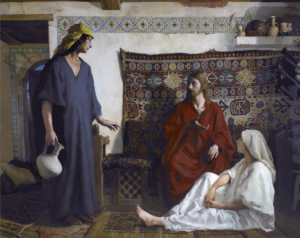 and Martha I referred to in my homily last Sunday. You can see how at peace and at ease Mary is, lying at the feet of Jesus! As I said, that truly is the goal of the spiritual life. This Sunday’s letter is a continuation of the theme from last Sunday. I want to share with you some words of Pope Benedict XVI, who himself reflected on this most profound event of the gospels. He wrote these words in the summer of 2010, as part of a Sunday Angelus message:
and Martha I referred to in my homily last Sunday. You can see how at peace and at ease Mary is, lying at the feet of Jesus! As I said, that truly is the goal of the spiritual life. This Sunday’s letter is a continuation of the theme from last Sunday. I want to share with you some words of Pope Benedict XVI, who himself reflected on this most profound event of the gospels. He wrote these words in the summer of 2010, as part of a Sunday Angelus message:
“We are now in the heart of summer. This is the period in which schools are closed and the greater part of the holidays are concentrated. Even the pastoral activities in parishes are reduced. It is therefore a favorable time to give priority to what is effectively most important in life, that is to say, listening to the word of the Lord. We are also reminded of the Gospel passage with the well-known episode of Jesus’ visit to the house of Martha and Mary, recounted by St Luke 10: 38-42. Martha and Mary are two sisters; they also have a brother, Lazarus, but he does not appear on this occasion. Jesus is passing through their village and, the text says, Martha received him at her home. This detail enables us to understand that Martha is the elder of the two, the one in charge of the house. Indeed, when Jesus has been made comfortable, Mary sits at his feet and listens to him while Martha is totally absorbed by her many tasks, certainly due to the special Guest.
We seem to see the scene: one sister bustling about busily and the other, as it were, enraptured by the presence of the Teacher and by his words. A little later Martha, who is evidently resentful, can no longer resist and complains, even feeling that she has a right to criticize Jesus: “Lord, do you not care that my sister has left me to serve alone? Tell her then to help me”. Martha would even like to teach the Teacher! Jesus on the other hand answers her very calmly: “Martha, Martha”, and the repetition of her name expresses his affection, “you are anxious and troubled about many things; only one thing is needful. Mary has chosen the good portion, which shall not be taken away from her” (10: 41-42). Christ’s words are quite clear: there is no contempt for active life, nor even less for generous hospitality; rather, a distinct reminder of the fact that the only really necessary thing is something else: listening to the word of the Lord; and the Lord is there at that moment, present in the Person of Jesus! All the rest will pass away and will be taken from us but the word of God is eternal and gives meaning to our daily actions.
Dear friends, as I said, this Gospel passage is more than ever in tune with the vacation period, because it recalls the fact that the human person must indeed work and be involved in domestic and professional occupations, but first and foremost needs God, who is the inner light of Love and Truth. Without love, even the most important activities lose their value and give no joy. Without a profound meaning, all our activities are reduced to sterile and unorganized activism. And who, if not Jesus Christ, gives us Love and Truth? Therefore, brothers and sisters, let us learn to help each other, to collaborate, but first of all to choose together the better part which is and always will be our greatest good.”
I like how the Holy Father referred to Martha’s resentment, which was a point that came to me as I reflected on the passage and what I preached about at St. Pat’s last weekend. When resentment is healed, we naturally take on the “better part” that Mary did at the feet of the Lord.
Pope Benedict referred to the summer months that we are in. It’s a time for fun with family and friends, vacations, cookouts and the like. Many people are traveling and it’s been a joy to welcome visitors from out of state each weekend at Sunday Mass. But this is also a reminder that the parishes don’t take the summer off when it comes to ministry. It’s important for everyone to maintain your stewardship commitments to prayer and to ministry. If you are gone, please arrange for a substitute so your service can be covered. In addition, your stewardship of treasure for your weekly offering is important to maintain. If you are gone, please send in your offering, or better yet, sign up for Online Giving. The parish bills, like your household bills, are due even in the summertime! Enjoy the sun everybody!
God’s blessing for the week ahead!
Fr. David Mulholland
Dear Brothers and Sisters in Christ,
Martha, Martha, you are anxious and worried about many things. There is need of only one thing. Mary has chosen the better part and it will not be taken away from her. – Luke 10:41-42
Our Sunday Gospel from Saint Luke is the story of the sisters Mary and Martha. Martha, the anxious doer of many domestic things, who in her anxiety about accomplishing burdensome tasks admonishes the Lord Jesus about her sister who is happy and content to sit at his feet and listen to him. How many of you, men and women alike, deem yourself a little (or a lot) like Martha or Mary? That’s not a bad thing. It’s what the Gospel is meant to do; to inspire us to take a look at our lives from God’s perspective and hopefully be inspired to adopt God’s perspective more often!
Today, we are called to adopt the perspective of the sister Mary. But what exactly is it? What is the “better part” that she has chosen as she sits at the feet of the Lord Jesus? I think the verse from John 15:7 in the above photo is a key to the “better part.” There, we are called to abide in the Lord Jesus by allowing his word to abide in us. It means more than trust, although trust has a role. It’s more than surrender, although surrendering to God has a role as well. To abide, in the spiritual sense, is to open your heart to the presence of the Lord at any given moment; to literally rest in him and with him. The image of Mary resting at the feet of Jesus, in complete peace and openness, is one of the most profound images of abiding in the Lord. It visually depicts the better part!
Abiding in the Lord is the fruit of contemplative prayer. Contemplation is a high form of prayer, but actually it’s quite simple. The Catechism of the Catholic Church, paragraph 2565 says that “the life of prayer is the habit of being in the presence of the thrice-holy God and in communion with him…” To abide is to place your being into God’s loving presence and allowing your heart to be open and rest in His love. In such a place, it is then that he will guide you, protect you, calm you, reassure you, remove your Martha-like anxiety and fear, and allow you to experience the better part! I invite you to pray in this simple but powerful way. Allow the Lord to take you by your hand and in a place of silence, allow the Lord to speak to you…and rest in his Word!
Blessings for the week ahead!
Fr David Mulholland
Fifteenth Sunday in Ordinary Time
The Good Samaritan
Friends,
If one were to peek inside the atrium (home of the Catechesis of the Good Shepherd, located in the basement of the St. Patrick Parish Center) you would discover something that the children have taught us: There is nothing ordinary about Ordinary Time in our Liturgical season. These “green weeks” are our Growing Season. And how do we grow? We learn about Jesus’ teachings, think and pray together with the Word of God and the materials in the atrium, and allow this experience to form us as Catholic Christians.
As the children mature and when they display a readiness for critical thinking skills, we introduce them to the moral parables. This weekend’s Gospel reading, The Good Samaritan, is a greatly loved lesson for our 6-9 year old groups. Together we listen to Jesus’ directive to treat others with mercy and think what this means for our own lives.
How grateful we are for summer days as the daily rhythm shifts for us in the atrium. For the children in the atrium and for a catechist who serves in the Catechesis of the Good Shepherd, the summer months are a time to update or refresh materials, to receive further formation, or to simply enjoy these days as we allow the ground of our souls to lie fallow. The shift in focus for the summer is important to our growth because what happens in a field allowed to fallow is revitalization for future seasons. And what’s true for God’s land is true for God’s people. This is our ‘growing’ for the summer.
We always welcome visitors to the atrium, no matter what time of year. Come see us! You may be surprised at the ways God might be calling you to grow.
‘Ordinary Time’ blessings to each and every one of you,
Kim Ward
Pastoral Associate for Faith Formation for the Tacoma Parishes of St. Patrick | Holy Cross | St. Rita
- Learn more about Catechesis of the Good Shepherd.
- Register your child for CGS. Program starts in October 2019. Registration is going on now.
- For more information or a tour of the atrium, email us or call Amy, Kathy, or Kim at 253-383-2787 ext, 4112 or 4108.
Dear Brothers and Sisters in Christ,
Lorenzo Ghiberti took great care in selecting scenes from the life of Christ to place on the large bronze doors of the baptistery church, located right outside the main doors of the Cathedral known as the Duomo in Florence, Italy. No matter what, the crucifixion had to have pride of place in the center of the door. Why? Well, Saint Paul tells us in the second reading for this Sunday:
May I never boast except in the cross of our Lord Jesus Christ, through which the world has been crucified to me, and I too the world. ~ Galatians 6:14
In the Sunday Gospel, Jesus calls the 72 to go out and preach the kingdom of God. He sent them, in pairs, to prepare the way for His coming, particularly when He would come through the ministry of the new Church after His resurrection and ascension into heaven. Paul reminds us that when we go forth to witness the life of the risen Christ, we do so with the centrality of the cross in mind. We too must boast in the cross because it is the means of our salvation. Like those doors on the baptistery in Florence, the cross of the crucified Christ is the center of our lives as Christians. We too are a crucified people; just as we are a risen people! For the cross represents the struggles and burdens of life that are overcome by the life of grace offered by the Lord Jesus, who overcame the “sting” of death that the cross brought to Him. Every time we make the sign of the cross with holy water, every time we witness a baptism or any other sacrament, we are reminded of the centrality of the saving cross of Christ; that it truly is a sign of victory! And, that the salvation won on the cross is for us and the entire world.
Like Saint Paul, let us take to heart this powerful symbol. Let us make the sign of the cross often so we may remember who we are as Catholics!
With every best wish and prayer,
Fr. David Mulholland
Dear Brothers and Sisters in Christ,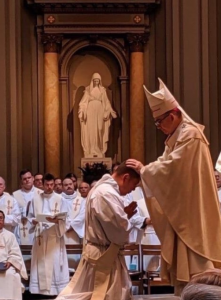
The photo captures the exact moment that Fr. Tyler Johnson was ordained a priest last Saturday at Saint James Cathedral. Many years ago, Fr. Tyler was a young student attending Saint Mary Parish in Centralia when I was the pastor there. He was quite, shy and reserved. He played the guitar a few times at the Saturday Vigil Mass. In the years after, he became the youth minister for all the parishes in Lewis County. It was then he discovered his gifts for pastoral ministry and his call to be a priest. Fr. Tyler was formed these past years at the North American College in Rome and I have watched him blossom into an outgoing, energetic, and faith-filled young man, with a focus and zeal for the Gospel. He is going to be an awesome priest! Saint Mary Parish has given the local Church at least four priests, two in the last ten years. Not bad! We too need to inspire the God-given vocations in our communities as well. If God inspires you to tell a young man that he might be a good priest, then by all means say so! If you see a young woman or man that may have the calling for religious life, then let them know. You may be the one to plant just the right seed of God’s call. That’s how Fr. Tyler was inspired to begin praying about his vocation. And now he begins his priestly ministry. Please pray for him and for all of us priests. We cannot live this life without your prayerful care and support.
The ordinations last week caused me to reflect on my 17 years of priestly life. I thought about how much I have changed since I first encountered a very young Fr. Tyler. I am not (happily so!) the same priest then that I am now. In the years since, I have experienced the fruit of significant healing, growth, formation, and transformation. God the Father indeed has been so good to me! These words of Fr. Robert Schwartz capture my thoughts well:
“The holiness and humanness of the priest is the deepest source of his authority. The person of the priest is the “substantial bread” of the Sacrament of Holy Orders. Personal development and the personal quest for God make the priest credible in the sight of the faithful.”
As I said above, we priests need you, the holy people of God, to help us in our healing and development, so that we may be “credible in the sight of the faithful.” In a Church short on credibility these days, it is all the more important. May we together advance the mission of the Lord Jesus in a spirit of mutual prayer, care, and support. And “let us keep our eyes fixed on Jesus, who inspires and perfects our faith.” Hebrews 12:2
Blessings for the week ahead!
Fr. David Mulholland
Dear Friends in Christ,
This Sunday we celebrate the Solemnity of the Body and Blood of the Lord, traditionally known as Corpus Christi. We acknowledge the gift of the Holy Eucharist in our lives, in our Church, and to the world. Jesus promised in the Gospel that He would be with us until the end of the world. Of course, He is spiritually close to each of us every day. But He is also physically close to us when ordinary bread and wine become His real Body and Blood in the celebration of the Mass. The sacrifice of the Mass truly is making the loving sacrifice of the cross present to us; so much so that the Lord Jesus desires to be really there, on the altar, and then to be consumed by us in Holy Communion, so that He may be one with us and we may be one with Him. That is the gift of the Eucharist; being one with the body of Christ, both the head and the members!
None of this would be possible without the altar. For it is at the altar that the sacrifice of the cross is represented, and the altar is the place where the Body and Blood of the Lord becomes the source and wellspring of our lived Catholic faith. Archbishop Sartain inspired me once when he said that no matter where he is, he always feels at home when he reverences the altar with a kiss at the beginning of Mass. I too have taken on that same wonder! Whether it’s the altar at Saint Patrick, or Holy Cross, or Saint Rita; or an altar in the woods or on a peak outside Cody, Wyoming (see above), every priest should feel at home in that place and at the time of the Mass. Every priest is ordained primarily to celebrate the sacraments, especially the Eucharist. We feel at home at every altar because it is there that the Lord has privileged us be His instruments in making Him presentin His Body and Blood. For it is from the altar that the Body and Blood of the Lord is received to renew God’slove for us and our love for Him. Archbishop Fulton Sheen once said: “The greatest love story of all time is contained in a tiny white Host.” Thanks be to God that we are part of that love story; renewed and refreshed by the Lord at every Mass!
Blessings,
Fr. David Mulholland
Dear Friends in Christ,
On June 7th, I along with many priests and people gathered at St. James Cathedral for the Rite of Reception of Archbishop Paul D. Etienne, who is our new Coadjutor Archbishop of Seattle. He will serve in that role until Archbishop Sartain retires later this year. Then, Archbishop Etienne (pronounced “Ay-chin”.. he uses the English version of the French pronunciation) will become our new Archbishop. It was a beautiful Mass and Archbishop Etienne preached an inspiring homily. He has a blog and a Twitter account, so you can read the entire homily there. But what follows are what I considered the highlights. Enjoy!
“Dear People of God of Seattle, men and women religious and seminarians. I am glad to be here, and onthis day, to become a member of this portion of the family of God with you.
My friends, Christ’s love for us calls us into relationship with him. Christ’s love for us leads us to our deepest realization of who we are as a cherished child of God….
Once we are convinced of the surpassing reality of Jesus’ love and the truth he brings, we cannot help butfall in love with him ourselves. This is the story of Peter and the apostles, of Paul and all who have followed Christ since the early Church. This love of Christ is what set the course of their lives.
Peter who was strong willed fisherman, and a bit brash; Paul who zealously persecuted the early Christians, both upon encountering Jesus knew they would follow and serve him the rest of their days.
My dear people, this is one of our highest priorities in the Church today – to help people encounter Christ – to know him on an intimate and personal level – to hear his Gospel – to come to discover inChrist God’s intimate, personal love – and to come to faith in Jesus Christ. Everything else follows thatcentral priority. Once people (as Sts. Peter & Paul) come to know God’s love in the person of Jesus –life turns. We call this conversion.
Please know as I begin my ministry among you – and as one of you – I pledge to love you to the best of my ability with the love of Jesus as a demonstration of my love for the Lord. Please pray for me, andknow of my prayers for all of you.”
Inspiring words for us to ponder! I’ll be away at our annual Priests Days conference at Ocean Shores this coming week, so please pray for me and my brother priests as we get to know our new Archbishop.
Blessings for the week ahead!
Fr. David Mulholland
As the funeral coordinator at Holy Cross Parish, I have the honor and pleasure of guiding people through the grief process of burying their loved ones. After working with patients and the terminally ill for a few decades I have learned that there is a life-giving secret about the dying and their loved ones, one I wish to share with you.
When people are at the end of life or facing life threatening circumstances and are asked what is most important to them, their response will always involve the people they love. Often when a person learns they have a terminal illness, it forces them to live in the present moment and redefine their lives. Typically, their most urgent desire is to ‘make things right’ with everyone and everything, in other words ‘to complete their relationships.’
‘Completion’ means mending a relationship that has been broken or disrupted in some way and that nothing is left unsaid or undone. It means Reconciliation. So often we hear stories of the dying and their loved ones claiming that their best time together was when their loved one was dying. That is because everyone is striving and struggling to be in ‘right relationship’ before their loved one goes to God and it takes love, courage, honesty, faith, humility and a heart that is wide open to get there.
Dr. Ira Byock, a leading physician in Palliative and Hospice care and is renowned for improving care and quality of life at the end of life. He gives us priceless information in his book titled The Four Things That Matter Most. In his twenty-five years of working intimately with terminally ill patients he has gained life giving insights to the spiritual healing of patients and their loved ones.
The Four Things are the phrases:
Please forgive me.
I forgive you.
Thank you.
I love you.
These words comprise a core wisdom about life that transform and heal like no other. And when the dying and their loved ones go through the process of applying these four powerful phrases with each person they love, it provides a path to emotional and spiritual healing, freedom and peace.
The sincere efforts to heal and transform love and relationships on the part of all involved is one of the most sacred works a person can ever do. And the beauty of its lessons is the call for all of us, sick or well, to strive to live in ‘right relationship’ with others every day of our lives. Byock urges us to apply the Four Things at any time. We do not have to be sick or dying to find them to be life changing and transforming.
They can become a way of life for everyone. St. Ignatius of Loyola, founder of the Jesuit Order, gave us a practice by which we can easily check-in with ourselves daily that is called the ‘Examen’.
The Examen invites us to reflect over our life at the end of each day and ask ourselves honest questions such as:
When was I most loving, forgiving and grateful today?
When was I least loving, forgiving and grateful today?
By going over our day every day, especially in prayer, we can immediately know when and where we acted in life-giving ways and where we failed. It allows us to see and ‘to make things right’ quickly and take right action. In asking ourselves ‘whom do I need to forgive or ask forgiveness from today,’ it allows us again to seek to ‘be in right relationship’ and not let resentments, anger, betrayals, prejudices and judgements build and fester. It does not mean that we are condoning transgressions but we are releasing oneself from its emotional pain. Jesus knew that forgiveness was what healed the spirit and was the only way out of spiritual exile. He made it crystal clear that transformation and freedom are found in an act of forgiveness, seventy times seven.
Also, by expressing your appreciation by saying “Thank You’ fulfills our own need to express gratitude and reinforces the recipients desire to know that she or he is appreciated.
And lastly, by saying ‘I Love You’ one reaffirms what the heart knows but yearns and needs to say and hear again and again.
When we yearn and strive to live in ‘right relationship’ with everyone and everything, we bless, heal and honor ourselves, our loved ones and the world around us. We acknowledge that we truly believe and trust in what Jesus teaches us and can become a light of Christ in this world that heals us in body, mind and spirit.
Wishing you peace and healing,
Paula Peluso Fiorino
Dear Friends in Christ,
As we celebrate the Ascension of the Lord this Sunday, we are reminded that this earth is not our home. Jesus returned to the Father to show us the way and to remind us that life with our Father in heaven is our eternal goal. Our true home is in heaven, with our God and Father who calls us His sons and daughters. The journey of our lives is but the way to our homeland of heaven. Life, from birth to death, and everything in between, is but a milestone on that journey. Each event and encounter prepares us for the ultimate encounter with our Lord, when we are called from this life.
There’s nothing like visiting a cemetery to bring that sentiment to concrete reality. In a few days, we commemorate the 75th anniversary of the D-Day landings in Normandy, France. The history of this event, which gave way to ultimate allied victory in Europe, cannot be understated. Yet, each individual soldier and sailor played a key role in that victory. And each one that gave their life in the battle, is equally significant and important. A few years ago, I visited the beaches of Normandy to take in all that happened there in 1944. But it was visiting the American Cemetery on the top of the hill that made the biggest impact on me. When you visit there and see thethousands of crosses and stars of David, you can’t help but be in awe. Something is different there. It is a sacred place; holy ground; a quiet place where you but dare to whisper when and if you speak. You immediately have the sense that these men who lay in their graves gave their all in sacrifice for the cause against a great evil. Good and evil did battle there on June 6, 1944. And thanks be to God that good prevailed; but at a high cost: that being the lives of the young men we sent to secure our freedom and liberty. When you visit Normandy, you have the feeling of thanksgiving for those who served and for their sacrifice. This coming Thursday, let’s offer a prayer for the dead to rest in peace and for peace to prevail wherever violence and war prevail. And may we never forget the price paid for freedom.
Blessings in the week ahead!
Fr. David Mulholland
Pastor
Dear Brothers and Sisters in Christ,
In the first reading from the Acts of the Apostles this Sunday, we see the calling and results of the first universal Church council: the Council of Jerusalem. Many of us are familiar with the Second Vatican Council from the early 1960’s, the fruit of which is still not fully received in 2019. The Council of Nicea gave us the creed. We look also to the Council of Trent, which was the Catholic response to the protestant reformation; it gave us liturgical renewal, a new catechism, reform of the clergy, and other fruits.
The question posed to the Council of Jerusalem was simple: In order to be a Christian, do you first need to become a Jew? As Paul and Barnabas were proclaiming the good news to the Gentiles, others, on their own, were telling the people that they first must follow the Mosaic practices, including circumcision, in order to be saved. Paul and Barnabas took this question to the Apostles, the elders, the bishops, and the “whole” Church, to receive counsel through the guidance of the Holy Spirit. The council received that knowledge and proceeded to write a letter (the first council document!) stating that no burden of the Mosaic practices would be imposed upon the Gentiles. It was short, simple, and to the point!
What are the important theological lessons for us today from this early council? Well, for one, Christians don’t first need to become Jews. But more importantly it tells us that our core identity is not found in religious or ethnic background. Our core identity is in Christ; that we are baptized into Christ and we are the Father’s beloved sons and daughters. Notice how I addressed you at the beginning of this letter as “brothers and sisters in Christ.” That my friends, is who we are. We are sons and daughters of a loving Father. That is our identity; nothing more and nothing less. Sadly, we live in a culture that has largely forgotten that. Society tells us our identity is defined by our gender, sexuality, ethnicity, race, hobbies, political or social ideology etc. But those things; those “labels” do not define us as human persons. As Christians, our identity and the fulfillment of that identity, rests in our relationship with God our Father. Our souls have been marked at our baptism. We are one with Him who created us and sustains us in His love. That is your dignity and your worth, and because of that you are priceless! Don’t let others define you or tell you what you are or should be in accord with the popular belief of the day.
As Saint Catherine of Siena once said, “Be who you were created to be and you will set the world ablaze.” It’s time we Catholics set the world on fire! Know who you are as disciples of the Lord Jesus and live that trutheach day!
Blessings,
Fr. David Mulholland
Fr. David Mulholland
Pastor
Dear Friends in Christ,
When I arrived back here in Tacoma last July, I told you that for over the past five years, I have had the privilege to work with the amazing people at the John Paul II Healing Center in Tallahassee, Florida. I have attended and served on many of the retreats and conferences for lay people and priests led by Dr. Bob Schuchts, his brother Bart Schuchts, and Sr. Miram James Heidland, SOLT. These conferences have not only been helpful to me personally, but I have seen first hand the tangible impact they have had to those who attend. In short, these retreats are transformative!
How are these retreats and conferences transformative? Well, Dr. Bob Schuchts has developed a teaching and prayer format that is based upon sacred scripture, the teachings and the Catechism of the Catholic Church, and the grace of the sacraments that enables us to open our hearts to the healing power of the Lord Jesus. This focused time away from the pressures of daily life, enables us to see ourselves (the root or core of our very being) as God sees us….the good, the bad, the ugly, and the beautiful. If we invite the Lord Jesus into these places of our lives, then His grace brings about transformation. Doubt, anxiety, fear, and discouragement melt away to faithfulness, confidence, affirmation, and freedom. This happens when we open ourselves up to the healing and joy that the Lord desires for EACH of us, His sons and daughters…no exceptions!
In my first week with you last year, I shared with you my top quotes, one of which comes from Pope Benedict XVI: “Healing is an essential dimension of the apostolic mission and of Christianity. When understood at a sufficiently deep level, this expresses the entire content of redemption.” My friends, the Lord Jesus desires our healing; He desires our wholeness and freedom; He came that we might have life and have it in abundance! Everything about our Catholic faith is about healing…yet we are often indifferent. Why not claim that which is ours?
This coming August 1, 2 and 3 we are blessed with the opportunity to have Dr. Bob, Bart, and Sr. Miriam present the Healing the Whole Person Retreat at Holy Cross Parish, with the added bonus of Bart presenting a workshop called a Day of Equipping, in which we open up ourselves more deeply to the love of our Heavenly Father. For the low cost of $100 (thanks to a donation from a parishioner reducing early registration from $135), you can attend the Thursday evening, Friday evening, and Saturday conferences, along with a workbook and journal that will be of use to you for years to come. I still use my first workbook from a 2014 retreat! The Day of Equipping fee is an additional $40.
You register online at JPIIHealingCenter.org and use the parish discount code of: HWPParishTacomaWA at check out to receive your parish discount. Reminder cards with more information are in the vestibules of all our churches. If you need financial assistance or have any questions, please email Kim Ward or call 253-383-2783. ext. 4108.
There is one catch: you do need to register now! The John Paul II Healing Center is a national ministry. So, people from all around the country, especially from our region, will be attending the retreat at Holy Cross Parish. So space will fill up fast. So please register today or this week. I asked Dr. Bob Schuchts and the team to come to my new parishes because I want you to know that I know; I want you to experience what I have experienced on this retreat! I want you to live in the freedom of your identity as a beloved son or daughter of the Father….and receive all that the Lord desires for you!
Many blessings,
Fr. David Mulholland
Fr. David Mulholland
Pastor
Dr. Bob Schuchts is the author of these three books: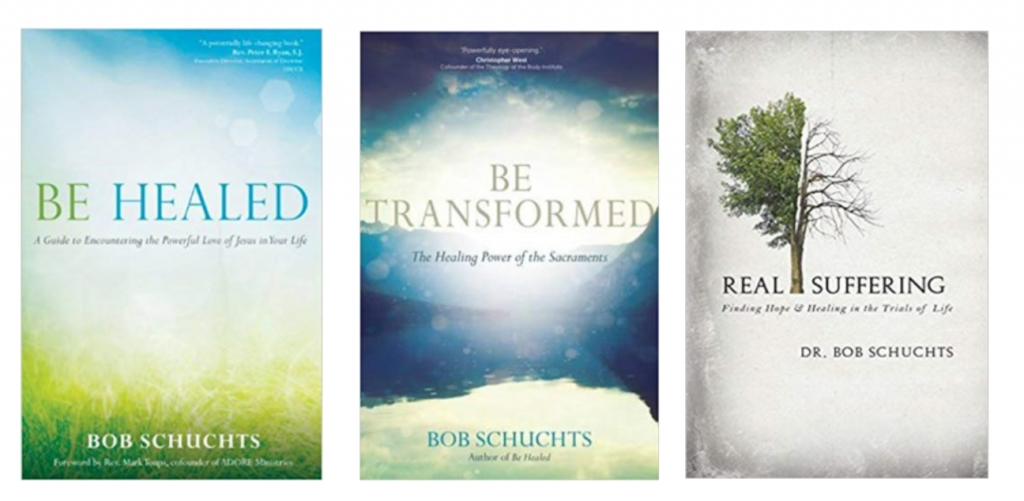
GUEST WRITER Allison Verhofstadt, Youth Ministry
Blessed 4th Sunday of Easter to all of you!
Fr. David has asked me to write the bulletin letter this week and to be quite honest I was a little apprehensive about doing so. After all, I thought, what could I possibly have to share with a whole congregation that would interest them? I am very confident talking to, and being in relationship with, middle and high school students but trying to reach an entire parish of “grown-ups” seemed like a daunting task. That’s when Our Lord gently reminded me that this isn’t about me at all. As always, within this job of youth ministry, it is first and foremost about the kids: their hearts, their stories, their souls. I could write an entire letter about the stats and details of our program, but instead, I want to share with you about what these kids have taught me and what I think they might be able to teach you as well.
When I tell people that I work in youth ministry, often a response is “oh I’m so glad somebody knows how to relate to kids these days!” I’ll admit that sometimes I even think of middle and high school students as being vastly different from me and my other adult leaders, and that we have to translate the faith differently when we speak to them in some fashion. Because, after all, they are children and we are adults. But what I have come to discover in working with these students is that all of their struggles, at the core, are my struggles too.
These kids have a fear of not “fitting in” and are worried that others might not love them for who they really are… well aren’t we all? These kids have a hard time being consistent with prayer and become restless or frustrated when they feel like their prayers aren’t being answered… well don’t we all? These kids want answers to their questions about God, faith, and the meaning of life that make sense to them…. well don’t we want those answers as well? The only real difference I see between my students and myself is that they have an openness to be changed. They are not only willing to ask the question but also to have the answer actually transform their lives. They are open to trying a new form of prayer and to hearing God’s voice in a different way. They give the Holy Spirit room to truly work in their hearts and minds. To me, that is a blessing.
I remember last fall on retreat, one of the 7th grade girls told me after spending time in adoration, “I didn’t know it was possible to truly feel God’s love, but looking at the monstrance I felt it!” What a gift to have such an open and vulnerable heart with Jesus that she was able to let Him enter in and touch her with His unending love. And what a beautiful reminder for us to do the same!
As much as youth ministry sounds like the kids are the ones constantly being tended to, the truth is they are ministering to us as much as we are to them. And truly, anyone in this parish who comes into contact with a teenager, whether it’s an altar server, or at Sunday Social Hour, or during the sign of peace, in that moment you are also a youth minister. In that moment you get to be the voice of that Good Shepherd, tending to the flock and making sure that young person feels as though they have a place in this church. The youth of this parish have truly drawn me closer to Christ and my hope and prayer is that they are able to do the same for you as we walk this journey of faith together side by side, sheep of the same fold.
May God bless you all and please keep myself and the youth in your prayers as you are in ours!
Allison Verhofstadt
GUEST WRITER Laura Dougherty, Pastoral Assistant for Liturgy, Funerals & Pastoral Care
When Father David asked me to write this week’s letter for the bulletin, I was caught off guard. It wasn’t writing the letter that got me as much as the subject. He wanted me to write about my experience as I recover from foot surgery.
I had mentioned to him that this recovery period was proving to be emotionally draining. I recalled a conversation we had during which Father commented that worry was not of God. I felt worried all the time in the weeks following surgery . . . worried about work, about the pain, about not healing correctly. But mostly, I worried about being a burden. For weeks I couldn’t do a thing for myself. I was completely dependent and quickly discovered that I’m not very good at it. Who knew! And I was embarrassed. After all, it was just foot surgery.
This worry and frustration led to some much needed introspection. Why do I find it so difficult to accept help? Is it ego, pride, the fear of seeming weak? Am I worried about inconveniencing others? I suppose it’s a combination of all that. Whatever it is, I can say, it is also not of God.
After all, God has blessed me with an abundance of blessings: supportive family, colleagues, volunteers and friends all waiting in the wings to ease my burden. All I had to do was accept. And it was in the accepting that I found peace. That is where God lives . . . in our relationships with each other. He wouldn’t have put us here amongst all these people if he wanted us to tackle life on our own. Life can be difficult: the loss of a loved one, an illness, an injury, an empty nest . . . The list is endless. But when we accept that shoulder to cry on, that meal train, a ride . . . we are accepting God’s love through our neighbor. That is of God.
Our Stephen Ministry is a great example of our parishioners in action caring for one another. They are here as one to one compassionate care givers prepared to walk with us during those difficult times. Our parishes of St. Patrick, St. Rita of Cascia and Holy Cross are blessed. We have not one, but three communities coming together to support each other as one. The resources of each individual parish are the resources of all, and aside from God, of course, our greatest resource is each other. Everyone needs a little assistance from time to time. We just need to humble ourselves and ask!
Happy Easter!
Laura Dougherty
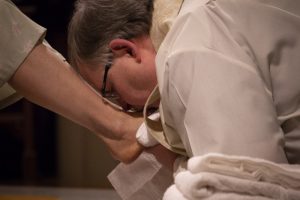
Dear Brothers and Sisters in Christ,
On this Divine Mercy Sunday, and throughout the Easter season, we give thanks to God for the gift of His Son, Jesus, who gave His life that we might have life. Christ has indeed risen from the dead and offers us a share in His risen life! The joy of Easter is best expressed in our personal and communal faith in the Risen Lord. We do this every Sunday when we profess the Nicene Creed after the homily. This “profession of faith,” from the year 381, truly expresses the fullness of our Catholic “universal” faith in God, the Church, and salvation.
During the Easter season, it has long been a tradition to recite an even older, but more basic ascent of faith: the Apostles Creed. This expression of faith is traced back to the very early Church. From Easter to Pentecost, we are reminded of the influence and practices of the Apostles and the earliest disciples. Along with the fact that readings from the Acts of the Apostles are proclaimed at Mass during the Easter season, it makes for a unique and appropriate use of the Apostles creed in our Sunday Celebration.
The Apostles Creed, used also in the praying of the Rosary, is as follows:
I believe in God, the Father Almighty, Creator of heaven and earth, and in Jesus Christ, His only Son, our Lord, who was conceived by the Holy Spirit, born of the Virgin Mary, suffered under Pontius Pilate, was crucified, died and was buried; He descended into hell; on the third day He rose again from the dead; He ascended into heaven, and is seated at the right hand of God the Father Almighty; from there He will come to judge the living and the dead. I believe in the Holy Spirit, the Holy Catholic Church, the communion of Saints, the forgiveness of sins, the resurrection of the body, and life everlasting.
To make our ascent of faith more intentional and less “rote” if you will, we will be reciting the Apostles Creed at Mass during the Easter season. We will return to the Nicene Creed in ordinary time. Beginning on this Second, Divine Mercy, Sunday, the celebrant at Mass will remind us to use our “Order of Mass” brochure or the Today’s Missal reference as we recite this most ancient expression of faith during Easter! If you pray the Rosary, this will be very familiar. But for all of us, it will be an opportunity to express our common, universal, Catholic faith in a very intentional and meaningful way!
Easter Blessings,
Fr. David Mulholland
HAPPY EASTER!
“We can say this about Easter: the entire creation and the entire action of the living God in all ages have as their goal the Resurrection of the Son. And the Resurrection of the Son has as its goal our share in His divine Son ship and our participation in the life of the Holy Trinity.”
— Abbot Jeremy Driscoll, Mount Angel Abbey, St. Benedict, Oregon
Brothers and Sisters in Christ,
When we say “Happy Easter” we say more than a greeting. When I do so, I take to heart the above words of my seminary teacher, Abbot Jeremy. Easter is the fulfillment of all human desire in that it promises our participation in the Lord’s resurrection to eternal life with God our father. That. Is. What. We. Celebrate. Today…..to use some social media emphasis!
On this Easter, take a moment to smell the fresh spring flowers; take a moment to show love to your family and friends; take a moment to thank the Lord Jesus for dying and rising just for you!
Happy Easter!
Fr. David Mulholland
Dear Brothers and Sisters in Christ,
As a priest, human nature and especially fallen human nature intrigue me. Have you ever had a conversation with someone where they state an opinion and perhaps even make a decision, only to completely reverse themselves later…whether that’s days, weeks or even months later? Have we done that ourselves? Now certainly there can be good and valid reasons for the change in position. Perhaps we learned more information and prudence suggested a different course. Many times, however, the change can be precipitated by fear, oppression, undue persuasion and even sin. Think of our current political, social and civil discourse. Look how it has dramatically changed over the past five, ten, and twenty years. Perhaps you can identify such changes in your own life and family.
On Palm Sunday, we see a very dramatic example of a huge change in opinion concerning faith and belief. At the very beginning of the Palm Sunday Mass, after the blessing of palms, we have Saint Luke’s Gospel of Jesus’ triumphant entry into Jerusalem. The people waved palm branches, placed their cloaks on the road as a royal carpet, and shouted in joy, “Blessed is the king who comes in the name of the Lord.” But a few days later, many of those same people would gather before their high priests and before Pontius Pilate, and not waive palms but shake their fists at Jesus and shout, “Crucify him, crucify him!” How can this be? Why such dramatic change in opinion, faith and belief?
We have a fallen human nature because the enemy of our human nature, as Saint Ignatius called the devil, is “prowling about seeking the ruin of souls.” 1 Peter 5:8 As the baptized faithful, we are in a daily spiritual battle. Often, the enemy tries, and is sometimes successful, in deceiving us. He uses fear, anxiety, lies and other techniques to draw us away from God and our good. Our inherent desire is for God. That is what prompted the crowds to cheer for Jesus. But the enemy suggested to them, “How can this be? Seriously? How can this man be the Son of God?” And they fell to the deception and soon enough, went from praising Jesus to condemning him.
My friends, the best way for us to remain faithful is to acknowledge that the spiritual battle is real. That sometimes it has a hold on us. That the enemy of our human nature can deceive us and cause our downfall. But that as the baptized, we have the power in the name of Jesus to rebuke the enemy’s presence and in Jesus’ name we can renounce the lies suggested to us. Then we have the clarity to open our hearts to God’s grace to give glory, laud and honor to the King! Holy week is upon us. This is the week we need to be especially on guard. The enemy hates this week because this is the week we commemorate his defeat by our Lord Jesus Christ. Stay strong and enter into the coming celebration of the Triduum and Easter with perseverance, joy, faith, hope, and love!
Many blessings,
Fr David Mulholland
Dear Brothers and Sisters in Christ,
Last Sunday, the Gospel at Mass was Jesus’ parable of the prodigal son. Of all the parables, it’s the one that can challenge us most, while at the same time holding profound meaning for us. This Sunday’s Gospel takes us to a real, actual event in Jesus’ ministry. Here, Jesus encounters the scribes and Pharisees, who are trying to trick him, along with a sinful woman who was caught in the act of adultery. Like the parable, this narrative is rich in meaning for us. But here I would like to focus on just one thing, and that is the unique posture of Jesus.
The narrative shows that Jesus bends down two times and straightens up two times. When he bends down, he mysteriously writes something on the ground. This has intrigued scripture scholars, theologians, and saints down through the ages.
A popular explanation is that Jesus wrote the names of the woman’s accusers, who were acting not in a righteous, lawfulway but in a self-righteous way that was aimed at accusing Jesus, rather than acknowledging him as Lord and Christ.
In other words, they had very bad motives against Jesus! The Prophet Jeremiah warned that those who forsake the Lord “shall be written in the earth.” Jeremiah 17:13.
But why does Jesus bend down and straighten up? Bending down illustrates that the opposite of prideful, self-righteousness is humble, righteousness. Humility, from the Latin humus, or ground, is a position that is lowly; literally close to the ground (humus). The adulterous woman is reduced to lowliness due to her prideful and sinful behavior of breaking the commandments. She has been humbled. Jesus meets her in that lowly place, and then straightens up and calls her to a place of real repentance and conversion. By doing so, he also shows the scribes and Pharisees that they must not stand in self-righteousness but must bend low in humility to be merciful to the sinner; especially when they themselves are not without sin.
Do you believe that Jesus meets you in the lowliness of your sin? In this fifth week of Lent, ponder how the Lord Jesus bends down to meet our humble lowliness and then calls us to stand up with him to new life? He tells us, “Repent and believe in the Gospel.” Mark 1:15 “Go, and from now on, do not sin anymore!” John 8:11
Blessings for the week ahead!
Fr David Mulholland
Dear Brothers and Sisters in Christ,
This is the time of fulfillment. The Kingdom of God is at hand. Repent and believe in the Gospel. – Mark 1:15
Our Lenten theme takes on new meaning as we now move from the third to the fourth week in Lent. Repenting and seeking conversion through faith and belief in the Gospel is a challenge. We implicitly know that repentance is a necessary thing in our life. Without it, we are left mired in our old ways of sin and dysfunction. And such a place leads us down a path toward spiritual and even physical death. “For the wages of sin is death,” says Saint Paul in the letter to the Romans. [B]ut the gift of God is eternal life in Christ Jesus our Lord.” Romans 6:23. You can see how easy it is to go from death to life, but to experience the reality of it is where the challenge lies. And often the challenge lies in our inability to accept and receive God’s renewing grace in our lives.
In today’s Gospel of the parable of the prodigal son, the Lord Jesus twice refers to the wayward son as being dead. The very last verse of the gospel says, “But now we must celebrate and rejoice, because your brother was dead and has come to life again; he was lost and has been found.” Luke 15:32. For the wayward son in the parable, the realization of his sinful state was the beginning of his repentance as he came to his senses. He then sought his father’s help to begin the road to renewal as he returned home. But notice that he didn’t seek or expect complete restoration; only to become a servant and a hired hand at his father’s house. Instead, the Father embraced his son and completed his process of conversion by restoring him to his true identity as a son and an heir. His father took him from his place of sin and death and restored him to life.
That very same thing happens when we make the decision to repent. Once we repent, then our Heavenly Father does all the rest! He embraces us with his loving mercy and if we open our hearts to receive it, He opens us to the conversion of our lives with His grace. And He showers down love upon us in lavish generosity, beyond our imagining! This is what it means to go from death to life. Too often, though, we feel the work of conversion is our own work; our own will power and discipline. It is, rather, the work of God; the work of His love and mercy in our souls that brings about the change. When we realize that God’s grace is the operative factor, we can move beyond our own horizon and openly receive all that the Lord desires to give us for new life, healing, renewal, and restoration.
Friends, there’s a little prodigal son in each of us. Let’s take to heart the many lessons of this parable in the week ahead and allow the Lord to touch our hearts. Allow the Lord Jesus to have his way and bring you from death to life!
God bless,
Fr David Mulholland
Dear Brothers and Sisters in Christ,
This is the time of fulfillment. The Kingdom of God is at hand. Repent and believe in the Gospel! – Mark 1:15
Our Lenten theme of repentance and conversion of life is highlighted in this third week of Lent. Our Gospel reading equates our lives once again to that of a fig tree. Does our tree bear good, choice fruit or is it barren and dead? So too, our lives. Are they fruitful and life giving or are they dead and mired in sin?
This coming Thursday evening is our Lenten Reconciliation Service at Saint Patrick Parish, with a number of priests available to hear your confessions. It’s in this sacrament of God’s mercy that we encounter the person of Jesus, who receives our act of repentance as we confess our sins, so that we might open up our lives to the gifts of healing that are given by God in the Sacrament of Reconciliation. What are these gifts? The first gift is God’s forgiveness of our sins. The second gift is the grace God freely gives to us so that we may amend our lives and be healed.
Most people readily accept the first gift of forgiveness. That’s what we all want, right? That’s why we come to confession in the first place. We want our sins taken away so that we can be restored in our relationship with God and each other.
Most people, however, do not readily accept the second gift of God’s grace. It’s freely given, but like any gift, it must be accepted and used by the recipient. What is grace? Grace is a participation in the life of God. (Catechism of the Catholic Church, CCC #1997). Simply put, grace is God’s life and power that is made available to help us and heal us of all the underlying roots and sources that generate the sins we bring to confession. But grace is more than just a help given by God; it’s actually a new kind of life that is made available to us – God’s eternal life, poured into our soul to heal it of sin and to sanctify it.” CCC 1999; see also 7 Secrets of Confession by Vinny Flynn, Chapter 2, pg.27.
In the Sacrament of Reconciliation, God’s forgiveness of our sins initiates the process of healing in our lives. When His grace, given in the sacrament, is accepted by into our lives, God is at our side to heal us of the causes of our sins. The reason why so many of us repeat the same sins is that we haven’t really used the grace given to us in this sacrament to bring about change and amendment of life. Once we do, however, you will see that God cannot be outdone in His generosity to heal, transform, and renew our lives.
Friends, use this season of Lent to bring the tree of your life to the Sacrament of Reconciliation. Repent, confess your sins, and be forgiven. Then, with God’s abundant grace, get to the heart of the matter and allow the Lord Jesus to bring you healing and renewal. You will bear much good fruit and will give glory to God’s great love and mercy!
God bless,
Fr David Mulholland
Dear Brothers and Sisters in Christ,
Our Responsorial Psalm for this Second Sunday of Lent is my favorite Psalm. Psalm 27 reads in part:
“The Lord is my light and my salvation; whom shall I fear? The Lord is my life’s refuge; of whom should I be afraid?”
It’s a wonderful Psalm to have as we consider Saint Luke’s narrative of the Lord’s transfiguration on Mount Tabor. On that day, the Lord Jesus was arrayed in light; his face and clothing became dazzling white. The Lord appeared to Peter, James and John, in the fullness of his light and glory as he was preparing them to witness the darkest days of his passion: his arrest, trial, torture, suffering, and death on the cross. In the darkest of those days that would lie ahead, it is then that they needed the reminder of the light and glory of their master who was the Christ; the anointed savior of the world!
We too need to be reminded that the Lord is our light and salvation. When the dark days come upon us and try to convince us that we are nothing in the eyes of God, we are called to remember that the Lord Jesus is arrayed in dazzling light. He is the light of the world that dispels whatever darkness might be about us!
This coming Thursday, I will be at St. Joseph Parish in Chehalis giving the homily at the funeral of one of our senior priests, Fr. John McLaughlin. He was the retired pastor there and he helped out on a weekly basis. It was great to serve with him. Fr. John served as a simple, humble priest for over 58 years. Please pray for the repose of his soul and for the well being of his very large family who will miss his smile and joyful presence!
God bless,
Fr David Mulholland
Dear Brothers and Sisters in Christ,
This is the time of fulfillment. The kingdom of God is at hand. Repent, and believe in the Gospel.
On this First Sunday of Lent, the Church gives us Saint Luke’s narrative of the Lord’s temptation in the desert for the period of forty days. Hence, our season of Lent is forty days as well. The gospel says, “When the devil had finished every temptation, he departed from him for a time.” Luke 4:33. In Saint Mark’s version of this event, he added “and the angels ministered to him.” Mark 1:13
James Tissot’s painting of the forty days in the desert is dramatic. It shows the Lord Jesus lying on the ground in the dark desert, illuminated by the presence of the ministering angels. The angels bring the light of the Father’s presence to Jesus when He needs it the most. This scene shows us something very important for our own lives as well. That no matter how dark it might get in any situation, God our Father will bathe us in His light. We are never alone and therefore, we should never despair.
The season of Lent can be an amazing time of spiritual growth and renewal. It can also be a season of challenge and temptation. As the Lord was tempted in the desert, so we are tempted by the devil as well. The devil, the enemy of our human nature, as Saint Ignatius of Loyola calls him, is the father of lies. He doubles down on us in the season of Lent to thwart our growth in faith and holiness; to lie to us about our identity as sons and daughters of God and he tempts us bysaying that our desire to repent and believe in the gospel is a waste of time. “Give up,” the enemy says!
But as disciples of the Lord Jesus, we know better. The same angels that ministered to Jesus in His time of temptation minister to us as well. There is no need to fear or despair. And Jesus is always at our side to remind us of who we are andthat the enemy’s lies are baseless and pointless. Psalm 91 reminds us to make this simple prayer: “Be with me Lord, when I am in trouble.”
May the Lord bless this season of Lent with His presence and His light!
Fr David Mulholland
When Moses came down from Mount Sinai with the Ten Commandments of the Lord God, he found that the people had already left the faith! They were worshiping a grass eating beast and made a graven image of one to dance around it. Moses smashed the tablets at the base of the mountain and rebuked the peoples’ idolatry. That event, as recorded in the Hebrew scriptures, is one of many examples of the fickleness of faith of the chosen people. Faith and unfaithfulness are the story of the chosen people…..and of each of us as well.
The coming season of Lent is our annual check-up for our spiritual life. We take time to examine our lives to see where we have sinned; where we have been faithful or unfaithful. Then, hopefully, we are convicted by our conscience so as to repent and be converted as faithful disciples of the Lord Jesus.
To help us in that check—up, it’s important to know what the minimal standards are for being a Catholic in the world, aside from the basic avoidance of sinful behavior. We can’t examine our faithfulness if we are unaware of or ignore the basic standards of what it means to be a Christian. These standards have traditionally been called the “precepts of the Church” and they are found in the Catechism of the Catholic Church. Even more informally, they are known as the five (or seven) precepts. The catechism actually lists five precepts. The last two are included elsewhere in the catechism but are not generally listed alongside the first five. However, they are as equally important as the other five! And, if I were pope, I would add yet one more (wait until the end of the letter!). Here are the basic seven:
I. To attend Mass on Sundays and Holy Days of Obligation, and resting from servile works.
II. To observe the days of abstinence and fasting.
III. To confess our sins to a priest, at least once a year.
IV. To receive Our Lord Jesus Christ in the Holy Eucharist at least once a year during Easter Season.
V. To contribute to the support of the Church.
VI. To obey the laws of the Church concerning Matrimony.
VII. To participate in the Church’s mission of Evangelization of Souls.
This is what the Catechism has to say:
2041 The precepts of the Church are set in the context of a moral life bound to and nourished by liturgical life. The obligatory character of these positive laws decreed by the pastoral authorities is meant to guarantee to the faithful the very necessary minimum in the spirit of prayer and moral effort, in the growth in love of God and neighbor:
2042 The first precept (“You shall attend Mass on Sundays and holy days of obligation and rest from servile labor”) requires the faithful to sanctify the day commemorating the Resurrection of the Lord as well as the principal liturgical feasts honoring the mysteries of the Lord, the Blessed Virgin Mary, and the saints; in the first place, by participating in the Eucharistic celebration, in which the Christian community is gathered, and by resting from those works and activities which could impede such a sanctification of these days.
The second precept (“You shall confess your sins at least once a year”) ensures preparation for the Eucharist by the reception of the sacrament of reconciliation, which continues Baptism’s work of conversion and forgiveness.
The third precept (“You shall receive the sacrament of the Eucharist at least during the Easter season”) guarantees as a minimum the reception of the Lord’s Body and Blood in connection with the Paschal feasts, the origin and center of the Christian liturgy.
2043 The fourth precept (“You shall observe the days of fasting and abstinence established by the Church”) ensures for the times of penance which prepare us for the liturgical feasts and help us acquire mastery over our instincts and freedom of heart.
The fifth precept (“You shall help to provide for the needs of the Church”) means that the faithful are obliged to assist with the material needs of the Church, each according to his own ability.
The sixth precept (on marriage in the Church) and the seventh precept (on being a missionary people), round out what it means to live our faith in Christ in a visible and faithful way. And as I said above, I would also add one more precept that is the key to living all the previous seven. That would be the obligation for every Catholic to pray. Friends, we need to be people who engaged in daily prayer for ourselves, our families, our Church, our nation, and our world. Prayer is an ongoing conversation and friendship with our Father, through the Lord Jesus, in the power of the Holy Spirit. Frankly, if you don’t pray, you have no hope of living these precepts…. they will simply be a list of things to check off or never to fulfill. As the season of Lent begins, I encourage you to enter into daily prayer that is a true dialogue and conversation with God our Father; and one that is heavy on listening rather than talking! For it is through prayer that we are open to receive all the good things God desires to give us.
Blessings to you all as we ready ourselves to go deeper in this season of Lent.
For this is the time of fulfillment. The kingdom of God is at hand. Repent and believe in the Gospel. ~Mark 1:15
Fr David Mulholland
Dear Friends in Christ,
In this Sunday’s Gospel, the Lord Jesus presents a forceful and demanding teaching. He lays out a way of life for the disciple that is not one for the faint of heart. It’s true, the Christian way is a way that leads to joy and eternal happiness. But it’s also a way that demands love, sacrifice, forgiveness, and generosity. And there are consequences for our failure to be faithful. It comes down to our understanding of who the Lord Jesus is and the depth of our relationship with Him. These words of Pope Benedict XVI make this point very clear:
“Today in broad circles, even among believers, an image has prevailed of a Jesus who demands nothing, never scolds, who accepts everyone and everything, who no longer does anything but affirm us: the perfect opposite of the Church, to the extent that she still dares to make demands and regulations… The Jesus of the Gospels is quite different, demanding, bold. The Jesus who makes everything okay for everyone is a phantom, a dream, not a real figure. The Jesus of the Gospels is certainly not convenient for us. But it is precisely in this way that he answers the deepest question of our existence, which – whether we want to or not – keeps us on the lookout for God, for a gratification that is limitless, for the infinite. We must again set out on the way to this real Jesus.” – Pope Benedict XVI, On the Way to Jesus Christ, 2004
My friends, as disciples of the Lord Jesus, let’s make sure we are faithful to and following the real Jesus. Not the “Jesus” of the culture or of our own making. But the Jesus who is crucified and risen; the Jesus proclaimed by the Gospels and revealed by the Church. It is the real Jesus that leads us to life and to the loving embrace of the Father!
God bless,
Fr David Mulholland
Dear Friends in Christ,
With the recent snow days, I had the opportunity to go through a number of boxes from my move last July. I found a few boxes with photo albums and came across the one marked “69-70.” In it, I discovered some pictures of the big snow we had in January of 1969. It doesn’t seem like 50 years ago but it was! And we had some big snows back then. The photo above is the front of our house. Off to the right, out of view, is where I along with some neighbor kids built a massive snow fort. It was impressive and it lasted a very long time after the melt! I still remember how fun that time was.
It’s been a long time since we have had snow like we had this past week. The series of storms caused us to cancel our plans and reschedule just about every aspect of our lives. We were forced to let go of our control and literally let nature have its way for several days. Hopefully we had some fun, despite the inconvenience. Still, these interruptions to our normal lives can give us cause to evaluate our spiritual lives as well. How much are we controlled by our plans and routines? What happens when things beyond our control change and/or challenge our lives? Do we trust in the Lord in such times or do we get angry and despair in the situation? For me, the snow days remind me that neither I nor my plans matter that much. The Lord of all creation (even of snow storms!) has a plan and a timetable that is infinitely more profound and for my own good than I even know. The key is to surrender to what the Lord is doing in the present moment, rain or shine; snow or not, and be open to the grace that is given to us in such times. When we live this way, life has much more meaning. Being open to God’s plans helps us to appreciate the beauty and goodness of everything that comes our way, including the weather. As the Prophet Jeremiah reminds us this Sunday, “Blessed is the one who trusts in the Lord, whose hope is the Lord.”
Blessings for the coming week.
Fr David Mulholland
Dear Friends in Christ,
The above is a painting of this Sunday’s Gospel by the late 1800’s French painter James Tissot. All of Tissot’s religious art has a bright and dramatic flair to it. Many people are drawn to the disciples dealing with the large catch of fish. This is often what people focus on when this Gospel from Saint Luke is proclaimed: “they caught a great number of fish and their nets were tearing!” But my attention is drawn to Saint Peter, bowing at the feet of Jesus. Peter is the one who begins by saying it’s impossible to catch fish out in the deep: “we have worked hard all night and have caught nothing…” But when the fish start piling up, Peter has a change of heart. He recognizes that Jesus is Lord and it is the Lord’s grace and power that has resulted in the large catch of fish. “Depart from me, Lord, for I am a sinful man.” The key to this narrative is that Jesus’ lordship over all creation is demonstrated to the disciples that day. And with the Lord Jesus at our side, nothing is impossible or out of reach.
This is an important lesson for us all. We so easily view events and situations in our lives as being impossible. And with that view, we limit the outcomes by that impossibility. But with Jesus the Lord as a part of our lives, there really are no limits. Even the impossible; even the trial and the challenge that is a normal part of our lives, can bring grace and goodness to us. Never give up or give in with the Lord Jesus!
I want to express my gratitude and thanks for your prayers and support these past weeks. My aunt Margaret, a parishioner at St. Rita, suffered a severe stroke a couple of weeks ago and did not recover. Her funeral was this past Tuesday. The sudden onset of the stroke and the dying process was best described as “difficult and beautiful” all at the same time. Your prayers and understanding are appreciated. I am behind at returning calls and emails, but will get to it all soon. God is good!
Blessings,
Fr David Mulholland
GUEST WRITER, BISHOP ROBERT BARRON
The Scapegoat, the Internet and Satan’s Game
By now the entire country has seen a video of a supposedly racist confrontation, in front of the Lincoln Memorial, between a grinning young high school student and a Native American elder, chanting and beating a drum. The immediate and ferocious judgment of the internet community was that the boy was effectively taunting and belittling the elder, but subsequent videos from wider angles as well as the young man’s own testimony have cast considerable doubt on this original assessment. My purpose in this article is not to adjudicate the situation, which remains, at best, ambiguous, even in regard to the basic facts. It is to comment, rather, on the morally outrageous and deeply troubling nature of the response to this occurrence, one that I would characterize as, quite literally, Satanic.
When the video in question first came to my attention, it already had millions of views on Facebook and had been commented upon over 50,000 times. Eager to find out what this was all about, I began to scroll through the comments. They were practically one hundred percent against the young man, and they were marked, as is customary on social media, by stinging cruelty. As I continued to survey the reactions, I began to come across dozens urging retribution against the boy, and then dozens more that provided the addresses and email contacts of his parents, his school, and his diocese. I remember thinking, “Oh my goodness, do they realize what they’re doing? They’re effectively destroying, even threatening, this kid’s life.”
At this point, my mind turned, as it often does today, to René Girard. The great Franco-American philosopher and social commentator is best known for his speculations on what he called the scapegoating mechanism. Sadly, Girard maintained, most human communities, from the coffee klatch to the nation state, are predicated upon this dysfunctional and deeply destructive instinct. Roughly speaking, it unfolds as follows. When tensions arise in a group (as they inevitably do), people commence to cast about for a scapegoat, for someone or some group to blame. Deeply attractive, even addictive, the scapegoating move rapidly attracts a crowd, which in short
order becomes a mob. In their common hatred of the victim, the blamers feel an ersatz sense of togetherness. Filled with the excitement born of self-righteousness, the mob then endeavors to isolate and finally eliminate the scapegoat, convinced that this will restore order to their roiled society.
Girard’s theory was grounded in his studies of Shakespeare, Dostoevsky, and other literary figures, but his profoundest influence was the Bible, which not only identified the problem, but showed the way forward. Take a good, long look at the story of the Woman Caught in Adultery in the eighth chapter of John’s Gospel to see what Girard saw regarding both the sin and the solution. It is surely telling that one of the principal names for the devil in the New Testament is ho Satanas, which carries the sense of the accuser. How significant, thought Girard, that it is precisely ho Satanas who offers all of the kingdoms of the world to Jesus, implying that all forms of human community are tainted, at least to a large degree, by the characteristically Satanic game of accusation, blaming, scapegoating.
All of which brings me back to the incident in Washington and the nasty reaction to it on the internet. I have used the internet to great positive effect in my evangelical work for many years; so I certainly don’t agree with those who denounce it in an unnuanced way. However, there is something about social media comboxes that make them a particularly pernicious breeding-ground for Girardian victimizing. Perhaps it’s the anonymity, or the ease with which comments can be made and published, or the prospect of finding a large audience with little effort—but these forums are, increasingly, fever swamps in which hatred and accusation breed. When looking for evidence of the Satanic in our culture, don’t waste your time on special effects made popular by all of the exorcism movies. Look no further than your computer and the twisted “communities” that it makes possible and the victims that it regularly casts out.
A few weeks ago, the Wall Street Journal published a piece on me and my work. The author referred to me as “the Bishop of the Internet,” a title which I find more than a little strange. But for the moment, I’m going to claim it, only so I can make a pastoral pronouncement to all those who use social media. When you’re about to make a comment, ask yourself a very simple question: “Am I doing this out of love, out of a sincere wish for the good of the person or persons I’m addressing?” If not, shut up. If it becomes clear that your comment is simply spleen-venting, scapegoating, or virtue-signaling, shut up. The internet can be a marvelous tool, and it can be a weapon used for Satanic purposes. Applying the test of love can very effectively undermine the scapegoating mechanism and drive the devil out.
Dear Brothers and Sisters in Christ,
“Today this Scripture passage is fulfilled in your hearing.”
When Jesus returned to his hometown of Nazareth, he went to the synagogue on the Sabbath day. He was handed the scroll of the Prophet Isaiah containing the prophesy of the Lord who will come among the people as the anointed savior. This passage, he then tells the people, is “fulfilled in your hearing.”
When you take a moment to think about it, that is a most amazing moment! In fact, it is a very dramatic scene indeed. Last summer, I visited Temple Beth El on 12th Street and had the opportunity to view the scrolls of sacred scripture that are proclaimed in the synagogue. We are so accustomed to the Holy Bible, with all the books laid out in chapter and verse. But in the Hebrew tradition, the sacred scriptures are contained on a single “sheet” of paper that is rolled onto a scroll. During the Sabbath services, the scrolls are taken out and unrolled in the center of the assembly and the Word of God is proclaimed. It presently looks very similar to what it did in the time of Jesus.
When Jesus read from the scroll of Isaiah that day, just as today when the scripture is proclaimed at Mass, the living Word of God becomes a reality in our midst. Jesus is saying that He, the Lord and Savior, is the anointed one of the Father, and right now, He is bringing glad tidings; He is proclaiming liberty; He is healing the sick; and He is giving freedom to the oppressed. Truly, this is an acceptable time unto the Lord; truly a jubilee year! All of this, He says, is fulfilled right now and for you, in your hearing!
Friends, always remember that the Word of God is a living reality in our midst. The scriptures are not a history of the past but the living presence of God in our own time. And always remember that the Word of God is not a letter or a phrase in the Bible but the person of Jesus Christ, who is Lord and Savior. When you study the scriptures on your own or hear them proclaimed at Mass, God is present in your midst!
Blessings for the week ahead.
Fr. David Mulholland
Dear Brothers and Sisters in Christ,
The above image depicts the Lord Jesus with his right hand raised in blessing. Often times Jesus is portrayed in this way. This form of blessing also exists in the Church today, when you see the priest bless with his right hand at the conclusion of Mass. So does a deacon when he celebrates a sacrament. Today, we consider the miracle of the wedding feast of Cana. The wine runs out but Jesus blesses the jars of water and their substance turns from ordinary water to good, choice wine. The picture on the cover of the Janaury 20, 2018 Bulletin shows Jesus’ hand extended over the jars of water. I feel that’s exactly how it happened. In many ways, this early miracle foreshadows greater miracles of Jesus, and even the greatest of all, when ordinary bread and wine become His body, blood, soul, and divinity in the Holy Eucharist. And it all begins in Jesus’ blessing. That is certainly true in the liturgical sense. But words of blessing outside of the liturgy are powerful as well, for there is power in the words of blessing. Words of blessing change things, for the better. Words of curse change things too; but for the worse. As the baptized, the Lord Jesus’ power lives within us when we call His blessing down upon ourselves and upon our families. He never disappoints or fails to impart His grace. I encourage you to practice the great art of blessing. Especially within your families. Great things are in store for you if you do!
Last week’s pastor letter was entitled 1+1+1=? Several people came up to me and successfully completed this math problem. The answer truly is 1+1+1=1. “There is one body and one Spirit just as you were called to the one hope that belongs to your call, one Lord, one faith, one baptism, one God and Father of all, who is over all and through all and in all.” (Ephesians 4:5-6). The first mark of the Church is that we are “one” in addition to being holy, catholic and apostolic. A challenge is to live this reality first and foremost, over and above any other parish allegiance, identity, or ministry that may be near and dear to our heart. As one person stated very clearly to me: “We need to stop being Saint Rita Catholics or Saint Patrick Catholics and just be Catholics.” Living that truth within our unique parish communities will make our endeavors to be missionary disciples truly effective and grace filled!
Blessings for the week ahead.
Fr. David Mulholland
1 +1 + 1 = ?
Dear Brothers and Sisters in Christ,
Do I have your attention? No picture this week. Sorry. But I wanted to capture your attention to share with you some of my reflections having completed the first six months of my new assignment as your pastor. I thought it would be a good way to begin 2019 by looking back a bit before moving forward and asking what do three Tacoma parishes add up to?
While looking back on the last six months, I am filled with gratitude and thanksgiving for my assignment as your pastor! It was a joy for me to be asked by the Archbishop to return to my hometown. I have enjoyed reconnecting with many people from my years growing up here, as well as those I met during my first year as a priest at St. Charles. And I have thoroughly enjoyed meeting so many new people in our parish communities as well. What impresses me the most is your faithfulness and openness. I have been welcomed warmly and made to feel right at home from the beginning. I am so thankful that I can lift you all up in prayer each day in the celebration of Mass and the sacraments. It has been an honor to walk with so many of you during the happy times of celebration, baptisms, and weddings, as well as during times of sorrow and challenge in sickness and death. The power of the Lord Jesus’ grace has been evident to me in many powerful ways.
I am also blessed to be able to work with amazing staff at all our parishes and school. I’m impressed by the quality of those who serve and the dedication that they have to the mission of the Church here in Tacoma. Our staff truly desires our Catholic community to flourish! In addition, I am so impressed with all the volunteers who serve in our many ministries and apostolates. This shows that we really do practice good stewardship of time, talent and treasure. We should all give thanks to God for these and the many other ways He has blessed our community.
Now, to look ahead a bit. When the Archbishop informed me of my change in assignment to not just one parish and a school, but to another parish too, and also to another parish (i.e. 1+1+1), I have to say it sounded a bit familiar to when I was assigned to the six parishes in Lewis County back in 2006. I was apprehensive to say the least, then and now. But the Archbishop was clear in his vision to have our three parishes and school come together to collaborate as Catholics in north and central Tacoma. And while some of that vision is necessitated by the lack of pastors and priest support in Western Washington, it’s also driven by the need for us to get out of our familiar parish identities so as to better witness the Gospel message to a world that is in much need of Jesus’ salvation. In other words, the Archbishop is challenging us to come out of our comfort zones to reach out more as a Catholic people to those around us in this place we call the City of Destiny.
So, how do we do that? A lot has been written in recent years about the nature of parish ministry in the years ahead. A common theme is the necessity to go from “maintenance to mission.”
Over the past 100 years or so, Catholics have spent a lot of time, money, and energy in building up the Church in terms of parishes, schools, hospitals and other structures and ministries in particular places. And a lot of time, money and energy goes to maintain it all, whether it is needed today or not. Times change, as do people. The Church, however, is often slow to respond. That’s not all bad. It’s important for us to pray, reflect and discern what the Lord desires at all times. And that takes some time. So, quick action is not always necessary or wise. What is necessary is to be open to the Lord’s guidance. Remember, it’s His will that must be accomplished and not ours.
So, moving ahead, it’s important that I, as your pastor, and all of us together, engage in good prayer and discernment of how our parishes and school can move forward and adapt to the changing circumstances around us. Our communities have faced significant challenges and changes in the past ten years. But as we consider the challenges facing us today and in the future, we need to more intentionally seek the Lord’s guidance and protection. I feel that the Church, from top to bottom, fails to adequately discern the Lord’s will. Too often, we tend to go our own way on things. This is neither wise or helpful to the mission of the Church. So, pray!
We must also begin to let go of expectations and preconceived notions of what our parish communities should be, based on what they once were. Too often we get bogged down in the “maintenance” of programs and events that do little to give life to the community now, or fail to advance the mission of how we can reach people in need of the message that Jesus is their savior! Traditions are good only insofar as they help us all come together to advance the mission. We cannot let tradition, or “how we have always done things,” hold us back. Hence, the need to go from “maintenance to mission” in all things! We need to be open to how the Spirit is challenging us and prompting us to look at things in a new and different way; allowing our unique parish communities to thrive in new ways into the future. So, be open to the promptings of the Spirit!
One final thought from me personally. Although I was assigned as the pastor of three parishes and a school here in Tacoma last July, I have come to see the reality that it’s impossible to be the full time pastor at any one place. That’s a difficult challenge that I am reminded of each day. When I was in Lewis county, years ago, it actually made life and ministry difficult and somewhat depressing as I was constantly reminded of my inadequacy. When Archbishop assigned me here, I knew that I did not want to repeat that experience. So, I have changed my perspective. While I am not the full time pastor at any one parish, I am your full time pastor! I am fully here for you and ask that you be here for me and for others as well. Each day I am reminded of the Archbishop’s vision that we are all called to be a unified Catholic people in north and central Tacoma. We must more and more transcend the familiar parish culture we are used to for the betterment of our community as a whole. That’s a challenge; a new way of thinking. But I think it’s a challenge we are all up for. I ask for your prayers for me and for our Tacoma Catholic community in 2019 and beyond.
In Christ the Lord,
Fr. David Mulholland
Dear Friends in Christ,
The focus on the Feast of the Epiphany is often on the mysterious Magi who offer unique and strange gifts to the child Jesus. But of great importance are the gifts themselves. The word Epiphany means manifestation. What is being manifested is the identity of who Jesus is: the Christ of God. The gifts brought to the child symbolize his identity. The offering of gold, a royal metal, manifests Christ’s identity as king. The offering of frankincense, a symbol of prayer rising up to God, manifests Christ’s identity as High Priest and mediator between God and man. Finally, the offering of myrrh, a burial ointment, manifests Christ’s identity as savior, who freely dies for the salvation of the world.
The Feast of the Epiphany is not meant to highlight just one single event. As the Magi manifest the Lord’s identity as Son of God, King, Priest, and Savior, the scriptures contain many examples of how the identity of Jesus is manifested. The baptism of the Lord is one example where Jesus is manifested as the Father’s beloved Son. The wedding feast at Cana, the Transfiguration on Mount Tabor, Peter’s confession of faith and many other events serve as epiphanies or manifestations of who Jesus is as our Lord and Savior. As we contemplate these events in the Bible, they serve as signposts along the way of our spiritual journey as we come to know and love the Lord in a deeper and more profound way. Let us be thankful that God has revealed Jesus to us in these rich and beautiful ways.
Blessings to you for the week ahead. And a very happy New Year to all!
Fr. David Mulholland
2018
December 25, 2018
For today in the City of David, a savior has been born for you who is Christ and Lord!— Saint Luke’s Gospel
Dear Brothers and Sisters in Christ,
A joyous and happy Christmas to you all!
On Christmas and during the coming Christmas season, we pause to reflect on the great gift the Father has given to us . . . a savior in His Son and our Lord, Jesus Christ. We give thanks for the gift of Jesus and the gift of salvation; we thank the Father for a savior. And friends, do we need a savior! As we look at our world and our own individual lives, we certainly are in need of the transformation and healing that only the Lord Jesus can give. Jesus in the answer to our joys and sorrows; our challenges and our blessings. So let’s be prepared to receive all that the Father desires to give us this Christmas in the person of his Son . . . our savior!
On behalf of our parishes of Holy Cross, Saint Patrick, Saint Rita and our school community at Saint Patrick, I want to especially welcome family and friends who are visiting at Christmas! We are happy to have you join us as we worship and praise God for His great gifts at the celebration of our Christmas Masses! You are always welcome in our communities.
May God bless you this Christmas and in the coming New Year! May His peace and love reign in your hearts, now and forever!
In Christ the Lord,
Fr. David Mulholland
& our parish and school staff
December 25, 2018
For today in the City of David, a savior has been born for you who is Christ and Lord!— Saint Luke’s Gospel
Dear Brothers and Sisters in Christ,
A joyous and happy Christmas to you all!
On Christmas and during the coming Christmas season, we pause to reflect on the great gift the Father has given to us . . . a savior in His Son and our Lord, Jesus Christ. We give thanks for the gift of Jesus and the gift of salvation; we thank the Father for a savior. And friends, do we need a savior! As we look at our world and our own individual lives, we certainly are in need of the transformation and healing that only the Lord Jesus can give. Jesus in the answer to our joys and sorrows; our challenges and our blessings. So let’s be prepared to receive all that the Father desires to give us this Christmas in the person of his Son . . . our savior!
On behalf of our parishes of Holy Cross, Saint Patrick, Saint Rita and our school community at Saint Patrick, I want to especially welcome family and friends who are visiting at Christmas! We are happy to have you join us as we worship and praise God for His great gifts at the celebration of our Christmas Masses! You are always welcome in our communities.
May God bless you this Christmas and in the coming New Year! May His peace and love reign in your hearts, now and forever!
In Christ the Lord,
Fr. David Mulholland
& our parish and school staff
December 14, 2018
Dear Friends in Christ,
There is a great mystery to the preaching of the homily at Mass. Often times, I will deliver a homily that I don’t think is really that great, and inevitably someone will come up to me and thank me for my words, because “they were just what I needed to hear!” I’m generally left speechless. When I was in the seminary, Archbishop John Vlazny from Portland gave a homily that I thought was just riveting. It spoke to my heart and made such an impact, that I wrote and asked him for a copy. When I got it, it was good but it didn’t have the same impact when I read it as it did on the day I heard it. The Holy Spirit touches our hearts at just the right times for such things!
In today’s gospel, Saint John the Baptist is preparing the hearts and minds of the people for the coming of the Lord Jesus’ preaching, teaching and healing. And he is doing so by preaching himself. His preaching is simple and straight forward: If you have two cloaks, give one to who has none; don’t collect more taxes than you should; don’t practice extortion; do not falsely accuse anyone. He exhorted “them in many other ways and he preached good news to the people.”
In his preaching, Saint John was “tuning” the hearts of the people to receive Jesus when he came on the scene. Soon thereafter, in his baptism in the Jordan River, the voice of the Father was heard, “This is my beloved son, with whom I am well pleased.” And soon, we too will celebrate the incarnation of the Son of God at Christmas. May our hearts be fully attentive and attuned to receive all that the Father desires to give us in the coming of his Son in human flesh. Let’s take heed of John’s message to make straight the path of the Lord; the path that leads directly to our hearts.
Fr David Mulholland
December 6, 2018
Dear Friends in Christ,
“The word of God came to John the son of Zechariah in the desert….”
The Second Sunday of Advent brings us the figure of Saint John the Baptist, as a voice of one crying out in the desert, preparing the way of the Lord. John is the last and the greatest of the prophets, as he prepares the hearts and minds of the people for the coming encounter with the Lord Jesus the Christ. The call for the people to repent of sin and look forward to the transforming power of Jesus the Messiah was of great importance. With their hearts opened and turned in conversion toward God, the people of the time were able to be open to receive the life, ministry, and teaching 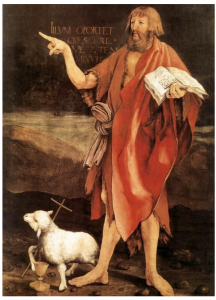 of the Lord Jesus. These same people would one day be the first members of the Christian Church after the Lord’s resurrection and ascension into heaven.
of the Lord Jesus. These same people would one day be the first members of the Christian Church after the Lord’s resurrection and ascension into heaven.
All of this underscores the importance of being open and prepared ourselves. We prepare for all sorts of things in our lives. We prepare for work and school and family outings and sporting events. But we often don’t prepare our spiritual lives for much of anything. The Church gives us this season of Advent to prepare, much like the people of John’s day. Before Christmas, we can examine our lives; repent of sin and error; and focus on the ongoing conversion of our lives that is so important to fully receive the gift of Christ at Christmas. I would encourage you to take full advantage of the many opportunities to encounter the Lord in the Sacrament of Reconciliation before the Christmas celebrations. There you will find him waiting with his forgiveness and mercy. It is there where He waits as the lamb of God who takes away the sins of the world….and yours as well.
Blessings for the week ahead,
Fr. David Mulholland
November 30, 2018 | Guest Writer | Laura Dougherty | Pastoral Assistant for Liturgy, Pastoral Care, Funerals & Outreach
Our Lord is Coming!
Thanksgiving is over, Christmas music can be heard on the radio, people are decking their halls and hitting the malls. Tis the season for baking cookies, holiday parties, Santa Claus and shopping . . . and more shopping. The next few weeks are full of hectic days as we work hard to make everything perfect for our friends and family. It’s a wonderful time of the year!
But as a Christian people, we know just how glorious it really is— Our Lord is coming! Advent offers us the opportunity to prepare our hearts and minds during this busy time of the year as we wait to celebrate the birth of our Lord and anticipate the time when He will come again. It is the season of hope, joy, peace and love – a time to reflect on the great gift that we’ve been given – the gift of the Christ child who came to save us from our sins and who will come again in glory.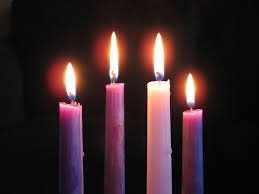
So, as we trim our trees and do our shopping this year, let us all keep focused on preparing our interior for the coming of Christ. Let us light our Advent candles each night and spend some time as a family in prayer, thanking God for the gift of his Son. Let us take advantage of the many opportunities throughout the month to visit the confessional or attend a reconciliation service. We might join a book study or set up a Jesse Tree to remind us of the Old Testament stories leading us to the birth of Jesus. We could help someone less fortunate, perhaps by picking a name off the Giving Tree in our St. Patrick’s gathering space and purchasing some gifts for a needy child. An Advent calendar can provide us with daily scripture and activities to keep us focused on the reason for the season. There is no one way to prepare for the birth of Jesus. One option to get us started is Bishop Robert Barron’s Advent Gospel Reflections book. We invite you to take one per family after Mass this weekend and use it to pave the way as we prepare for the coming of our Lord Jesus Christ.
However you and your family choose to celebrate this beautiful season of joyful anticipation, just remember— Our Lord is coming!
Wishing you a blessed and joyous Advent season,
Laura Dougherty
November 23, 2018 | Guest Writer | Kim Ward | Pastoral Associate for Faith Formation
Feast of Our Lord, Jesus Christ, King of the Universe
Friends,
Fr. David asked me to be a ‘guest writer’ for this week. Imagine my joy when he asked me to write about the Catechesis of the Good Shepherd, my happy place and source of ongoing conversion. Hope you enjoy this peek inside our sacred space.
Where the Mystery of God meets the Mystery of the Child
“Bethlehem – the fire of God’s love!” Nikki announces enthusiastically as she is shown the topographical map of the Land of Israel. The handful of children, ages 3-7, warmly received this proclamation and all agree, nodding with joyful conviction. The week prior this same group had seen the globe. The presentation, using a sandpaper globe, emphasized that Jesus was a real man who lived on this earth in a particular place, at a particular point in time— the tiny land of Israel where God revealed the depth of his eternal love for us. The group leaned in closely to see the tiny red dot where God changed our world forever. The profundity is made ever more solemn as the children reflect and respond to this mystery.
The children in the atrium (the name of the space where the Catechesis of the Good Shepherd takes place) live a rhythm of prayer and work as they encounter Jesus in each weekly 2-hour session. The adults who have the privilege of being in this space with the children, also enter into this rhythm. The adult’s role is that of match maker, showing children materials and stepping out of the way for the only true teacher, the Holy Spirit, giving children space, in their heart and mind, to pray and work at their pace.
The Catechesis of the Good Shepherd has slowly grown at Saint Patrick Catholic Church and in our Archdiocese over the last 21 years. The St. Patrick atrium averages 60-85 children per year. This year, 67 children are enrolled. Like the parable of the mustard seed, we invest energy, tending to small seeds, trusting that God will see to it that the seed becomes a tree one day, one child, one encounter at a time. Subjects areas include biblical geography, prayer, infancy narratives, celebration, and sacraments…. to name but a few. Each theme is developed over the span of 9 years, and slowly deepens and expands the child’s understanding of our faith. We CGS catechists like to hold a vision of the child: One of the 3 year old child walking into the atrium with an open heart and an absorbent mind, and walking out 9 years later with an understanding of liturgy and scripture embedded deeply within them, having touched and pondered so much.
We welcome children, ages 3-12, and youth and adults who desire to assist in our sacred space. Contact the Parish Office anytime to set up an observation.
May our Good Shepherd bless you as we prepare to enter the ‘waiting season’ of Advent,
Kim Ward
Pastoral Associate of Faith Formation
Learn more about the atrium on the website for the Catechesis of the Good Shepherd National Association: cgsusa.org
November 16, 2018
Dear Brothers and Sisters in Christ,
The liturgical year is coming to a close. Next week we celebrate the Solemnity of Christ the King and then it’s onto the season of Advent and soon after, Christmas. As this “year of grace” comes to a close, the Church has us focus on the end times and the ushering in of the glory of the fulfillment of God’s Kingdom. The Sunday readings speak of the days of the Son of Man coming down from heaven in the clouds. The Gospel speaks of ominous things; times of darkness that will give way to light and tribulations that give way to the coming of the Lord. But then the gospel says this:
“Learn a lesson from the fig tree. When its branch becomes tender and sprouts leaves, you know that summer is near. In the same way, when you see these things happening, know that he is near; at the gates.” —Mark 13:28-29
What are we to learn? I think we are to learn that despite all the predictions of what is going to happen in the future, we simply go about being faithful disciples! The Lord is near, yes! He is always near! And like the fig tree, which can predict the ushering in of summer, so we too should be ready to receive the Lord at the proper time, whenever that might be. The fig tree’s branches just do their natural thing; they sprout and bear fruit at the proper time. We are called to do the same; to put aside anxiety and fear about the “end” and do what we are called to do as faithful disciples: trust and follow the Lord.
Too often, we worry about things that are beyond our control. Whether it’s the “end times” or what you are going to do to make “ends meet” in your family budget, the call to trust in the Lord’s love and care is the same. In a homily at a prayer service last month, Archbishop Sartain made a significant reminder of what we are called to be as the Lord’s disciples. It’s a good reminder for us as we consider the coming of the Lord at the end of our time:
“Jesus calls his disciples to live in such a way that we allow the grace of his heavenly Father to overtake us. Jesus calls us to surrender, to abandon ourselves to the wisdom and power of God, to trust that in every situation life brings our way . . .we are to cling even more strongly to the ways of his Father, to trust ever more blindly that he will bring good out of all things. The favors of the Lord are never exhausted, his mercies never spent, so great is his faithfulness.”
May God bless you all!
Fr. David Mulholland
November 9, 2018
Dear Friends in Christ,
I have shared with you before about my priestly formation at Mount Angel Abbey and Seminary, south of Portland, in Saint Benedict, Oregon. I loved my time there and I continue to visit for retreats and relaxation. In fact, I was on the Seminary Board of Directors for several years, so I got an even closer perspective on all the details of how priests are formed at Mount Angel.
But aside from all this, I really began to live the Benedictine charism, or spirituality, in my own daily life, after ordination. Many of my brother priests have done the same. And many lay people too, endeavor to live the Benedictine spiritual life in their busy lives of work and family. Saint Benedict developed the monastic life as one of balance and moderation. I think we can all agree that we need more of that in our modern world!
The Rule of Saint Benedict begins with this line:
Listen, my son, to your master’s precepts, and incline the ear of your heart. Receive willingly and carry out effectively your loving father’s advice…
Amazing advice for all of us! But to really understand it, we need to break it down a bit. The first word of the rule is to “listen,” which we all must do more of these days. We need to listen rather than talk and fill conversation with babble. Then, we must “incline” or turn the ear of our heart. In other words, we need to open our hearts to all that God desires to give. Then, we must “receive willingly” and “carry out” God the Father’s advice. In short, we are called to be disciples and imitate Christ in the world. That, my friends, is just the first two lines of the Rule of Saint Benedict. The entire rule is filled with that same practical advice and counsel. It’s why priests, religious, and lay people alike have followed those maxims for almost 1,500 years!
I recommend that we all take to heart the balance and moderation of this monastic wisdom. We and our world are in need of approaching God and opening our hearts to Him in an old, but ever new way. Saint Benedict, pray for us!
God bless,
Fr. David Mulholland
November 2, 2018
Dear Brothers and Sisters in Christ,
The above painting by the Jewish artist Marc Chagall depicts the Lord Jesus as a Jewish martyr. Specifically, it shows Jesus crucified among his own people who were being persecuted by the ideology and actions of the Nazi’s in Germany in the 1930s. It was painted in 1938 and was first exhibited in 1940 in France. It may seem strange for a Jew to adopt Christian religious imagery, or not. Jesus, of course, was a good and faithful Jew. And he definitely would have been marked for elimination had the Nazi had their way in the year 33 AD. After all, evil really doesn’t change; it has always been demonstrated in persecution and violence down through the ages.
Last week’s attack upon the faithful at the synagogue in Pittsburg reminds us of our ties to the Jewish faith and the Jewish people. We and our Jewish brothers and sisters both worship the God of Abraham. We both follow the ten commandments, the Law of Moses. And we all profess the teachings of the Book of Deuteronomy, which in our first reading this Sunday states that the greatest commandment is to love the Lord God with all our heart, with all our soul and with all our strength. As faithful people, we hopefully strive to make this a reality in our own time.
The Lord Jesus fulfills the Law of Moses when he reaffirms the Ten Commandments, when he teaches us to live the Beatitudes, and when he reminds us in our Sunday Gospel that all of it is put into practice in the second “great” commandment: “You shall love your neighbor as yourself” (Mark 12:31). And our Lord showed us how it’s done when he died on the cross, for Jew and Gentile alike; to make this a lived reality for us all and a constant reminder that loving God involves loving our neighbor, even to the end. All of suffering humanity walks the road to Calvary in one way or another, with Jesus at our side. So as Christians, we join our Jewish brothers and sisters in mourning the dead and in praying for each other that we may all remain faithful in times of oppression and challenge.
May the peace of the Lord be with you in the coming week!
October 26, 2018
Dear Brothers and Sisters in Christ,
“What do you want me to do for you?” Jesus asked the blind Bartimaeus this question in our Gospel reading this week. Bartimaeus responds that he wants to see. Jesus tells him “Go on your way; your faith has saved you.”
Bartimaeus received his physical sight and then some that day long ago. Because of his faith in the Lord Jesus, Bartimaeus saw with his eyes and also his heart. Bartimaeus became a disciple; he went all in for the Lord and followed him. That’s what healing is all about. In the transformation and healing that comes from God’s grace, it is not limited to one thing. God’s healing affects the entirety of the human person; body and soul.
Jesus asks us the same question. “What do you want me to do for you?” For our part, we often fail to reply or even pay attention to the question asked of us. Or, we are often resistant to the healing grace that God offers.
My friend, Dr. Bob Schuchts, in his book Be Healed, states it this way:
Somewhere deep inside each one of us is a burning desire to finally become the person God created us to be. Yearning to be fully alive, we long to give ourselves as a gift wholeheartedly back to God. Yet despite these stirrings, many of us hesitate and resist, fearing the very thing we desire. While we long to be made pure and whole, we avoid God’s process of purification and healing.
Every encounter with the Lord Jesus, in prayer, Word, or sacrament, is an opportunity to be changed, renewed, healed and transformed. But it will only be a reality if we have the faith, like Bartimaeus, to avoid our resistance and boldly approach Jesus with confidence and trust. May we each respond to the question Jesus asks of us. He desires to do much for us. For our part, we must simply be open to receiving all that God desires to do for us.
Blessings in the week ahead.
Fr. David Mulholland
October 19, 2018
Dear Brothers and Sisters in Christ,
Last week, along with a number of parishioners, I attended the Pierce County Catholic-Lutheran event “Can we Talk” at Saint Charles Parish. The idea of the presentation was to see how our common baptism in the Lord can make a difference in bringing civility to our conversations in these somewhat uncivil times. It was an enlightening event. But as the evening went on, I realized that the problem isn’t so much in how we talk, but in how we listen to each other. Or, more precisely, how we often fail to listen well, if at all, to the one speaking to us. Listening is an art and a challenge; whether it’s listening to the voice of God or to each other. It always has been.
Bishop Frank Caggiano, of the Diocese of Bridgeport, Connecticut shared some of his thoughts on listening while taking part in the Synod on Youth in Rome last week. They are worth our time:
The art of listening is a delicate one, in part because the world in which we live does not understand it correctly. For too many, “listening” has degenerated into the time you need, while someone else is speaking, to prepare the points you wish to make, regardless of what is being said to you. Rather than listening, too many in our world have perfected the art of being deaf.
During my days here at the Synod, I have come to realize that the importance of listening rests on a more basic, fundamental principle. It is the choice to value the person before me as my equal partner. In other words, if I am willing to listen to you, I am also affirming your worth and value. If I am willing to spend time listening to you, I am also saying that I love you enough to give you my time, my energy and my attention. When we listen to each other, we may not always agree with one another. As a mentor to young people, disagreements often occur. However, we must always value one another, despite our agreements or disagreements. Thus, the fundamental principal that supports listening is that of love. If I listen to you, then I am also loving you.
The love of God and neighbor is the foundation of our lived Christian faith. It seems it’s perfection lies in us truly being present to the other; by listening and receiving what another “beloved” has to say. Let us truly love our neighbor and listen well.
May God bless you all in the week ahead!
Fr. David Mulholland
October 12, 2018
Dear Friends in Christ,
One of my favorite mysteries of the Rosary is the fifth Joyful Mystery, the boy Jesus found in the Temple by Mary and Joseph. Jesus was around 12 years old at the time. He got separated from his parents on a pilgrimage to Jerusalem and they finally found him in the Temple, “sitting in the midst of the teachers, listening to them and asking them questions, and all who heard him were astounded at his understanding and his answers.” Luke 2:46-47.
This mystery of the Rosary strikes me because it truly is “joyful” in the richest sense. God the Father sends his son in human flesh to dwell among us. He is like us in all things, but sin. In this event, we see Jesus being formed as a good and faithful Jewish boy. At the same time, through this encounter with the religious leaders in the Temple, they too are being formed by him. In this way, they too are being prepared for the coming of the Christ into the world. People were astounded by him; how could you not be?
In this Sunday’s gospel, Jesus encounters a rich young man; who happens to also be a good and faithful Jewish man. However, Jesus notices that he lacks one thing: his focus on his possessions causes him to hold back in giving his life to God. He seemingly walks away from discipleship because he is unable to give his possessions to the poor and follow Jesus. Jesus doesn’t run after him and clarify things. No, he lets him go his way to reflect upon his choice. But notice that during Jesus’ encounter with him, the Lord looked “at him, and loved him.” Although he walked away, I like to think that Jesus’ love for him likely softened his heart in God’s good time. I’ve always sensed a feeling of hope that he was eventually able to trust in the Lord’s teaching: that the fulfillment of the law is found in freely following Jesus, with no encumbrances in the way, like money, fame, or possessions. All encounters with the Lord Jesus affect us in some way. They form us and prepare us for the coming of the Kingdom and its fulfillment in love of God and neighbor. And every encounter with the Lord Jesus in prayer and sacrament is an opportunity for us to grow as faithful disciples.
Blessings for the week ahead.
Fr. David Mulholland
October 5, 2018
Dear Brothers and Sisters in Christ,
In the Rosary, we ponder the life of Jesus through the eyes of his mother. This is an incredibly powerful experience if we enter into it fully. – Matthew Kelly
If we enter into it fully . . . how we all wish to enter into prayer more deeply and fully. Yet, we often battle with distraction, time constraints, temptations, and yes, even sloth! This is especially true of the prayer of the Rosary. Many people, myself included, find it difficult to find the time and the focus necessary to pray this beautiful biblical prayer. But at the same time, I have discovered that the things most difficult to undertake are the things that are most beneficial to me! And this is very true when speaking of the Rosary. Our Lady desires to show us many things, if we just give her our attention.
October is a month when the Church has always recommended praying the Rosary, as a means to recommit ourselves to this prayer or to start a new practice of prayer. This year, the Holy Father, in a special way, has asked us to pray the Rosary especially for the healing of the Church. To that end, Pope Francis has asked that as we conclude the Rosary with the Salve Regina (Hail, Holy Queen), we also pray the Prayer to Saint Michael, the Archangel to protect us and the Church from evil, as well as pray the oldest known prayer to the Blessed Virgin, the Sub Tuum Praesidium: “Under thy protection we seek refuge, O Holy Mother of God; In our needs, despise not our petitions, but deliver us always from all dangers, O Glorious and Blessed Virgin.”
Let’s take heed of the Holy Father’s recommendation. Pray the Rosary daily this month. And add those prayers seeking the powerful intercession of Saint Michael and Mary, who defend us and protect us from the evil serpent. May the practice of praying the Rosary and following the life of Jesus with His mother, Mary, deepen your life of prayer. May it be beneficial to us and to the Church! An may we enter into it fully!
God bless,
Fr. David Mulholland
September 28, 2018
Dear Friends in Christ,
Last week, the priests of the Archdiocese prayed the Stations of the Cross with Archbishop Sartain at Saint James Cathedral. The meditation at the beginning of the prayer time was from an Italian religious writer, Carlo Carretto. It is well worth sharing with you for your reflection about the state of our Church, not just in these current days of crisis, but for all times!
“How baffling you are, oh Church, and yet how I love you! How you have made me suffer and yet how much I owe you! You have given me so much scandal and yet you have made me understand what sanctity is. I have seen nothing in the world more devoted to obscurity, more compromised, more false, and yet I have touched nothing more pure, more generous, more beautiful.
No, I cannot free myself from you, because I am you. And besides, where would I go? Would I establish another? I would not be able to establish it without the same faults, for they are the same faults I carry in me.
The Church has the power to make me holy but it is made up, from the first to the last, only of sinners. It brings a message of pure transparency but it is incarnated in mud, for such is the substance of the world. When I was young, I did not understand why Jesus chose Peter as his successor, the first Pope, even though he abandoned Him. Now I am no longer surprised and I understand that by founding his Church on the tomb of a traitor he was warning each of us to remain humble, by making us aware of our fragility.”
Blessings for the week ahead,
Fr. David Mulholland
September 21, 2018
Dear Friends in Christ,
Notice that I addressed you as ‘Friends in Christ,” for that is what you are. As your pastor, one of the ways I relate to you is as friends; and especially as my friends who share our common bond as members of the Body of Christ, the baptized! As Catholics today, we need friends as we persevere in our lives amidst a world that is often in opposition to us and what we believe. Friends stick together and help each other during such times. Friends make the rough going a little easier.
Some of the friends that we don’t often think about are our heavenly friends. We all have patron saints or favorite saints that we might invoke from time to time. Saint Anthony finds our lost things or Saint Jude bails us out of the impossible situation. In reality of course, they intercede before God on our behalf. But have you ever invoked the holy angels? Specifically, your guardian angel and the archangels? They too are our friends, ready to help us in our need.
This coming Saturday, we celebrate the Feast of the Holy Archangels, Saint Michael, Saint Gabriel and Saint Raphael. And each of the Archangels can be invoked for specific needs in terms of prayer. Saint Michael comes to our aid when we are oppressed by the evil one, who seeks to lie to us and deceive us, and draw us away from the Lord. Prayer to Saint Michael is powerful!
“Saint Michael, the Archangel, defend us in battle. Be our protection against the wickedness and snares of the devil. May God rebuke him, we humbly pray, and do Thou, Prince of the Heavenly Host, by the Power of God, cast into hell, Satan, and all the evil spirits who prowl about the world seeking the ruin of souls. Amen!”
Saint Gabriel, who came with messages to Mary and Joseph, is one to invoke when we ask God to reveal what we need to know about ourselves, others or situations. He can aid us by praying that we might have open hearts to receive all that God wants to show us. And Saint Raphael is one to invoke for healing; whether physical, spiritual, or emotional. He is the archangel that helps to open us to receive all of God’s healing grace!
This coming week, take note of all your friends. Those close by and those far away. Even those who are saintly and angelic in heaven! For as members of God’s family, our friends are always there to help us in our need.
God bless,
Fr. David Mulholland
September 14, 2018
Dear Friends in Christ,
This coming Friday, we will celebrate the Feast of Saint Matthew, Apostle and Evangelist. Saint Matthew was a tax collector and an unlikely candidate for Apostle, Gospel writer, and saint. But that’s the way it is with most saints! The above painting by the Italian artist Caravaggio, shows Jesus coming out of the shadows and casting a beam of light upon the chosen one; the sinner, tax collector, Matthew, who in turn points to himself as if to say, “who, me?” Yes, you, Matthew. The Lord Jesus chooses you to be His witness; to be His Apostle; to be His evangelizer to the world; to be His saint down to our very day.
God often chooses the most unlikely of people to be His witnesses in our chaotic and disordered world. As I have said often, in times of crisis and challenge, God raises up saints; holy men and women of all times and places, to bring about change and re focus our attention on the Lord Jesus at precisely the times where it is needed the most. I have no doubt that God is doing the same right now in our Church and in our world. In many ways, we are far from God and His desires for our joy and hope. But He will raise up holy men and women to remind us of who we are: God’s beloved sons and daughters. Theses saints among us are filled with the Holy Spirit’s love and courage to bring us back to our senses and call us live holy lives. It would be good for us to be a discerning people, open to listen to the saints among us. And who are these saints? Well, they’re everywhere and they may in fact be you!
God bless,
Fr. David Mulholland
September 7, 2018
Dear Brothers and Sisters in Christ,
He put his finger into the man’s ears and, spitting, touched his tongue; then he looked up to heaven and groaned, and said to him, ‘Ephphatha!’ – that is, ‘Be opened.’
Bishop Robert Barron has pointed out that in modern times (from the 18th to 20th centuries) Jesus has often been portrayed more in terms of being an ethical teacher and moral guide. This makes him less threatening and more palatable to people. This Jesus places few demands on us, unless you disagree with his ethical and moral teachings, as is increasingly the case in the 21st Century!
But this view of Jesus is very one dimensional. Jesus’ primary method of engaging people took place during his preaching and especially in his healing ministry. And by healing, I am speaking of healing the whole person; physical, emotional, and spiritual. What’s important for us to remember is that Jesus’ healing ministry did not end with his ascension into Heaven. It continues in the Church down to this day. Furthermore, the salvation offered by Jesus does not just encompass the dimension of belief and faith, but also of healing. Jesus is the healer, the soter, which in Latin means Salvator or the “bearer of the salus” or health. Thus, salvation is literally a state of being healed; restored to health and wholeness. The “salvation” offered as a free gift to us is the Lord Jesus’ desire that we be saved – literally restored to the wholeness of our God given human condition. In short, Jesus calls us to eternal life, but also an abundance of life right now.
My friends, Jesus desires that we live in a state of “Ephphatha” in that we be opened to the healing he offers us. In whatever way you are burdened, whether physical, spiritual or emotional, Jesus will heal you if you open your heart to this grace. He desires your salvation; your health and wholeness!
Fr. David Mulholland
August 31, 2018
Dear Brothers and Sisters in Christ
Since I was serving chaplain for the priest retreat at the Palisades last week, this week’s Pastor Letter will be brief! I simply want to share with you the quote from Dorothy Day, founder of the Catholic Worker Movement, that I mentioned at the end of my homily at Saint Rita and Saint Pat’s last weekend. She speaks of how God raises up saints at just the right times in history. I found a quote from Pope Benedict along those same lines for your reflection. Friends, we are all called to be saints; to be the holy men and women that God raises up to be instruments of his healing grace to our families, our community, our Church and the world. These are powerful words to ponder along the way:
As a convert, I never expected much of bishops. In all history, popes and bishops and father abbots seem to have been blind and power-loving and greedy. I never expected leadership from them. It is the saints that keep appearing all ough history who keep things going. What I do expect is the bread of life and down through the ages there is that continuity.Venerable Dorothy Day
The future of the Church can and will issue from those whose roots are deep and who live from the pure fullness of their faith. It will not issue from those who accommodate themselves merely to the passing moment or from those who merely criticize others and assume that they themselves are infallible measuring rods; nor will it issue from those who take the easier road, who sidestep the passion of faith. The future of the Church, once again as always, will be shaped by saints, by those, that is, whose minds probe deeper than the slogans of the day, who see more than others see, because their lives embrace a wider reality.Pope Emeritus Benedict XVI
Blessings for the week ahead!
Fr. David Mulholland
August 24, 2018
Dear Brothers and Sisters in Christ,
Jesus Teaching on the Bread Life
“As for me and my household, we will serve the Lord.” Joshua 24:15
“Live in love, as Christ loved us.” Ephesians 5:2
“{Peter said} Master, to whom shall we go? You have the words of eternal life. We have come to believe and are convinced that you are the Holy One of God.” John 6:68-69
Our readings this week speak of the nature of faith amid doubt, confusion, oppression, and even opposition.It’s something most people can relate to on any number of levels. Frankly, despite the current crisis in the Church, it’s always been challenging to be a Christian and a member of the body of Christ. I am alwaysreminded that following the Lord Jesus means to follow Him in all things. To share in His glory, certainly!But that glory only comes after sharing in His suffering and passion. After all, Jesus says, “take up your cross and follow me.”
A priest friend from Phoenix, Fr. John Lankeit, preached a powerful homily last week about the sexual abuse crisis. He had the opportunity to meet with a woman last week who is a victim of abuse by a priest. She remains a faithful Catholic to this day because her suffering, down through the years, has been united toChrist’s own suffering; she knows that Jesus has suffered with her and for her. Fr. Lankeit made an importantobservation: That she and all abuse victims reside in the suffering heart of Christ. Anyone who suffers, resides in the heart of Christ. To dwell there is to dwell in the Church, the body of Christ and the wellspringof the sacraments. It’s a place of sacred encounter with the wounded healer. No matter what our sufferingmay be, we all have a home in the suffering, pierced heart of the Lord Jesus.
Please pray for me and my brother priests on a “Healing the Whole Person Retreat” at the Palisades thisweek. Please also pray for all who are hurting and wounded. Let us live in love, as Christ loved us.
Fr David Mulholland
August 17, 2018
Dear Brothers and Sisters in Christ,
My heart is broken as I write these words to you. Last night (Tuesday, August 14), I began reading the Pennsylvania Grand Jury Report, detailing child sexual abuse by priests in six dioceses in Pennsylvania. Over 1,000 victims; 300 priest offenders; over a 70-year time frame. It also details the cover up by bishops, priests, and administrative officials. So far in my reading, I have not seen of anyone calling the police. Yes, it was a different time and place. But crime has always been crime. All of this is difficult to take in and process. But I will share with you my initial thoughts.
This ongoing story has been a part of my priesthood since my ordination in 2002, when the revelations of abuse in Boston came to light. Then, when I served as vicar for clergy, I was exposed to the abuse crisis in our own Archdiocese. I read the files. I served on our Archdiocesan Review Board. Our office worked with and monitored priests on prayer and penance. Others, especially Archbishop Brunett and Archbishop Sartain, met with victims. I am happy to have played a small part in the new formation, trainings (for priests and lay people alike), policies, and procedures that make our current local church a model for providing a safe environment in our parishes and schools.
But I have never seen anything like this new report from Pennsylvania. It is sinful, diabolical, and horrendous. The report itself begins with these words: “We, the members of this grand jury, need you to hear this.” I couldn’t agree more. Whether you take a stab at reading the report, or read a story in the media about the report, it does need to be heard. Whatever is in the darkness, must be brought to the light. That in itself is a first step in going forward. As painful as it is, we all must hear and take heed of the past. But I also think that our first reactions must come from a place of clarity and conviction; from a place of faith and hope.
Above is a painting of the temptation of Christ by the devil. After his baptism in the Jordan, Jesus was led into the desert and tempted by Satan. The enemy of our human nature whispered into our Lord’s ear the same words he whispers to us when we are confronted with things like this grand jury report: “Give up! It’s not worth it! Follow me instead!”
In light of the terrible news of sexual abuse of children by clergy; the very ones who were entrusted with the faith and education of God’s little ones, we can be tempted to just give up on the whole thing. The enemy tells us to give up on a rotten, sinful, and ruined Church; he tells us to give up on Christ’s priests, bishops, religious and lay leaders. He tells us to give up on each other and the rest of humanity’s lost. He tells us they’ll be better off without Christ and His Church.
For us, we must muster the faith and hope that is given to us in our Baptism to respond to Satan with our own conviction: “To hell with you, Satan. In Jesus’ name be gone!” Why do I say this? Because each and every one of us is needed now more than ever. Each of us, in our own way and calling, is needed to be part of the solution and not part of the problem. Having heard all the sins and all the brokenness, we must be open to how God will use us to bring His healing grace to all who need it.
Who needs that grace? Who needs us? Well, first, the victims of all sexual abuse need us. They need to know that they are known. They need to know that we love them and will listen to their stories. They need to know we are sorry. They need to know that we are here for them and will help them to open their hearts and lives to healing and wholeness. Where and who are they? They are everywhere. They are your friends, neighbors, and family members. They might be you. Who did this to them? Offenders include priests, bishops, religious sisters and brothers, and lay employees as well. Offenders also include family members, neighbors, teachers, coaches etc. The problem is widespread. The victims need us. They need us to listen and hear them. And they need our faith and hope that Jesus heals all wounds.
Who else needs us? The vast majority of good, holy priests, bishops and religious who have been called and who have given their lives for the good news of the gospel. They need to know that their calling is right, good, noble and needed for the salvation of the world. That’s what the Church is ultimately about. And the institutional Church needs us. It needs us to call for and lead reform. The Church needs her members, clergy, religious and lay alike, to be renewed in their commitment to healing the wounds created long ago. And all God’s people need us. The faithful and unfaithful; the lost, fallen away, the hopeless and forgotten. Everyone for whom Christ died on the cross needs us to make the message of salvation known, accepted and received. As Saint Catherine of Sienna would say, now is the time to rebuke the enemy and his minions, and to pray for courage and strength; to pray in reparation and penance for the sins of the past and for guidance going forward toward a future full of hope. Friends, don’t give up. We are needed!
Fr. David Mulholland
So, What Do We Do Now— a follow-up to the Pastor Letter of August 17, 2018
So, What Do We Do Now?
Dear Friends in Christ,
As a follow up to my pastor letter, I want to share with you an article that I think will help us move forward. It’s at least a good place to start. The recent revelations concerning Archbishop McCarrick and the history of abuse in Pennsylvania, both in terms of behavior and leadership, have shown that the problems of the past have not been sufficiently dealt with. It also shows that the Church, as a human institution, and her shepherds, are in need of further repentance, conversion and healing. A lot has been written about this in the past few weeks. There’s a lot of blame, accusations, as well as simple reasons and solutions given by many commentators. The following article by Bishop Robert Barron, auxiliary bishop of Los Angeles, is a good place for any Catholic to begin to sort all this out and to then begin to pray going forward.
Fr. David Mulholland
THE McCARRICK MESS
by Bishop Robert Barron
When I was going through school, the devil was presented to us as a myth, a literary device, a symbolic manner of signaling the presence of evil in the world. I will admit to internalizing this view and largely losing my sense of the devil as a real spiritual person. What shook my agnosticism in regard to the evil one was the clerical sex abuse scandal of the nineties and the early 2000’s. I say this because that awful crisis just seemed too thought-through, too well-coordinated, to be simply the result of chance or wicked human choice. The devil is characterized as “the enemy of the human race” and particularly the enemy of the Church. I challenge anyone to come up with a more devastatingly effective strategy for attacking the mystical body of Christ than the abuse of children and young people by priests. This sin had countless direct victims of course, but it also crippled the Church financially, undercut vocations, caused people to lose confidence in Christianity, dramatically compromised attempts at evangelization, etc., etc. It was a diabolical masterpiece.
Sometime in the early 2000’s, I was attending a conference and found myself wandering more or less alone in the area where groups and organizations had their booths. I came over to one of the tables and the woman there said, “You’re Fr. Barron, aren’t you?” I replied affirmatively, and she continued, “You’re doing good work for the Church, but this means that the devil wants to stop you. And you know, he’s a lot smarter than you are and a lot more powerful.” I think I just mumbled something to her at that moment, but she was right, and I knew it. All of this has come back to me in the wake of the Archbishop McCarrick catastrophe. St. Paul warned us that we battle, not against flesh and blood, but against “powers and principalities.” Consequently, the principal work of the Church at this devastating moment ought to be prayer, the conscious and insistent invoking of Christ and the saints.
Now I can hear people saying, “So Bishop Barron is blaming it all on the devil.” Not at all. The devil works through temptation, suggestion, and insinuation—and he accomplishes nothing without our cooperation. If you want to see the principle illustrated, Google Luca Signorelli’s image of the Antichrist in the Orvieto Cathedral. You’ll see what I mean. Archbishop McCarrick did wicked things and so did those, it appears, who enabled him. And we have to come to terms with these sins.
Before I broach the subject of how to do this, permit me to say a few words about unhelpful strategies being bandied about. A first one is indiscriminate scapegoating. The great philosopher René Girard taught us that when communities enter into crisis, people typically commence desperately to cast about for someone or some group to blame. In the catharsis of this indiscriminate accusation, they find a kind of release, an ersatz peace. “All the bishops should resign!” “The priesthood is a cesspool of immorality!” “The seminaries are all corrupt!” As I say, these assertions might be emotionally satisfying at some level, but they are deeply unjust and conduce toward greater and not less dysfunction. The second negative strategy is the riding of ideological hobby horses. So lots of commentators—left, center, and right—have chimed in to say that the real cause of the McCarrick disaster is, take your pick, the ignoring of Humanae Vitae, priestly celibacy, rampant homosexuality in the Church, the mistreatment of homosexuals, the sexual revolution, etc. Mind you, I’m not saying for a moment that these aren’t important considerations and that some of the suggestions might not have real merit. But I am saying that launching into a consideration of these matters that we have been debating for decades and that will certainly not admit of an easy adjudication, amounts right now to a distraction.
So what should be done? The United States Conference of Catholic Bishops (USCCB) has no juridical or canonical authority to discipline bishops. And even if it tried to launch an investigation, it has, at the moment, very little credibility. Only the Pope has juridical and disciplinary powers in regard to bishops. Hence, I would suggest (as a lowly back-bencher auxiliary) that the bishops of the United States—all of us—petition the Holy Father to form a team, made up mostly of faithful lay Catholics skilled in forensic investigation, and to empower them to have access to all of the relevant documentation and financial records. Their task should be to determine how Archbishop McCarrick managed, despite his widespread reputation for iniquity, to rise through the ranks of the hierarchy and to continue, in his retirement years, to function as a roving ambassador for the Church and to have a disproportionate influence on the appointment of bishops. They should ask the ecclesial version of Sen. Howard Baker’s famous questions: “What did the responsible parties know and when did they know it?” Only after these matters are settled will we know what the next steps ought to be. In the meantime, and above all, we should ask the heavenly powers to fight with us and for us. I might suggest especially calling upon the one who crushes the head of the serpent.
Additional Information
August 10, 2018
Dear Brothers and Sisters in Christ,
I can resonate a bit with our first reading this Sunday, from the First Book of Kings: “Elijah went a day’s journey into the desert, until he came to a broom tree and sat beneath it. He prayed for death, saying, ‘This is enough, O Lord!’”
That’s exactly how I felt last Saturday night into Sunday morning, when I was hit hard with a stomach virus. I didn’t really pray for death, although I felt deathly sick, but I did say, “Enough Lord!” I realized that by 6:00 a.m., I could not celebrate the Sunday Masses. So I made a couple calls and our amazing staff at all three parishes sprang into action. Deacon Bill Eckert was able to lead a communion service at St. Rita, while our parish staff members were able to secure enough Eucharist for the service and then make the calls necessary to find a priest to celebrate the other Masses during the day. I am grateful to Fr. Alan Yost, SJ, from St Leo’s for filling in on such short notice! Everyone was so helpful and rallied around to make sure the people of God were well taken care of, so we could give due worship and praise to Him who sustains us and heals us!
As I was on my sick bed, I realized that this has never happened to me before. I have never been sick on a weekend where I could not celebrate Mass. Then I realized that I haven’t missed a Sunday Mass in over 20 years! Last Sunday, as the day came to an end, I realized that I really missed Sunday! I missed being with you and I missed receiving Jesus in the Holy Eucharist. Although, similar to Elijah, I had angelic people bring me soup and drinks, I really missed the life giving sustenance of the Divine Physician, the Lord Jesus! As our Gospel today tells us, Jesus, the bread of life, has given us his “flesh for the life of the world.” That is so true! He gives us life; he sustains us; he restores and heals! May we always appreciate such a great gift, every Sunday!
Blessings,
Fr. David Mulholland
August 3, 2018
Dear Brothers and Sisters in Christ,
As we continue with Jesus’ Bread of Life Discourse in Chapter 6 of Saint John’s Gospel, the Church reminds us of all the ways God our Father as provided for our needs since the beginning of time. As we know Jesus is the bread of life come down from heaven, the Church has us recall one of the first times God provided bread for his people. In the first reading from the Book of Exodus, the Lord God told Mo ses, “I will now rain down bread from heaven for you. Each day the people are to go out and gather their daily portions….” And all of God’s generosity was in response to the Israelite community’s grumbling and complaining. That goes to show you that nothing about our fallen human nature has changed! We still grumble and complain against God, yet he still showers his love and mercy upon us. That’s because his love is unconditional! And most importantly, despite our complaining; despite our sinfulness and our waywardness, the Father sent his son Jesus to be our savior and healer. The one who is the true bread from heaven came to save us and nourish us. Jesus tells us “I am the bread of life; whoever comes to me will never hunger, and whoever believes in me will never thirst.” His promise is eternal!
ses, “I will now rain down bread from heaven for you. Each day the people are to go out and gather their daily portions….” And all of God’s generosity was in response to the Israelite community’s grumbling and complaining. That goes to show you that nothing about our fallen human nature has changed! We still grumble and complain against God, yet he still showers his love and mercy upon us. That’s because his love is unconditional! And most importantly, despite our complaining; despite our sinfulness and our waywardness, the Father sent his son Jesus to be our savior and healer. The one who is the true bread from heaven came to save us and nourish us. Jesus tells us “I am the bread of life; whoever comes to me will never hunger, and whoever believes in me will never thirst.” His promise is eternal!
As God provided sustenance for the people of Israel in the desert, so he offers us the same in the desert of our own society, culture and lives. The Lord Jesus offers himself to us at every celebration of the Mass. The offer is made and it’s up to us to respond in faith and belief….and to make our “Amen” truly an acceptance of God’s generous and loving care for us.
May you be open to God’s loving care in the week ahead!
Fr. David Mulholland
July 27, 2018
Dear Brothers and Sisters in Christ,
 For the next several weeks, the Sunday gospel will be taken from Chapter 6 of Saint John’s Gospel. It has traditionally been known as Jesus’ “Bread of Life Discourse.” In this teaching, the Lord makes it very clear that he is the “bread of life” come down from Heaven for us and our salvation. He says that his flesh is given for the life of the world, and that his flesh is real food and his blood is real drink. Furthermore, our Lord says that unless we eat his flesh and drink his blood, we do not have life within us. This is a radical teaching; it is a hard teaching. And consequently, many left him and followed another way. And likewise, many do today as well. But Jesus remained faithful to this teaching. And it provides the basis for our understanding of how the Lord is truly present with us in the Eucharist…..body, blood, soul and divinity, for us.
For the next several weeks, the Sunday gospel will be taken from Chapter 6 of Saint John’s Gospel. It has traditionally been known as Jesus’ “Bread of Life Discourse.” In this teaching, the Lord makes it very clear that he is the “bread of life” come down from Heaven for us and our salvation. He says that his flesh is given for the life of the world, and that his flesh is real food and his blood is real drink. Furthermore, our Lord says that unless we eat his flesh and drink his blood, we do not have life within us. This is a radical teaching; it is a hard teaching. And consequently, many left him and followed another way. And likewise, many do today as well. But Jesus remained faithful to this teaching. And it provides the basis for our understanding of how the Lord is truly present with us in the Eucharist…..body, blood, soul and divinity, for us.
The bread of life discourse begins with a miracle; the feeding of the five thousand with some meager bread and fish. If the Eucharist is the greatest miracle (simple bread and wine becoming the body and blood of the Lord), then it is appropriate that our Lord’s teaching should itself begin with a miracle. In the weeks ahead, I would encourage you to get out your bible and spend some time reflecting upon Chapter 6 of John’s Gospel. Ask the Lord to reveal to you what you need to know, so that you can more fully appreciate his presence in the Eucharist, so that your encounter with him in Holy Communion may be more intimate, authentic, and nourishing. Stay tuned for how the Lord Jesus will bless you in these weeks that we hear his beautiful teaching proclaimed at Mass!
Blessings to you all for the week ahead!
Fr David Mulholland
July 20, 2018
Dear Brothers and Sisters in Christ,
I am now two weeks into my ministry here at Saint Patrick and Saint Rita parishes. So far, so good! I have really enjoyed these weeks and they have been very eventful. I have also enjoyed getting to know many of you. Learning your names will be a challenge for me, so please be patient and remind me of your name when I see you. I especially encourage all new parishioners to introduce yourself to me, to Deacon Bill and parish staff so we can get to know you.
This weekend also marks my first Sunday Masses at Holy Cross Parish as well. When I met with Archbishop Sartain in March, I found out that I would be pastor of Saint Patrick and Saint Rita parishes. As you know, our two parishes have been working closely for the past year on how to collaborate under the leadership of a single pastor. Then, the awful news of the death of Fr. Michael Wagner created a new challenge. Having served as Vicar for Clergy, I know that the priest assignments are always challenging, but even more so when something unexpected happens. When Deacon Jim Fish was asked to go to Holy Rosary and Visitation parishes, Archbishop Sartain asked that I also become pastor of Holy Cross. I was happy to say “yes” to this as I believe God works in amazing ways at bringing about His will and desires, not only for me but for the parishes I serve. I have no doubt, that will be the case with us at this time!
So, how will this all work? Well, we are going to find out in the year ahead. Just as Saint Patrick and Saint Rita spent a year working out some of the details of our collaboration, so we will undergo a similar process with regard to Holy Cross Parish. In the meantime, everything at Holy Cross will continue on as it has. Fr. Ron Knudsen and I will work together and share the ministry. I will be there for daily Masses and at least one or more weekends per month, depending upon our schedules. I’ll spend time at the office and at parish events as well! Over the course of the year, we will begin to pray about what the Lord Jesus desires to see about how our parishes can collaborate, share resources, and build up the Catholic faith in north Tacoma…together! I ask for your prayers… for me, Fr. Ron and for all priests and deacons who are serving as “good shepherds” after the heart of Christ!
Blessings to you all for the week ahead!
Fr. David Mulholland
July 13, 2018
Dear Brothers and Sisters in Christ,
In one of his first letters to us priests when he was installed in Seattle, Archbishop Sartain wrote about a little noticed gesture that every priest does at the beginning and end of Mass: he reverences the altar with a kiss. Since I read that letter seven years ago, the depth of that simple gesture has not been lost on me. The Archbishop said that every time he kisses the altar, he does so knowing that he is at home. Yes, “at home” at the altar! Every priest should feel at home at the altar, because it is at the altar where we live forourselves and for the people we serve. It is the altar, representing Christ and His salvation for us, that our ministry has meaning. It is the place where the family of God gathers around to worship Him, to give thanks and praise, and to receive God’s blessing and grace. All of that has rung true for me no matter where I have celebrated Mass. And it’s very much true now as I come “home” to Tacoma as your pastor.
In today’s gospel, the Lord Jesus sends out the 12 Apostles on mission and he gave them authority in their ministry of healing, teaching and preaching. In everyplace they went, you could say they were “at home” as well. Because home for an apostle, a priest and a pastor is anywhere that God has called him to minister to His sons and daughters. As a priest, I have “been home” at all the altars where I have celebrated Mass: for the first time at Saint James Cathedral on my ordination day, to across the world, in the mountains, and everywhere in between. And that is also true no matter where I celebrate Mass with you, whether at Saint Rita, Holy Cross, or Saint Patrick parishes. My friends, it is good to be at home with you!
In Christ the Lord,
Fr David Mulholland
July 6, 2018
Dear Brothers and Sisters in Christ,
This first official pastor letter is taking up where I left off at Saint Mark in Shoreline. For my last homily there, I shared some quotes from scripture and the last three popes that have shaped my life and priestly ministry. And as I begin my new assignment with you, I want to share those quotes with you as well. These words have come to shape my view of what the mission of the Lord Jesus is all about and who we are as His disciples in the Church.
Let us keep our eyes fixed on Jesus, who inspires and perfects our faith!Hebrews 12:2
We are not the sum of our weaknesses and failures; we are the sum of the Father’s love for us and of our real capacity to become the image of His Son Jesus.Pope Saint John Paul II
Healing is an essential dimension of the apostolic mission and of Christianity. When understood at a sufficiently deep level, this expresses the entire content of redemption.Pope Benedict XVI
The thing the Church needs most today is the ability to heal wounds and to warm the hearts of the faithful; it needs nearness, proximity. I see the Church as a field hospital after battle. It is useless to ask a seriously injured person if he has high cholesterol and about the level of his blood sugars! You have to heal his wounds. Then we can talk about everything else. Heal the wounds, heal the wounds…” Pope Francis
Blessings to you all for the week ahead!
Fr David Mulholland
June 2018
I am happy to greet you as your “almost pastor”! You will soon learn that it’s my practice to write a pastor letter each week for the bulletin and social media. Normally, I would begin this on the first weekend of a new assignment. But I write to you a bit early to affirm and support a significant change that will take place beginning on the weekend of July 7/8 concerning the new times for the celebration of Sunday and daily liturgies at our two parishes. I want to begin by thanking Kevin Lovejoy and the members of the Joint Transition Team for their time, insights and dedication. This group has prayed, reflected, discussed, questioned, and discerned how our two parishes can collaborate under the leadership of a single pastor. This team of people has met over the past 12 months and the topics covered have touched upon many aspects of parish life. A similar process will begin in the coming year with the parishioners of Holy Cross Parish, to see how our collaboration with them may unfold. And, of course, all of this is part of the ongoing Pierce Deanery pastoral planning process.
New Mass Times
Now that Archbishop Sartain has appointed me as your pastor, we can begin to move forward and present a decision concerning one of those topics: the Mass times for Sunday and daily liturgies effective Saturday, July 7, 2018. Before getting to the details, I want to point out two things. First, both parishes are being asked to adapt to new Mass and confession times. So, this change affects everyone at our parishes. But at the same time, we all realize that the Saint Rita schedule is impacted the most. Second, these changes are the fruit of much prayer and discernment. It was not an easy or an arbitrary decision. Nor was it made for purposes of convenience. Rather, there is a greater spiritual good involved. We are being asked by the Lord Jesus to take the steps necessary to grow together as a community of the faithful under the guidance of a pastor. And on that last point, I am happy that pastor is me! I am very grateful that the Archbishop has called me to this assignment. I found out in early March about coming to St. Patrick and St. Rita and since that time, I too have prayed, seeking the Holy Spirit’s guidance, on what is the best liturgical schedule so that I can be a good pastor for our parishes.
Pastoral Presence
So, what is the fruit of all this prayer? A few things: First, what stood out for me, and for others, is that it is extremely important for a pastor to be present and celebrate the Sunday liturgies with his people on as many weekends as possible. I also learned this from experience. One of my previous assignments was as pastor of six parishes in Lewis and Pacific counties. While I loved the people of my assignment, I don’t feel I was the most effective pastor and spiritual leader that they deserved, largely due to the fact that I could only celebrate Sunday Mass at any given parish once or twice a month. The six parishes were covered by me, a parochial vicar and retired priests. Although the Masses were covered as priests were found, the spiritual importance of the pastor being present to pray, lead, guide, teach, preach, and celebrate each week was lacking. I have found that this pastoral presence at the parish is of fundamental importance in being a good pastor.
Because I Love You
In addition, as Archbishop Sartain noted in his recent homily at Fr. Michael Wagner’s funeral, one of the best pastoral responses to a difficult change (especially concerning Mass times) is “because I love you!” For my part, I would say that certainly applies here as well. I support this decision to change our schedules because, as your pastor, I do love you. I want to serve you and be the best possible pastor I can be. I pray you allow me that opportunity.
Sacrifice
And third, as Catholics, we are not called to comfort but for sacrifice. Pope Benedict XVI has noted that we were not made for ease and comfort, but we were made for the good, the great. In his encyclical letter Spe Salve, he said: “Man was created for greatness—for God himself; he was created to be filled by God. But his heart is too small for the greatness to which it is destined. It must be stretched…” And what stretches our heart? Sacrifice!
The Lord Jesus desires that we each grow in our faith, so that our hearts can truly be open to know and love Him and our neighbor. Our parishes exist to make this a reality in our lives. This is the Christian way and it is the way of the cross. And the cross always involves sacrifice; dying to ourselves; giving of ourselves, for a greater good. Priests, deacons, and spouses implicitly know this if they truly live their respective vocations. But it applies in many other aspects of life as well, including our parish schedules.
My friends, the change in our liturgical scheduling will involve sacrifice. And everyone is being called to participate! You are being asked to sacrifice your normal routine; what you have become familiar and comfortable with, for a greater good. We are all being asked to place our ease and comfort aside, to stretch our hearts, and our routines, so that the Sunday Celebration of the sacraments can truly be vibrant and transformative, and that as your pastor, I will have the opportunity and ability to serve you as the Lord Jesus intends. My prayer is that you will be willing to sacrifice and embrace the changes so that together we can all move forward in faith, hope, and love.
Thanks for reading this letter to the end! I will see you all soon. May God bless you!
In Christ the Lord,
Fr David Mulholland
